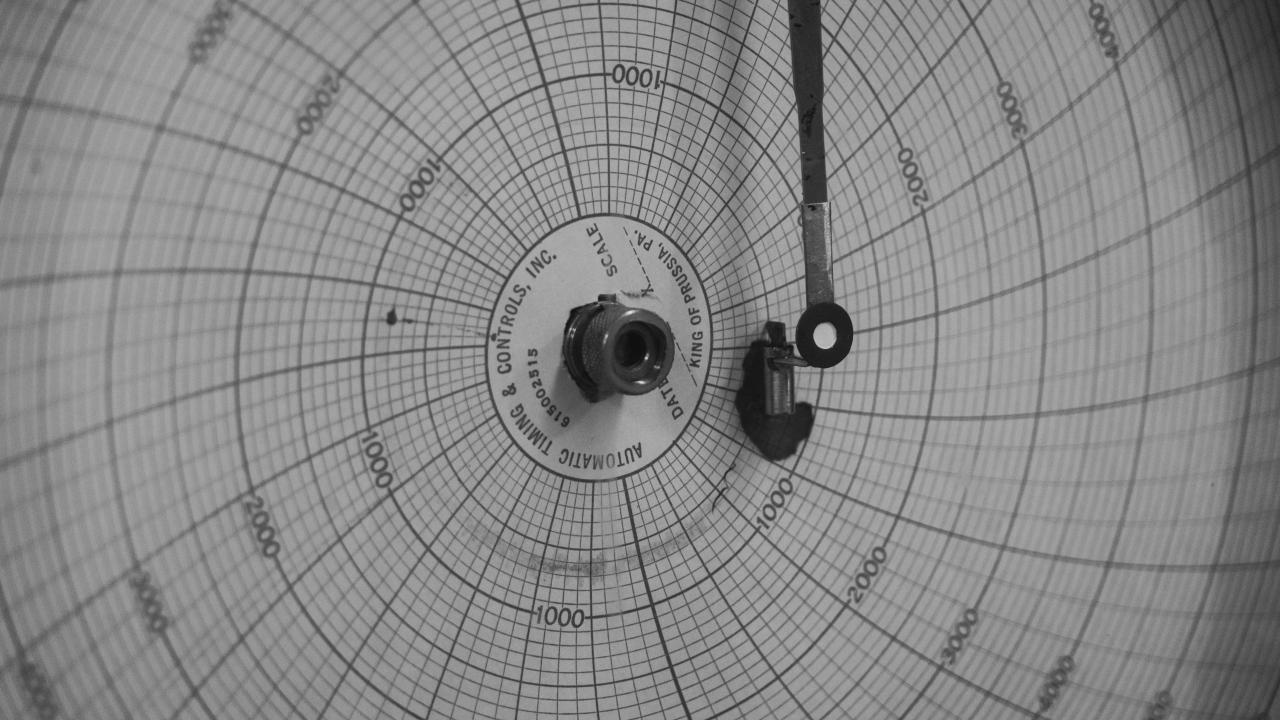Stories
Each story published here is based on true information shared by the family, is told in the first person narrative of
the missing person and ends with this demand: “Do not let my story end here”. This demand is a call to citizens to
take a step out of the collective amnesia and rally behind the right to know their fate and whereabouts.
Georges Abi Nakad
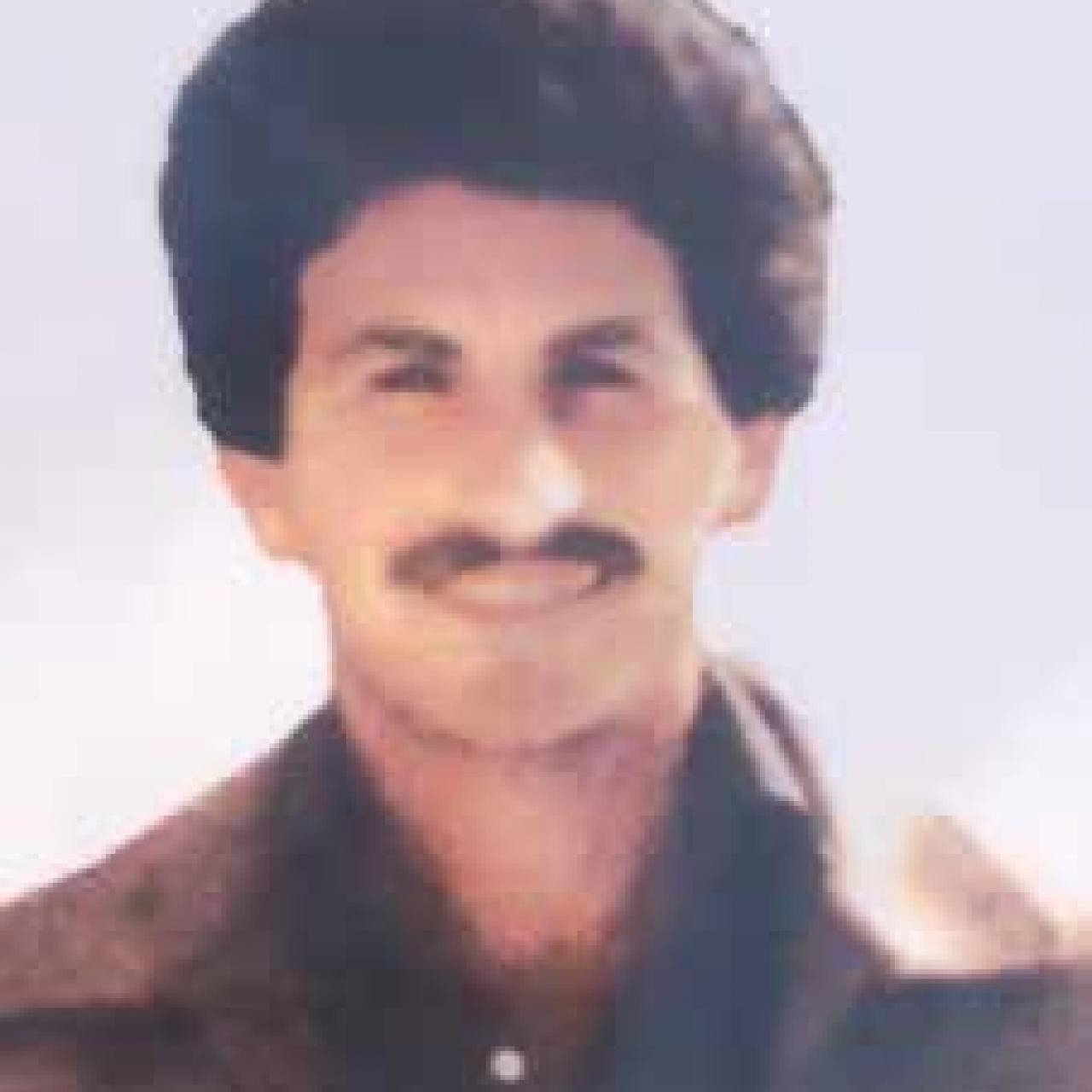
Georges Abi Nakad
My name is Georges. Similar to most guys my age I was fascinated with soccer. My sister used to always joke around telling my family and friends: “If you’re looking for Georges and you cannot find him, just go to the soccer field and there he will be”. I only wish that was true now… After graduating from high school, I was waiting for an opportunity to enroll in the Lebanese Military academy. Meanwhile, I kept busy tending to my mother who was sick at the time and helping my father at work.
On July 19th 1983, while I was driving the truck from Zahle towards Beirut, somewhere along the road, I disappeared. Coincidentally, that was the only day my father could not come to work with me; he happened to be sick so he stayed at home. After I disappeared, my father was willing to do anything to find me. He sold his tractor, his cultivated land and many other belongings in order to hire lawyers and investigators, yet all was to no avail.
My mother never lost hope that one day I would return. She kept waiting for me until her very last breath. She constantly told my siblings “If Georges returned after I die, just knock twice on my grave so I can be able to rest peacefully”. If I never get to return home alive, my only wish would be to be laid to rest next to her.
My name is Georges Abi Nakad. Do not let my story end here.
Charbel Zgheib
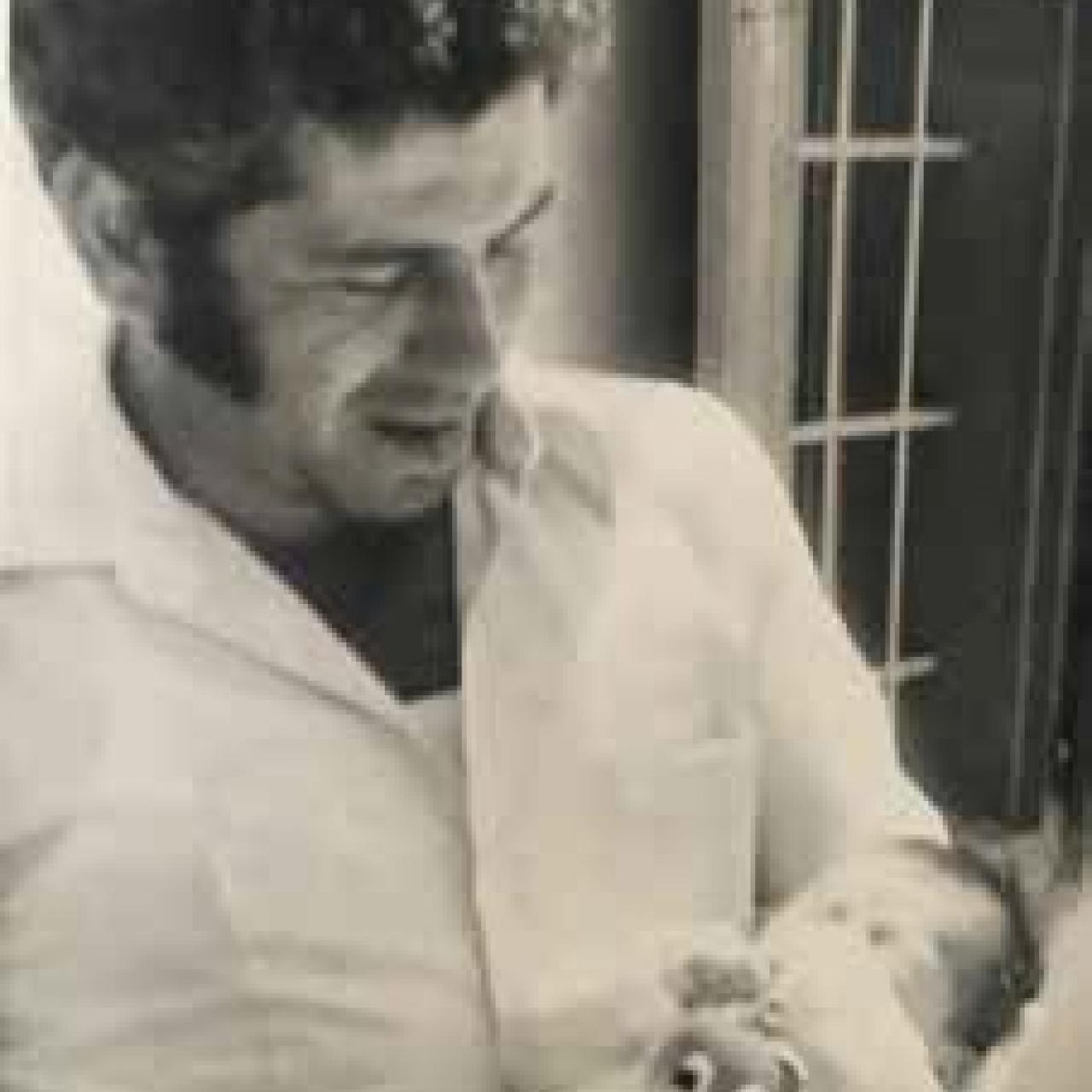
Charbel Zgheib
My name is Charbel. My wife Laure and I had been married for 11 years. I used to call her Sheikha. We had two wonderful children, Ramiz 6 years old, who loved to do everything like me and Rouba 5 years old, my little princess.
I was working hard as a taxi driver. Every day after work as I walked up the stairs to our home, I used to jingle the change in my pocket. The kids would know that I had arrived from the sound it made, and they would run to the door to greet me with hugs. I was such a lucky man.
On October 3rd 1983, I left home in the morning as usual to start my workday. I took a passenger to the airport. On my way back I was stopped at a checkpoint and I was asked to get out of the car. I never came back home. Ramiz and Rouba never heard their father walking up the stairs ever again.
It took years for my wife Laure to tell them that I had disappeared. How to explain? How to answer their questions? She told them that I was away and that I missed and loved them dearly. Laure began working two jobs as a secretary to ensure that our children were taken care of and able to attend school. This was also the time her long and painful search to find out what happened to me had begun. For months, she reached out to many politicians to find out where I was being held and if I would ever come back. She never received any answers.
Until one day, a man who heard Laure speaking of my disappearance on Kalam El Nas, contacted her to tell her that he was detained with me in Syria. What a great relief that was for her; I was still alive; this gave her hope that one day I would return home. As time passed, her despair grew. Laure still had many questions but no answers.
My name is Charbel Zgheib. Do not let my story end here.
Saeed Khabbaz
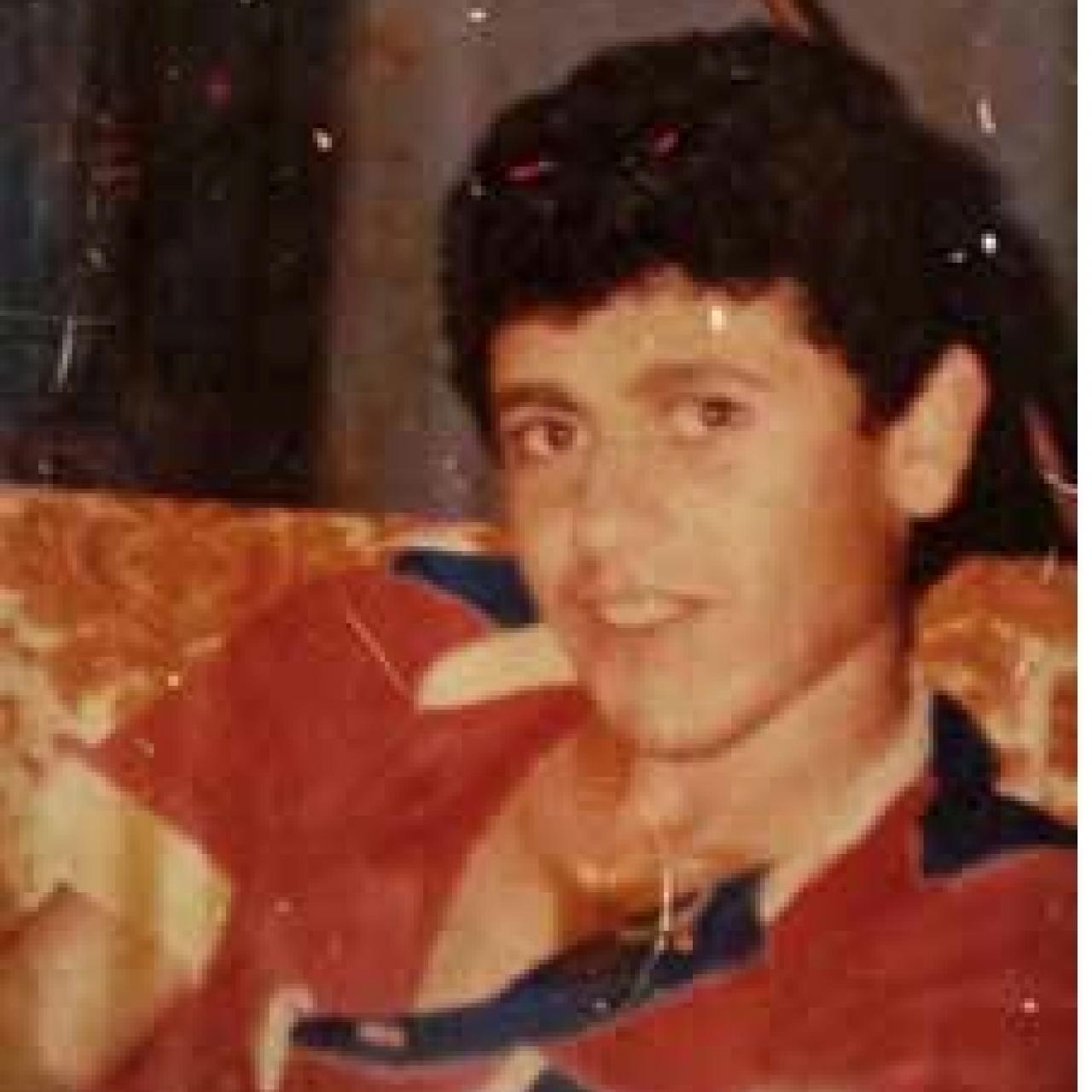
Saeed Khabbaz
My name is Saeed and I was 17 years old the day I was asked to step out of the taxi. It was on March 12, 1985. I had left my home in Zgharta to go to Beirut. I did not know then that I would never see my home again. I was not registered in school.
My father had died and I was looking for a job to help my mother and two siblings. I had no problem helping out; I used to take on summer jobs anyway, and I would gladly help with house chores. They used to say that I was mature for my age. My plan was to get my papers ready and join the army. I loved to visit my older sister Lina, who was married. She lived in Amchit, which was calm. It felt nice to escape the tensions of the war. We would go together for walks and visit friends. We shared a bond that only siblings can have; during one of our many heartfelt conversations, I also told her about the girl I liked.
My family spent a great deal of time looking for me. After a heavy search and many investigations, my family was able to find two people who claimed to have seen me in a detention center in Syria. Some days, my family finds it difficult to talk about me, but they continue to hope that one day they will find out what happened to me.
My name is Saeed Khabbaz. Do not let my story end here.
Imad Abdallah
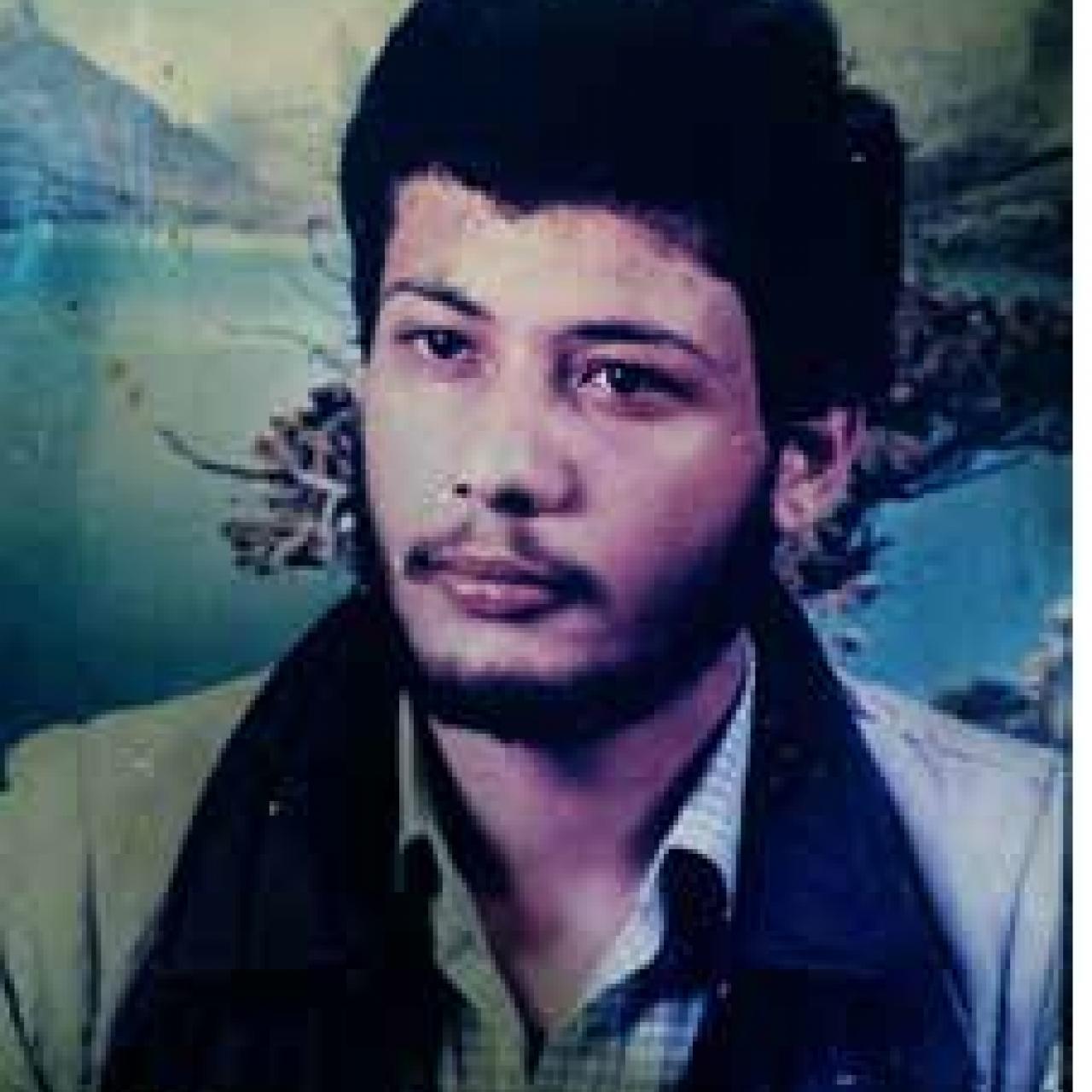
Imad Abdallah
My name is Imad. I am the youngest in a family of 5 children. My eldest sister, Samia and I, were very close. I was only 9 when she got married and moved out. I used to visit her every day after school and on the weekend, we used to take her son to the beach. My 2 brothers often teased me because I was very quiet and romantic. I loved to keep a journal where I would write love letters and poems. I was about to get engaged to a girl called Samira, but my plans for a new life with the girl I loved were cut short on a tragic day in 1984. That day I was with my two friends, Mohammad and Dorgham. We were driving back from a wedding in Tripoli to Beirut when we were stopped at a checkpoint. Dorgham was killed immediately but Mohammad and I were taken away. Years passed and the war ended but I did not come back, along with thousands like me.
By the end of the 90’s many people were released from Syria. Among them, were people who told my sister that they had seen me in detention. You can imagine the relief and joy my relatives felt. In 2003, after a man from Saida visited his brother in a Syrian prison, he brought back with him a hand written letter I entrusted him with, and delivered it to my sister. It was a confirmation that I was still alive and that I would someday return home to my family. This letter was followed by a second and final one. When the war in Syria started, my family was hoping I would be released but their aspirations fell apart, just like those of hundreds of other families.
They don’t know where I am and whether or not I’m still alive, but even after 32 years, they still believe I might return. You might think this is foolish, but a few years ago a person came back from Syria after being detained there for over 30 years. Why stop hoping when there is even the smallest possibility?
My name is Imad Abdallah. Do not let my story end here.
Ali Mustafa
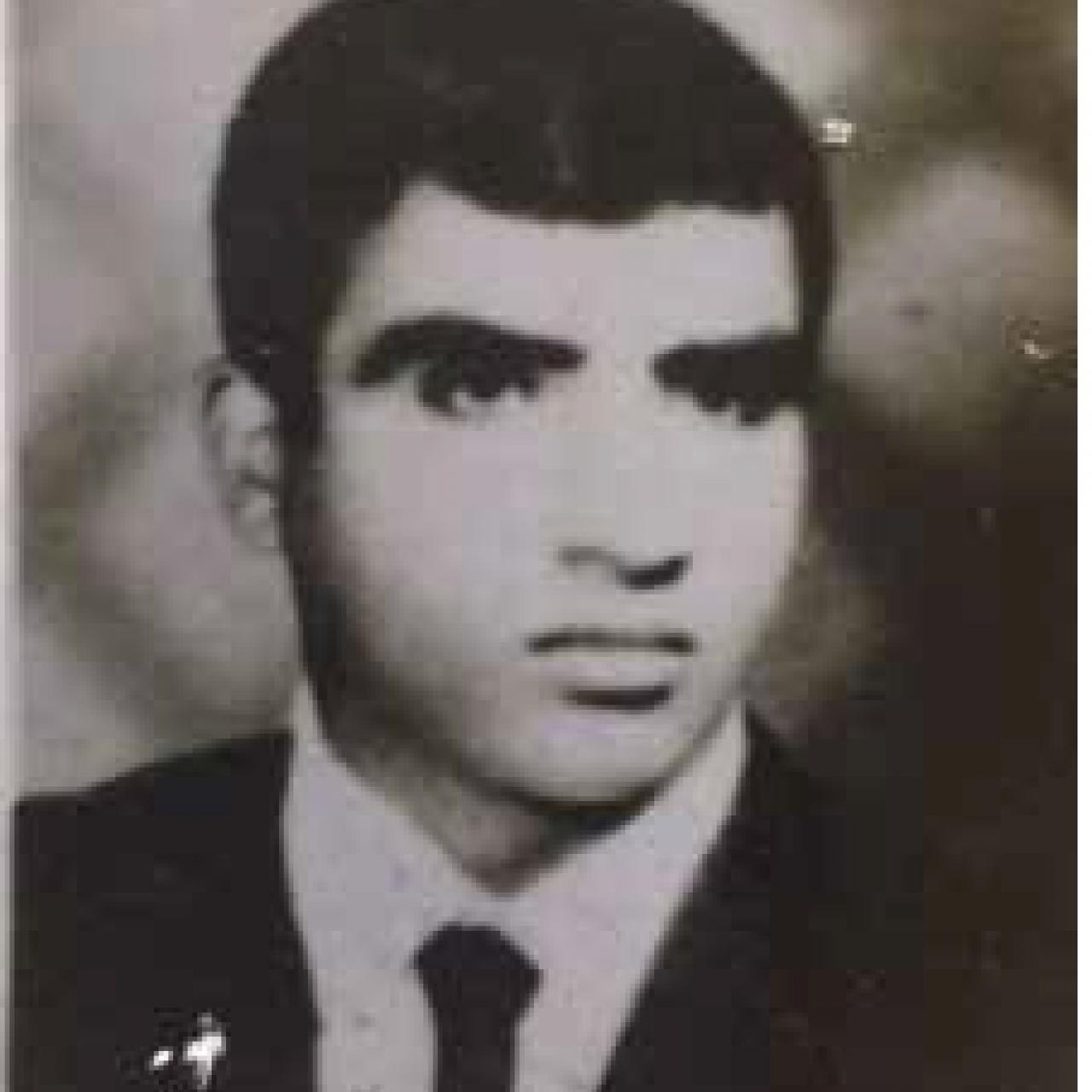
Ali Mustafa
My name is Ali. When the war broke I was a worker at Beirut port. One day, as I was working, I heard shouting and gunfire shots, and saw people running. I immediately understood what was going on and had no choice but to run for my life. Some of the employees - who were not a target due to their religious identity – hid in their colleagues’ offices. I, like many others decided to escape swimming out to the sea, but it was too late. they were already here... I did not have time to get away.
It was on December 6th 1975, an infamous date known as «the black Saturday». I was 25 years old and my son was only 2 months old. My wife never got remarried. In order for that to happen, she would have had to declare me dead. My relatives could never get themselves to do it. They would have had the feeling that they abandoned me. I am one of hundreds of anonymous victims who died that day and whose families refuse to give up their right to know. Rumors of being thrown in the sea or moved to another part of Beirut to be buried are the only answers my family has to date.
My name is Ali Mustafa. Do not let my story ends here.
Ahmad Herbawi
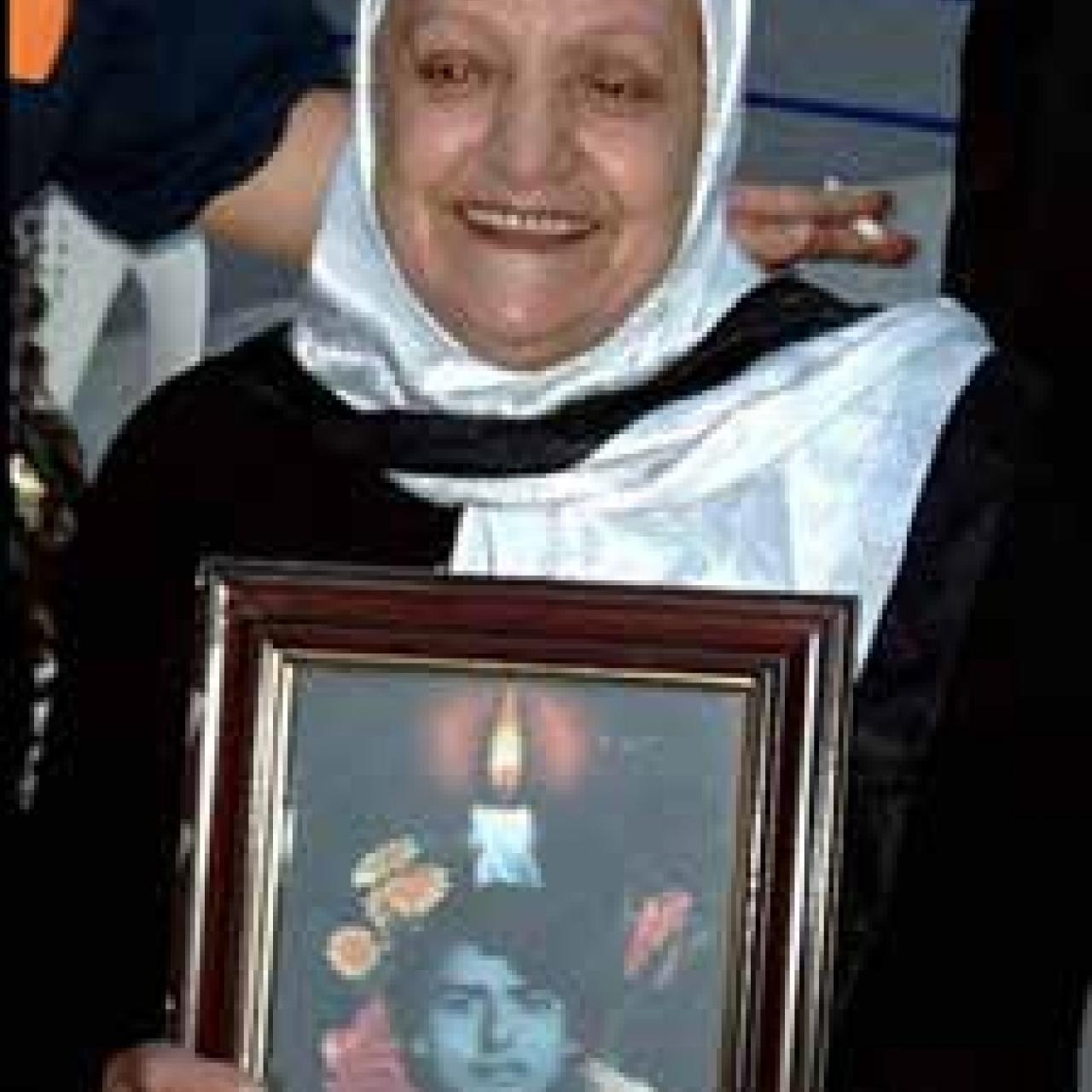
Ahmad Herbawi
My name is Ahmad. I was the eldest boy in my family and I took that role very seriously. After my father passed away, I became the primary breadwinner of my mother and my six siblings. I was a responsible person but I also loved to do some mischief with my brothers. We used to sneak out of the house and go to martyrs’ square to meet up with some friends. Although this would often lead us to a lot of trouble with our mother, trouble which I would always take the full blame for myself.
By the time the war had started I was about to open a shop to support my family, and in order to settle down and start a family of my own. But my plans were cut short. Few months into the war and as the clashes intensified, we decided to leave the Nabaa area - where we were living with my grandmother- to settle in West Beirut region.
One day, while I was with my mother and my sister in a taxi returning from our visit to teta back to our new place, we were stopped at a checkpoint. I was asked to get out of the car, along with two other passengers—leaving my mother and sister in the taxi. My mother, Khadija, shouted and begged the armed men to let me go. But they did not.
Just like many other families of missing persons, she received calls from people promising her to speak to me over the phone in exchange for money. She would pay them every single time, hoping that this time would be different, that she could trust that person. But she never got to speak to me. These people only took advantage of her situation and exploited her despair. She became devastated which took a toll on her health.
Since then, she never stopped searching for me. She met with other parents who were going through the same pain and together they started asking for the release of their loved ones. To date, she has attended every single demonstration and gathering, calling for answers. A few days ago, on mother’s day, she passed away. Like Odette, Nayfeh and many other mothers, she died without knowing what happened to her son. However, their fight is not over.
My name is Ahmad Herbawi. Do not let our stories end here.
Wajih Zahlan
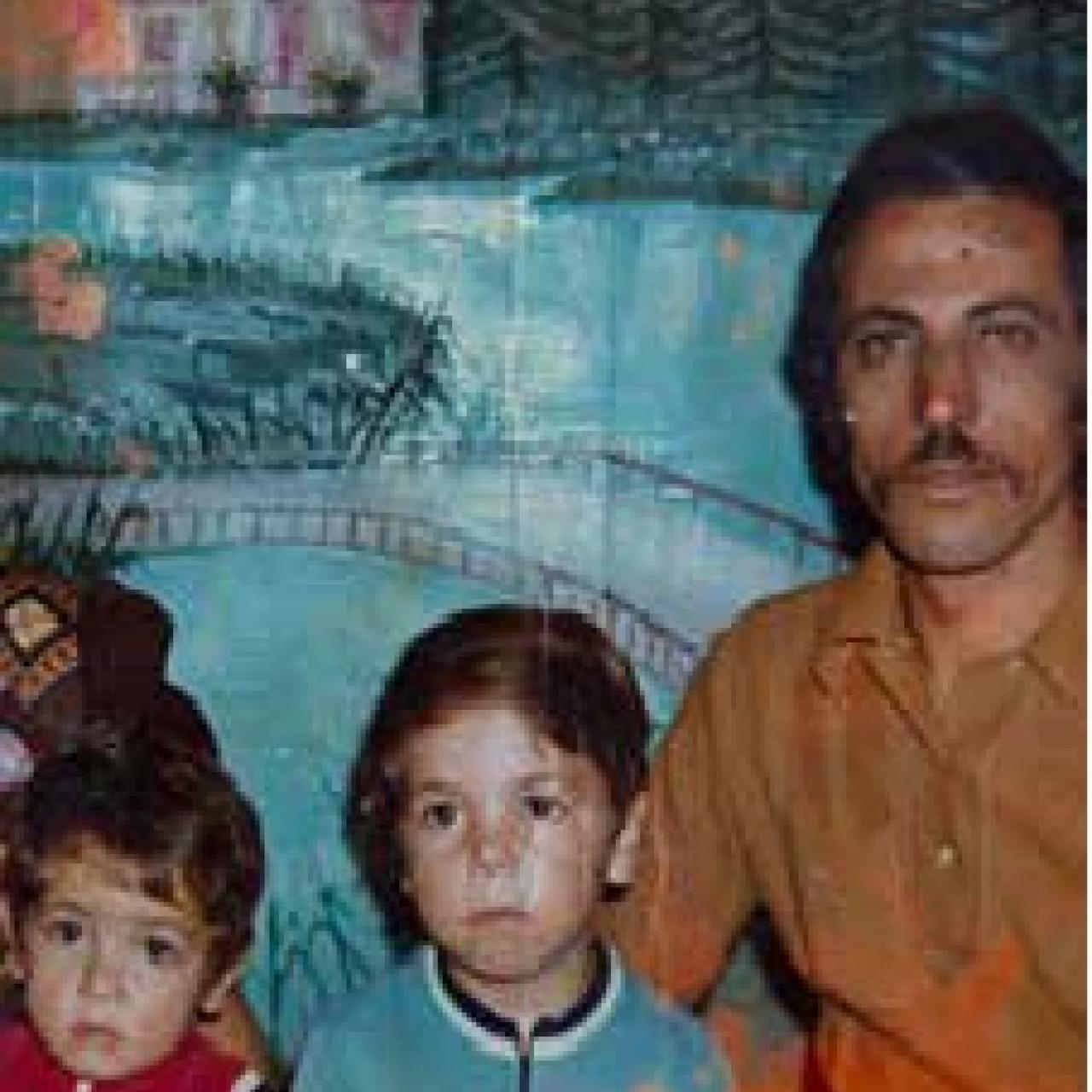
Wajih Zahlan
My name is Wajih. At the age of 38, I was married with four children, living in Aley and working as a foreman. The war had been going on for years, but I had intended to live my life regardless. I was not affiliated to any party or prone to any activism. What mattered to me the most were my work and my family. I was a strong man, and I liked to work with my hands. My son Ayman, who was very young at the time, would say that I was strong enough to break a stone with my hands.
I liked to spend the evenings with my friends and family. We used to gather at my place for musical sessions. I loved to sing. Life was good, really. Until one day, life changed forever. Not just mine, but that of my loved ones too.
On August 12th 1982, I was on my way to the Bekaa, for a repair job. I left home at 5 in the morning, while everyone was still asleep. I was supposed to call my wife when I reached the Bekaa but I never did. My car was later found not too far from our home, near Bhamdoun.
My children’s ongoing search for me led my son to an abandoned detention center. There, he found a pile of passports belonging to many of those who were taken there, including mine. This is the only information my family was ever able to gather. They are still waiting to know what happened to me till this day.
My name is Wajih Zahlan. Do not let my story end here.
Qozhaya Shehwan
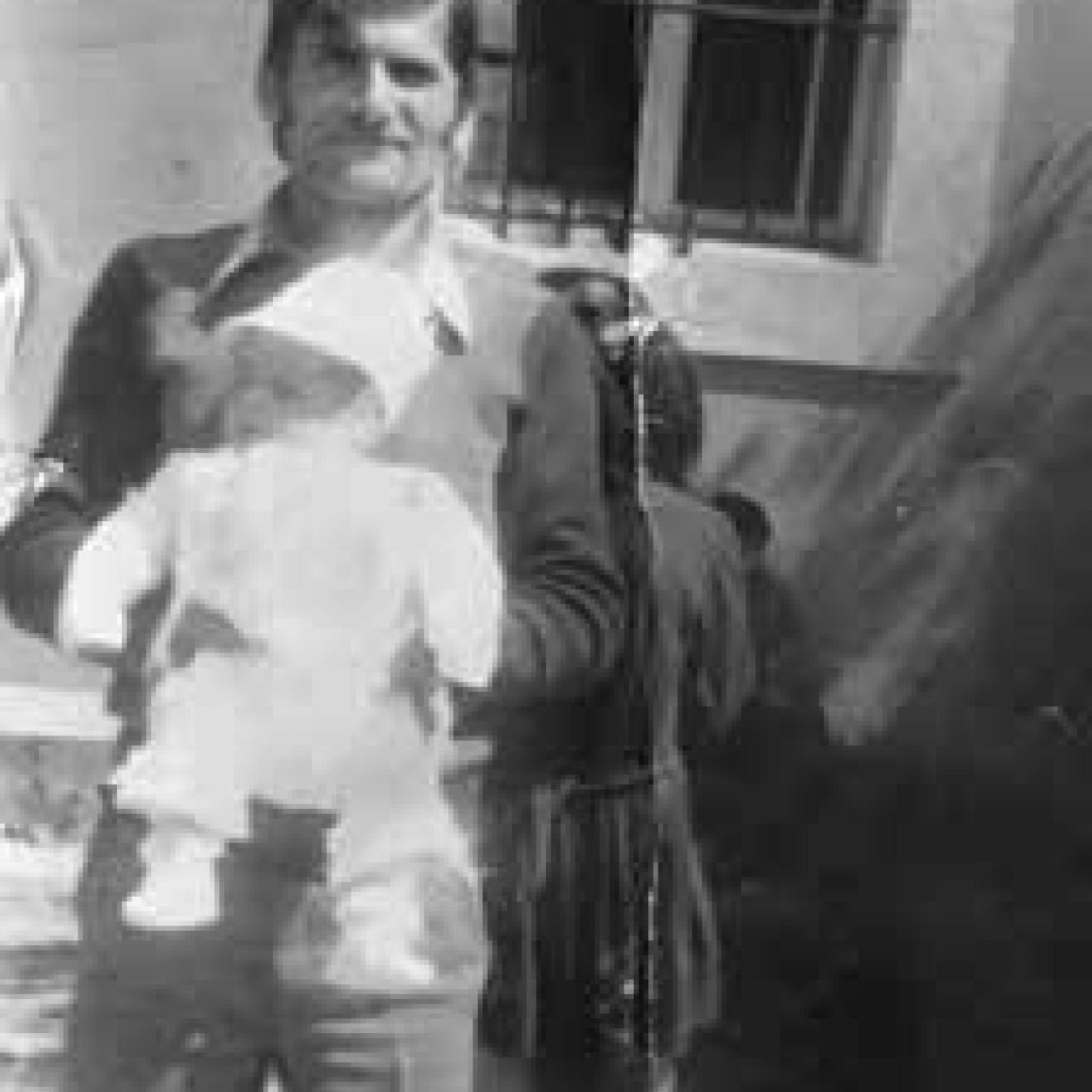
Qozhaya Shehwan
My name is Qozhaya. I was born in December 1951, in Northern Lebanon. I lived in the town of Batroun where I raised a family of four children with my wife and lead a quiet peaceful life. I would go to work at the Selaata chemical company, and then straight back home to help bathing the children and feeding them, and to spend time with them. I have one son and three daughters. My two-yearold, Micheline, would only fall asleep in my arms.
We managed to put some money aside and buy a plot of land. We had started to build the foundations for our new home. My greatest pleasure was to visit the land with my wife. As much as I enjoyed my family and my friends’s company I also enjoyed my solitude. Living by the sea was an added blessing. I loved hearing the waves break on the shore and watching the water glistening under the sun.
I was at work when I received a call from the Syrian intelligence services. They took me away and I never returned home.
My wife Naheel searched for me everywhere. She was finally able to see me only for a few minutes in a Syrian prison. After that, there was no more news about me.
My name is Qozhaya Shehwan. Do not let my story end here.
Ahmad Dirawi
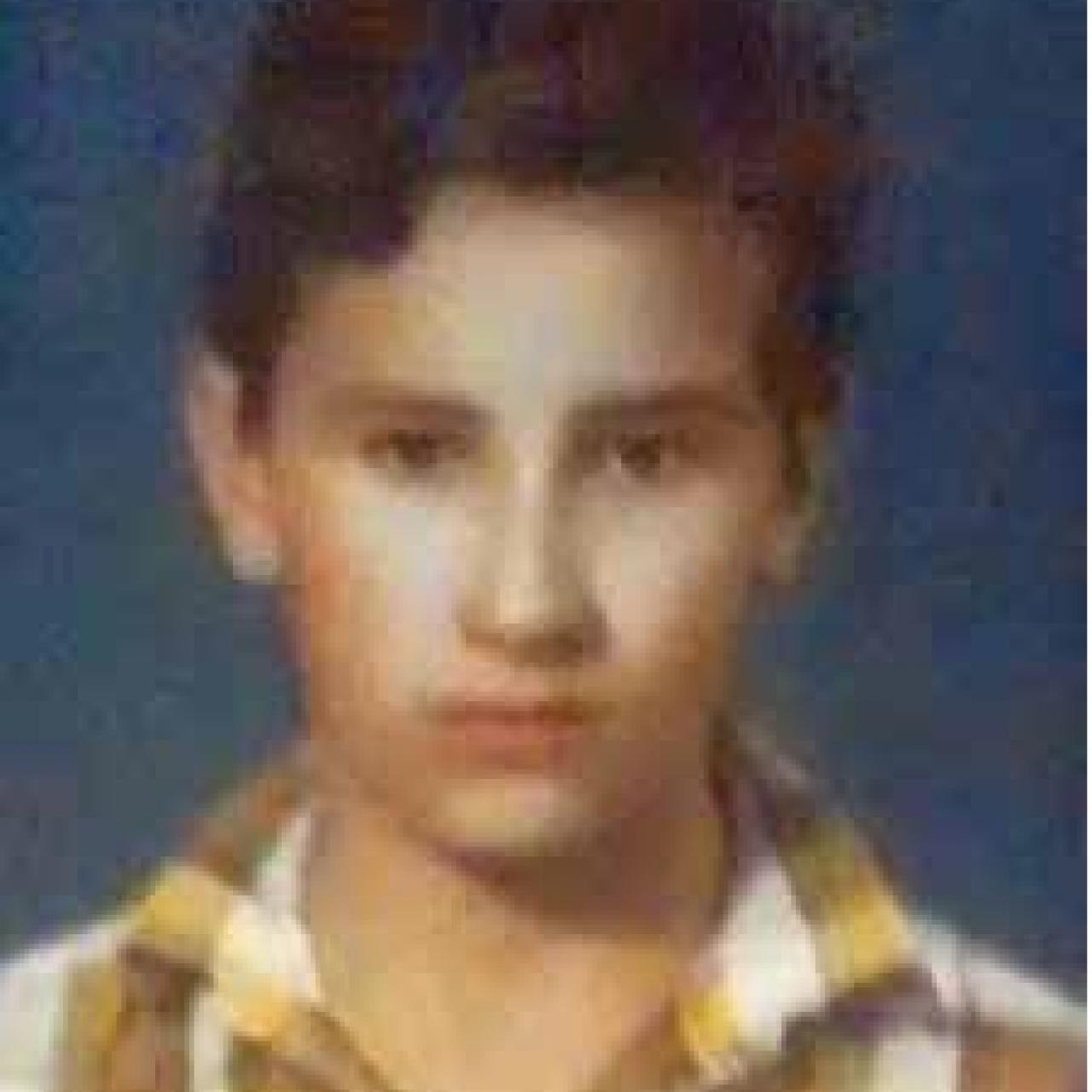
Ahmad Dirawi
My name is Ahmad. I was 13 years old when I went missing on September 17th 1982, in the events that are today infamously known as the Sabra and Chatila massacre.
Before that date, I was one of the best students in my class; I loved going to school and was particularly fond of writing. I also liked to memorize part of what we study, like poetry, the names of famous figures and remarkable dates in history. I used to hang out with my friends, although I also really enjoyed being by myself.
My mother would always tell me that I would grow very tall when I become an adult. At that time, I was still a child who is afraid of the dark. And when I went missing, my mother’s biggest concern was that I would be kept somewhere dark. She knew my fears, the fears of a 13-year old child.
My name is Ahmad Faysal Dirawi. Do not let my story end here.
Kariman Ahmad
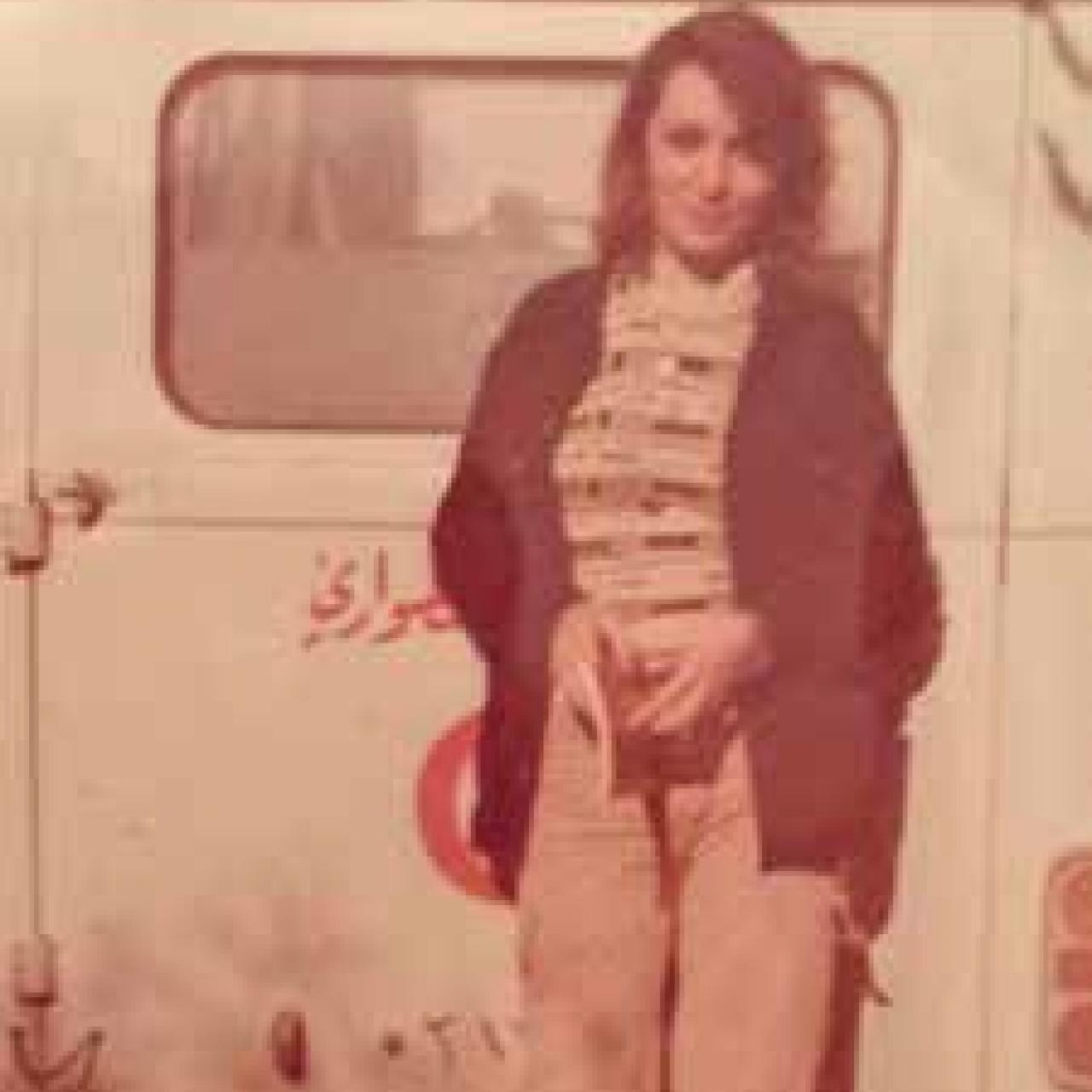
Kariman Ahmad
My name is Kariman. I was born on January 23rd 1956. I was not yet 20 years old when the war in my country broke out, but I was old enough to throw myself into it and experience it first-hand. I became a medical nurse, and spent long days and nights doing relief work and social support. During that time, I also got married and became the proud mother of Rasha and Ziad. From that perspective, life did go on during the war.
I come from a big family; my parents bore eight children. Today, only one of my siblings remains in Lebanon; for the others have emigrated. As for me, no one ever knew what happened to me since that day in June 1986.
As I was on the way back from visiting my parents while looking forward to seeing my children, somewhere between Beirut and Saida I was kidnapped. The war had been going on for ten years, and even though I was deeply passionate about helping my community, my wish was to relocate with my two children and to settle somewhere safe and quiet; where I could pursue further studies and where my children could grow up without the sound of bullets and explosions.
I was 30 years old and that was my dream the day I was forcibly disappeared along with thousands of people like me who had similar dreams that vanished on one dark day of the war.
My name is Kariman Ahmad. Do not let my story end here.
Ali Hamadeh
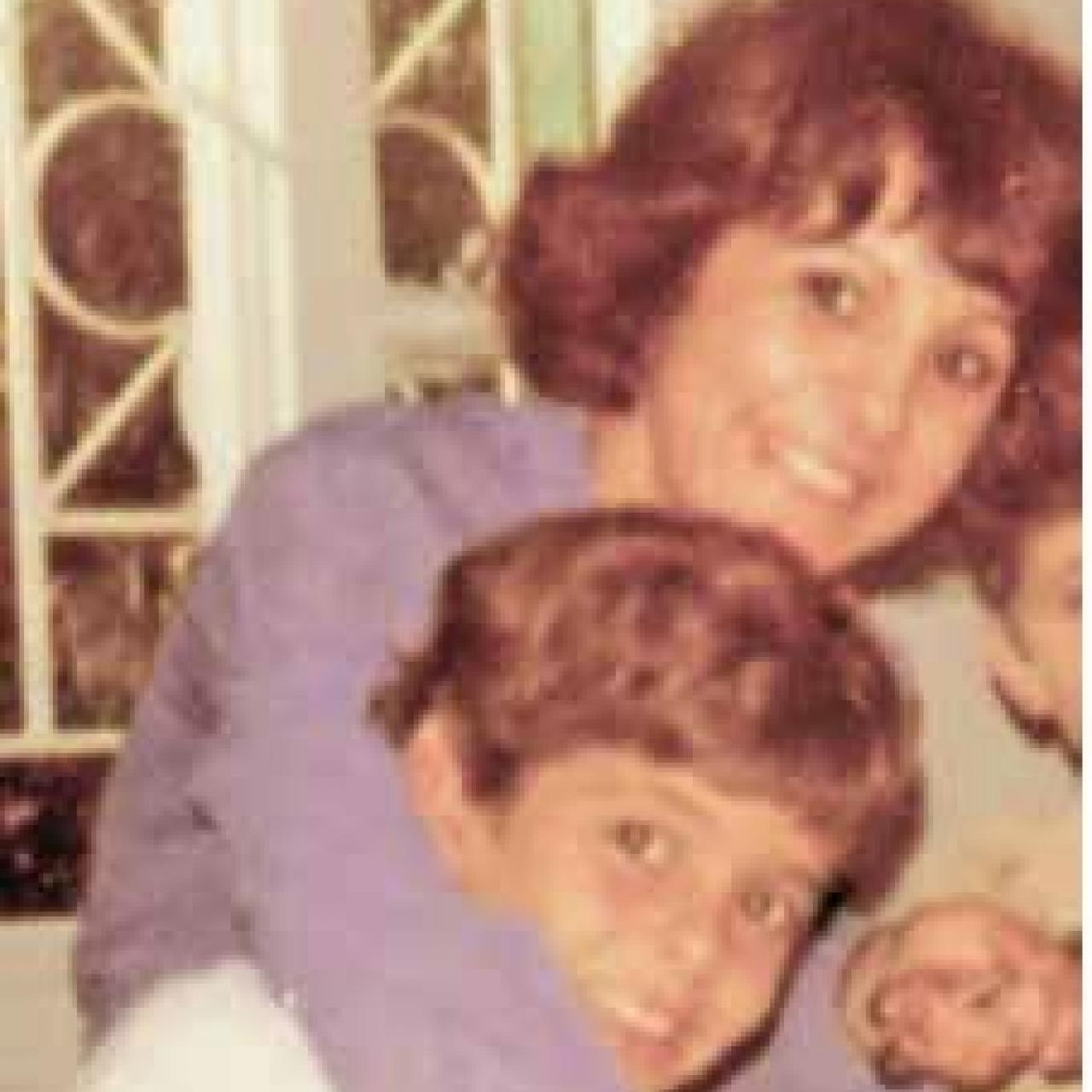
Ali Hamadeh
My name is Ali. I was born in 1971. Unlike many families in Lebanon, ours was small; it was only my mother Nayfeh and I . My father had passed away before I had the opportunity to know him. However, my mother gave me the love and support of both a mother and a father. Every day, I would go to school, and she would head to the offices of the Al Safir newspaper where she worked. Every once in a while, we enjoyed short journeys from the city to the mountains where we would visit my grandparents in Qumatiyyeh - those trips were needed to escape the violence and the turmoil that engulfed Beirut.
Ironically, it was after one such journey that I went missing. On March 26, 1984, after spending the weekend with my grandparents, a friend of the family was driving me back to Beirut and was supposed to drop me off at the Mathaf crossing. That was the last time anyone saw or heard about us.
Our families never found out what happened to us. To them, we simply vanished. My mother published several letters in Al Safir newspaper, in the hope that somehow, somewhere, they would reach me. She pleaded that no matter how badly they might harm me, I would not allow those responsible to plant the seeds of evil in my heart nor deprive me of my innocence. She wrote about us leaving the country as soon as I return and about her wish to protect me. Sadly, this never happened. I never returned. Nine months later, on December 27th, my mother took her own life in desperation.
I was 13 years old the day I disappeared; that was the day my mother was left childless; the day my life was cut short.
My name is Ali Hamadeh. Do not let our story end here.
Stavro Andrioti
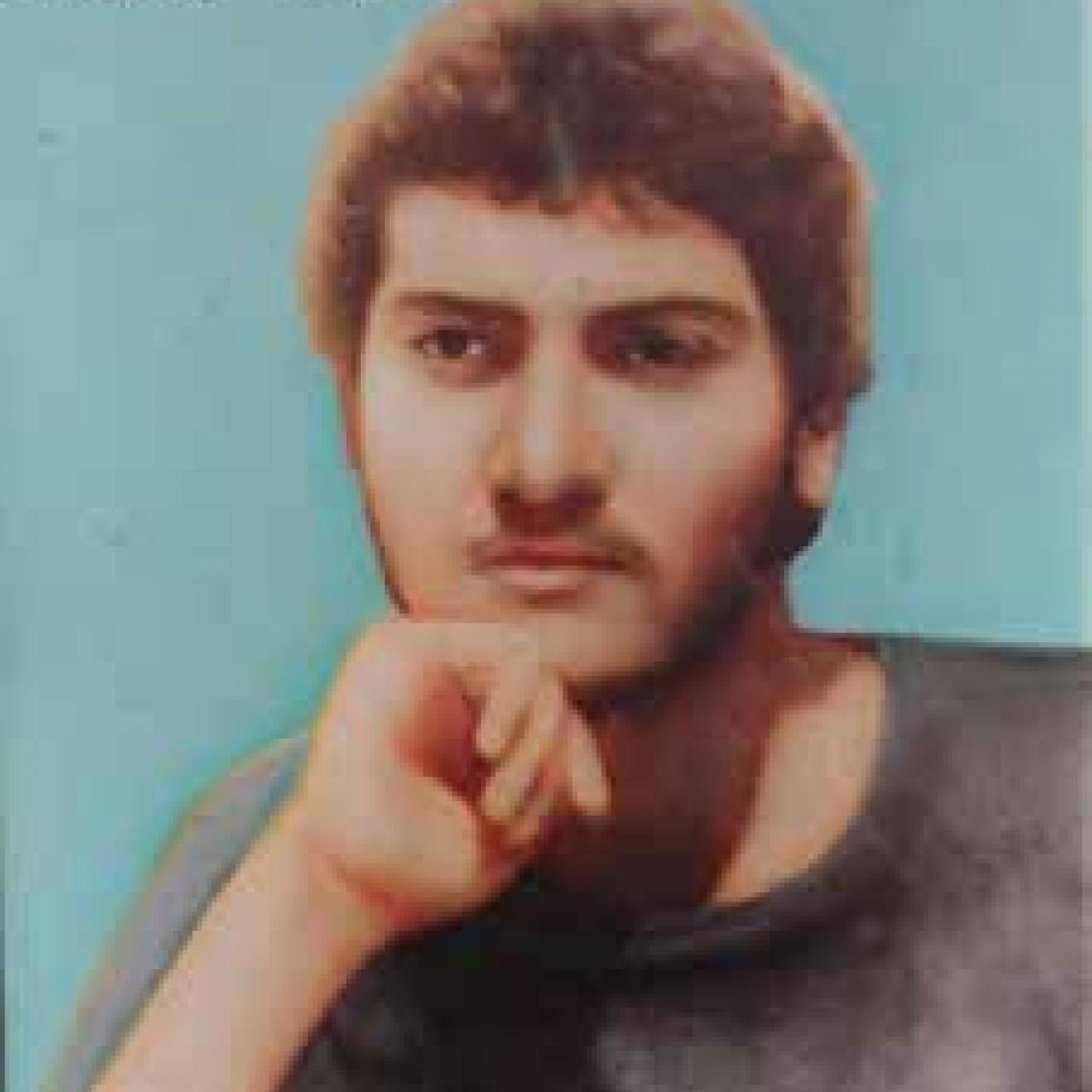
Stavro Andrioti
My name is Stavro. I was 16 years old the day I went out with my friends but never returned. I was studying to complete my Brevet. I hated history, but my mom would help me study by reading the lesson in the form of a story so that dry historical events become easier to remember. I was really good at maths though. I wanted to become an electrical engineer.
I had a younger brother who had died when our balcony was accidentally hit by a shell a few years before. I was a big support for my mother Maggie after his death, yet the war continued to ravage my family.
On July 7th 1978, I left my house in Sid El Bauchrieh, with my friends to spend some time with one of them before he left for the USA. We all hopped into one car and went to grab a drink in Fanar to say our goodbyes, but we never made it there. Eyewitnesses say that a yellow car stopped and two armed men stepped out and forced four young boys to go with them. My family believed this to be me and my three friends especially when someone described one of the boys as being tall, with blonde hair and wearing a blue shirt.
My mother spent years going to detention centers across the country and in Syria to find any information about me. She never received any answers.
Today, she lost all hope that I would return alive. All she wants is a trace of my remains back, so that she can bury me properly and have a place where she can go to mourn and be with me.
My name is Stavro Andrioti. Do not let my story end here.
Samia Mahmoud
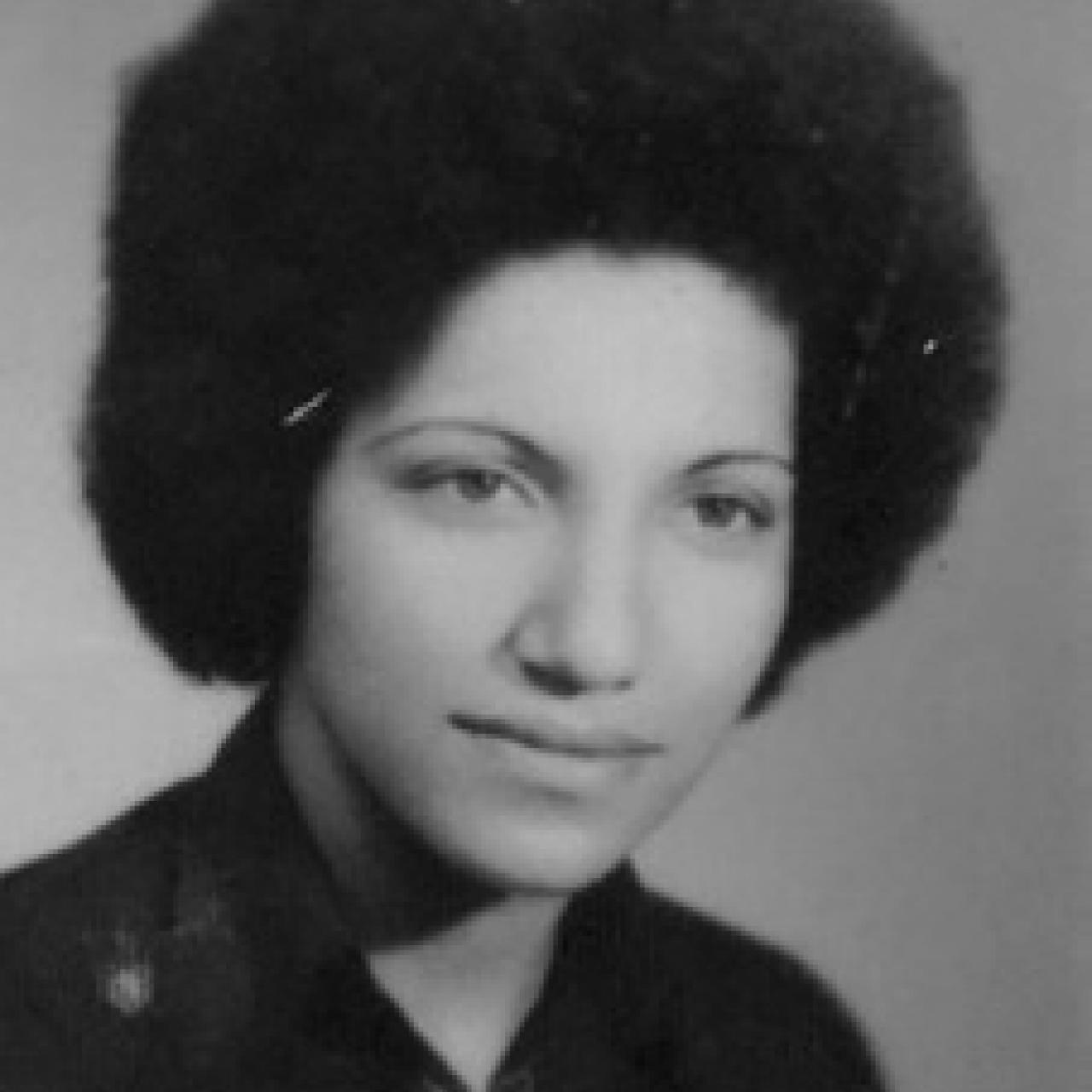
Samia Mahmoud
My name is Samia. I was a university student living in Moscow. I was happy there as I felt safe. I did not want to return to Lebanon. Ten years ago, my father and my two brothers were killed in Tell el Zaatar; and in 1988, the war was still going on. However, my mother missed me and asked me to come home for the holidays which I did.
I visited family and friends, and it was truly lovely. When it was time for me to go back to Moscow, the airport in Beirut was closed as it was often the case in those days. So my friends and I - four girls and one boy - took a taxi to Damascus from where we were supposed to fly out. But we never went further than the National Museum crossing in Beirut. We were all kidnapped. Taken with our belongings and never to be heard from again.
Imagine my mother’s plight; she had already lived through the killing of her husband and two of her sons. She ended up leaving the country. She packed up all of our belongings, even the dried red rose in my book, and went to Germany.
My name is Samia Mahmoud. My friends’ names are Raya, Mona, Hanan and Younes. Do not let our story end here.
Ramzi Abdel Khalek
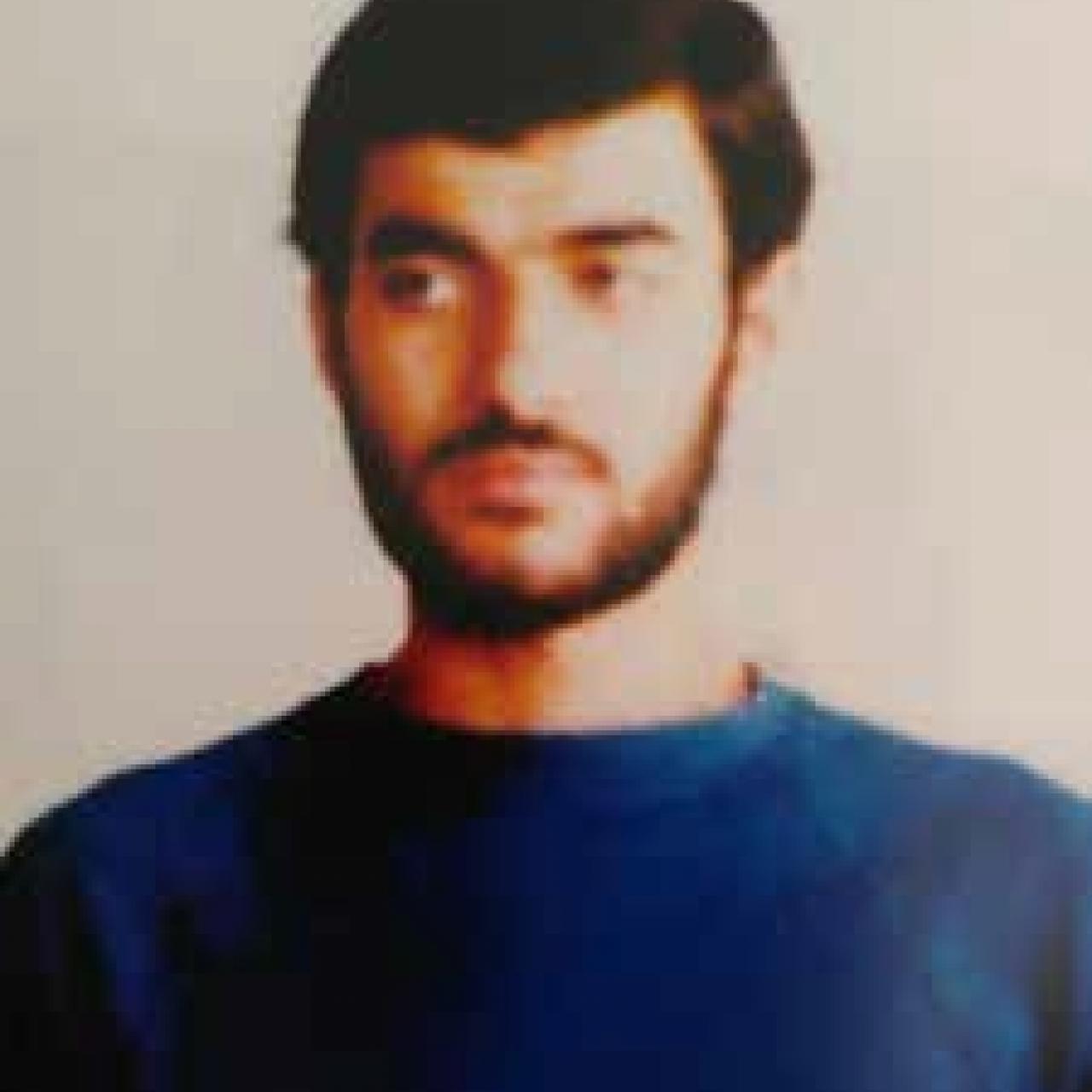
Ramzi Abdel Khalek
My name is Ramzi. I was a 21 year old AUB student. I used to spend my time either in class or with my friends. My life was not any different from that of a modern day college student. The only difference was that I had to drive by neighborhoods marked with the presence of militia men. Places where I was at risk of getting stopped at a checkpoint.I was aware of the dangers but I was not conscious that it could happen to me.
Was it my youth and optimism that had me denying that my fate could be similar to thousand other misfortunates? Or maybe it was the secular environment I was raised in that held me back from believing that the indication of my religious sect on my identity card would pave the way for so much suffering?
On July 29th 1982, when my friends came to pick me up at the end of the day, I was not home. A couple of days later, my car was found and recognized by the AUB stickers I had put on its back.
34 years later, my disappearance remains a source of pain and suffering to my loved ones. My sister Dima often wonders if the people that kidnapped me that day knew that their act would generate this much suffering.
My name is Ramzi Abdel Khalek. Do not let my story end here.
Mohamad Mustafa
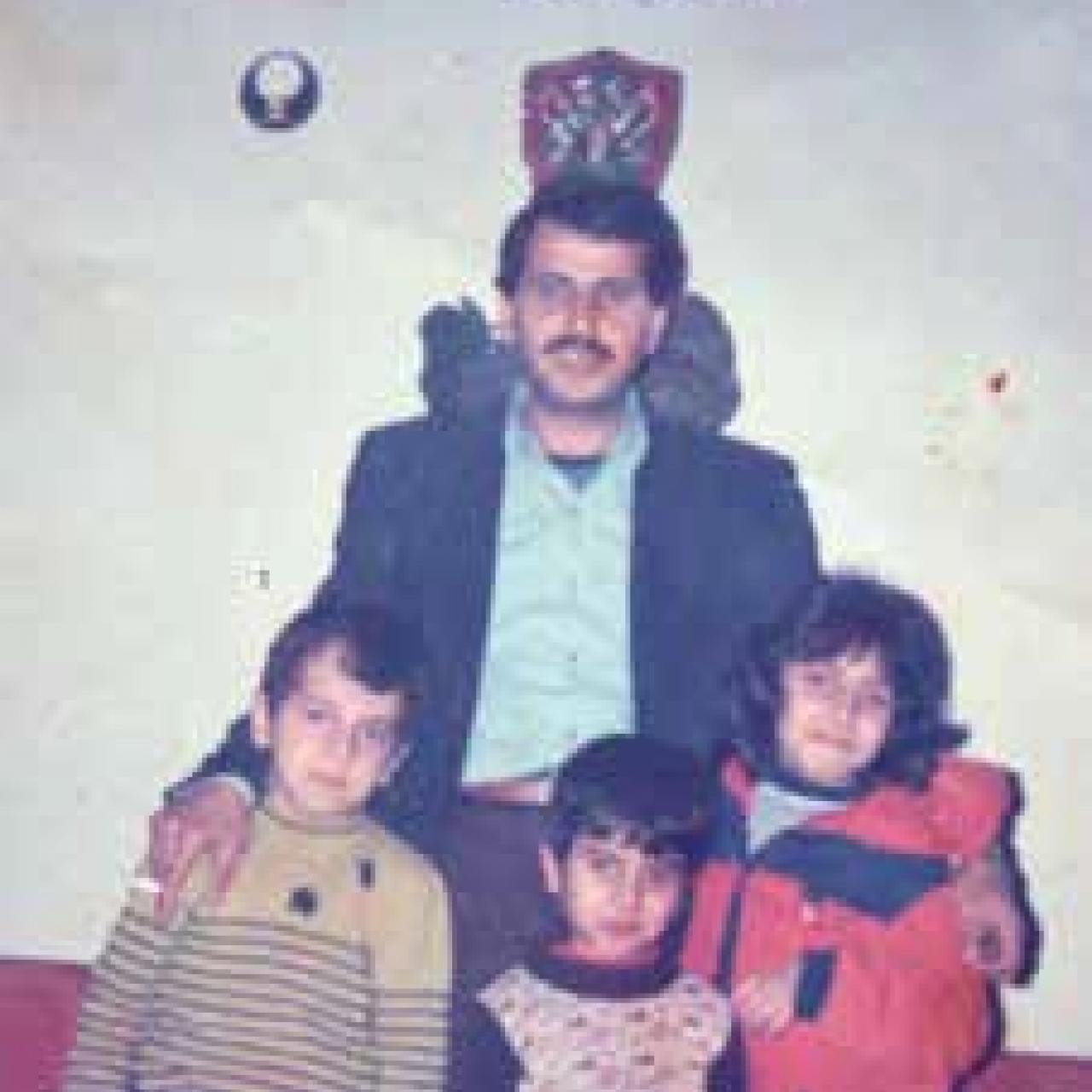
Mohamad Mustafa
My name is Mohammad. If you were to ever visit my house in Tripoli, you will see that it is filled with pictures of me. This is how my wife maintains my presence at home. She is the most courageous woman I know. During our time together, she bore me six children, but unfortunately two of them did not survive. She dedicated her time to raising our two sons and two daughters. She had to do that mostly on her own, since I was working between Oman, Qatar and Riyadh as a construction engineer and only saw them once every few months.
After a while, I decided I wanted to spend more time with my children and see them grow up, so in 1987, I returned. Sadly, I was only allowed to enjoy three months with my family. In November 1987, a group of armed men stormed into our house at 3am, and took me away. As they blindfolded and handcuffed me, I could hear my wife shouting. I could still hear her voice as they put me in a truck, and beat me with sticks.
Since that day, my wife has been looking for me, going to detention centers in Syria and in Lebanon; she even received threats… but she never stopped. I am lucky to have such a courageous wife.
My name is Mohamad Mustafa. Do not let my story end here.
Mohammad Abbas
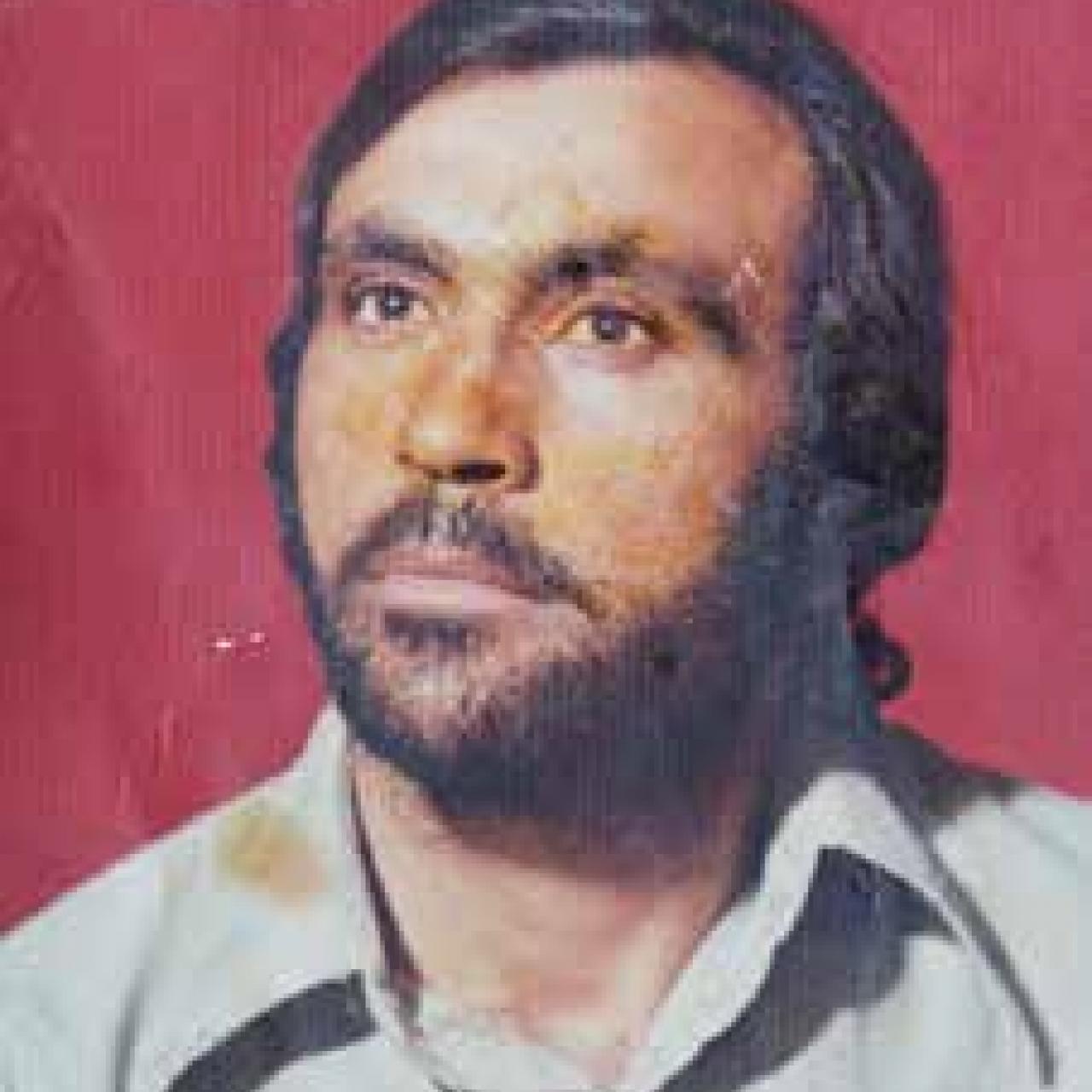
Mohammad Abbas
My name is Mohammad. I was 34 years old when I went missing on August 21st 1978. I left behind a loving family, a wife, and four daughters, Ibtisam, Amal, Sana, and Salam, who was only 10 years old.
I was living in Saudi Arabia, working as a tiler. Like many men my age, I decided to live and work there to be able to offer my family a better life. My dream was to move back with enough money to buy a house and live with them. I would return back to Lebanon regularly to visit them. I would eagerly anticipate every moment I could spend with them. My favorite memories were having long talks with my father and going on picnics on beautiful sunny days before the summer heat came.
As the war raged on in Lebanon, I became more worried about my loved ones. In 1978, as the situation worsened, I decided to drive back to Lebanon to visit my family during the holy month of Ramadan and to bring them back with me to Saudi Arabia where they would be safe.
My family waited for my arrival, but I never made it. After days of wait and worry, my brother-in-law travelled to Saudi Arabia and Jordan hoping to find me. The only information he was able to get, was that my journey had stopped shortly after I crossed the border into Lebanon.
My wife and daughters suffered greatly from my disappearance, and I missed so much of their lives. They spent most of their time trying to find out what happened to me and to make up for the fact that I am no longer there to provide for them.
My name is Mohammad Abbas. Do not let my story end here.
Milad Youssef
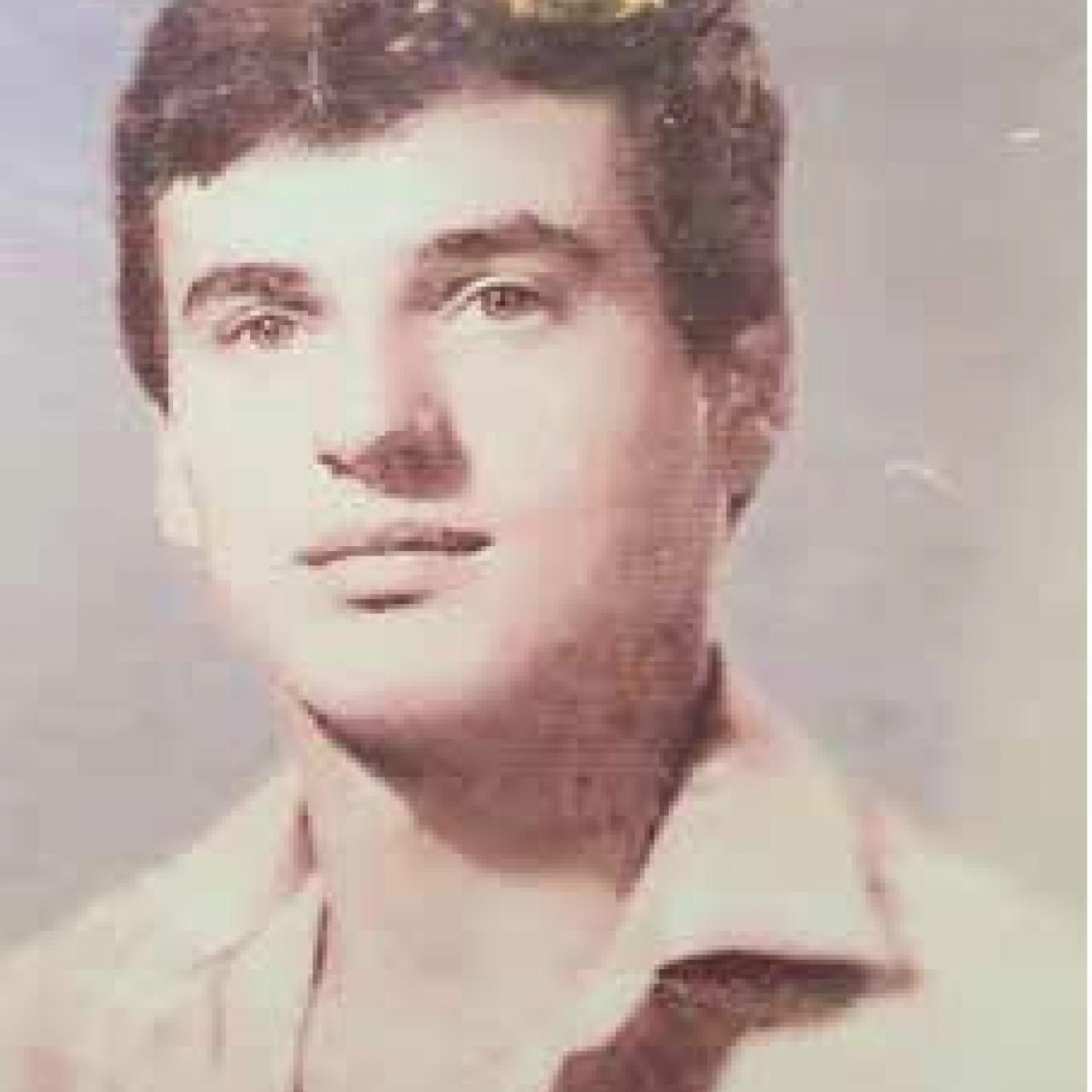
Milad Youssef
My name is Milad. I was born in Ein Majdelein in the Jezzine district, in 1965. I was a mechanical engineer working at the Volvo company. My family used to believe that I was in love with my cousin. I kept this a secret to myself. I was a fun guy that did not take life too seriously.
My sister Jeanette was my favorite game partner. We used to spend our time fighting. When the war battles would force us to find shelter in the ditches, we would kill time and overcome our fears by playing cards. One day, after losing a hand to my sister, I had this gruesome idea of throwing an apple to her face which hurt her and made her bleed. This had cost me a decent punishment from my father. Today, Jeanette remembers this moment as she examines the small scar near her eye, all filled with emotions. Today, her scar and the few photos she has of me are my only remaining traces.
August 30th 1983, aged 18 years old, I disappeared. I had just joined the Lebanese army and was positioned at the airport checkpoint, the one linking Beirut to Mecharafieh. It was there that armed men kidnapped me.
Last Friday, the International Committee of the Red Cross declared that it was collecting DNA from the families of the missing to be able to identify the human remains buried in mass graves. It is a very important step, yet it remains insufficient as long as the Lebanese authorities have neither located nor exhumed the mass graves. It is only at this point that my relatives would be able to know the truth about my fate and that they would be able to visit the tomb in which I will be laying in peace.
My name is Milad Youssef. Do not let my story end here.
Richard And Marie Christine Salem
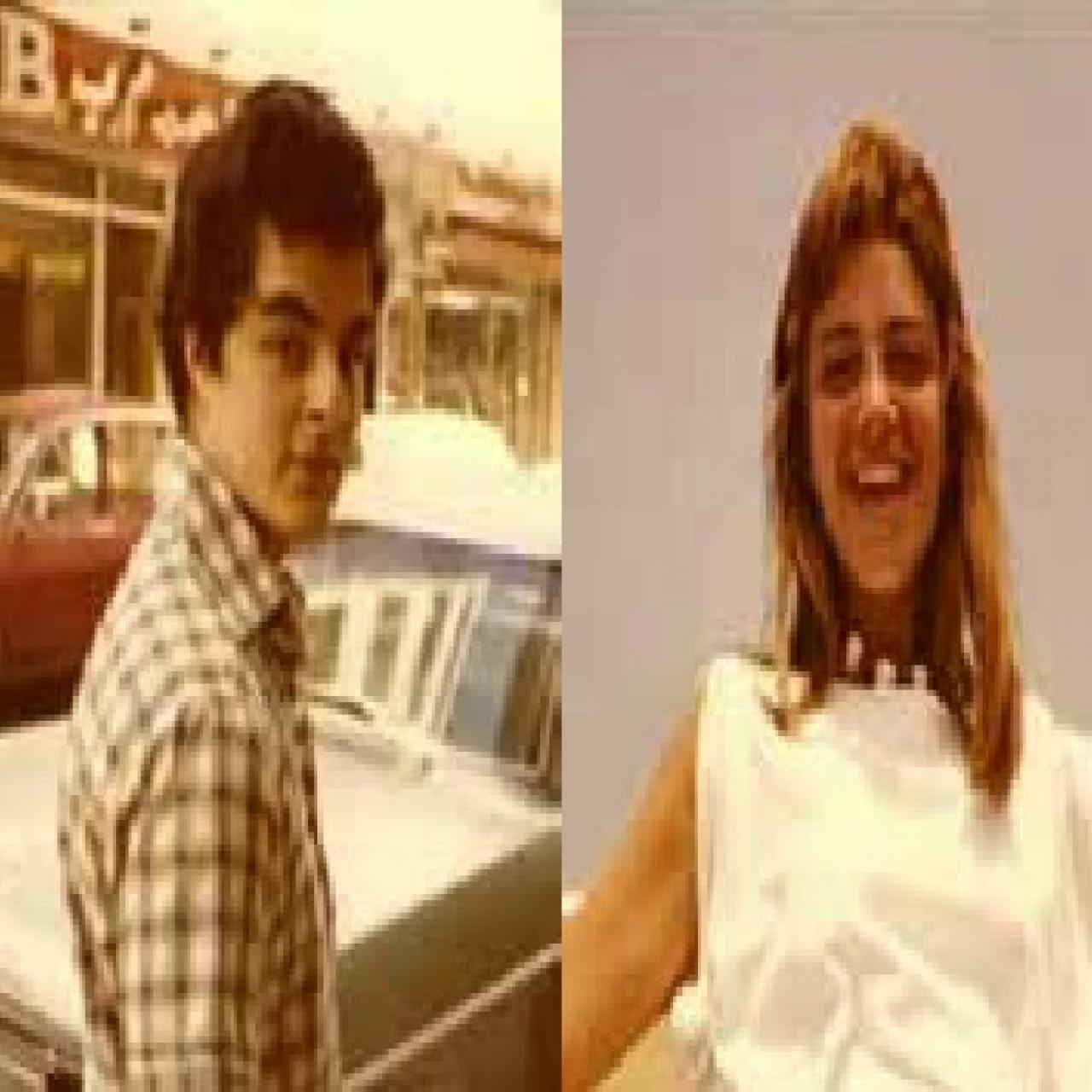
Richard And Marie Christine Salem
My name is Richard. In 1985, I was 22 years old and was working in the family business after graduating in architecture; my sister Marie-Christine was 19 years old and was getting ready to start her first year at university. We were two young adults, raised in a loving home, surfing between our studies, work, sports and friends. After my father died from sickness in 1982, my mother Odette was determined to maintain the same positive and loving spirit at home. She started sewing again; she was a very talented seamstress and often, she would wear very elegant dresses that she would make. She made sure she filled the void that my father’s absence created.
On September 17th 1985, at 3pm her life and mission changed forever; from providing for us to searching for us. That day she got extremely worried that we were late. We were returning from Hamra with our uncle Georges, while our mother was expecting us for lunch. Unfortunately, we never made it.
Our mother waited, struggled, and hoped for 24 years until 2009 when she was killed by a speeding car on her way to the sit-in tent of the disappeared.
My name is Richard Salem. My sister’s name is Marie-Christine. Do not let the story of our family end here.
Maher Qassir
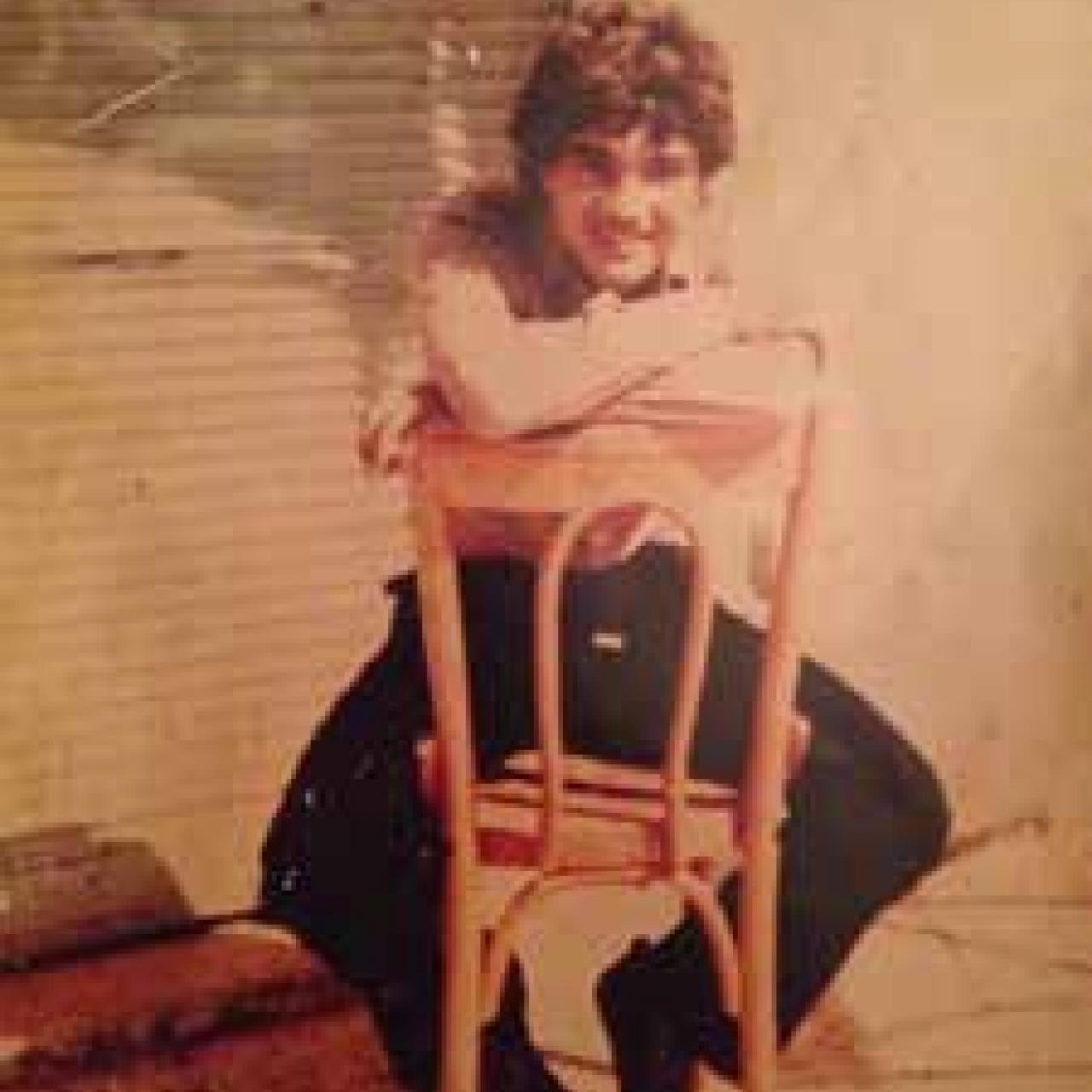
Maher Qassir
My name is Maher. I was the eldest son in a family of three boys and two girls. I shared a special bond with my dear mother. She always had my back. Even that day when I took the car and crashed it, she luckily managed to sort out the situation with the other driver. I introduced her to Marcel Khalifeh’s songs. I would play them on the guitar for hours. In fact, I was thinking of becoming a professional guitar player - that, or studying business management. These dreams came to an end on the 17th of June 1982, when I never came back home. I was 15 years old.
From that day on, my mother struggled to find me. She could not accept and mourn the loss of her son without knowing what happened, without having a grave to find peace. Nothing had any meaning anymore. She wanted to be close to me, dead or alive. She tried to find some relief by dedicating her art to painting me and thus kept me present in her life. Today each room of her apartment is filled with portraits of me.
But she was still feeling lost, searching for the place where she could be with me. Few years ago, on the day of my disappearance, she went to put a rose at the place where I went missing. The last place I was seen before vanishing has become the only marker, the only thing that has meaning for her and that can lessen her torment. Since then, my mother planted a tree in my memory, and she now visits this place every time she needs to be close to me.
I would like so much for her to find relief. My name is Maher Qassir, my mother is Maryam Saide. Do not let our story end here.
Khaled And Fadi Shhade
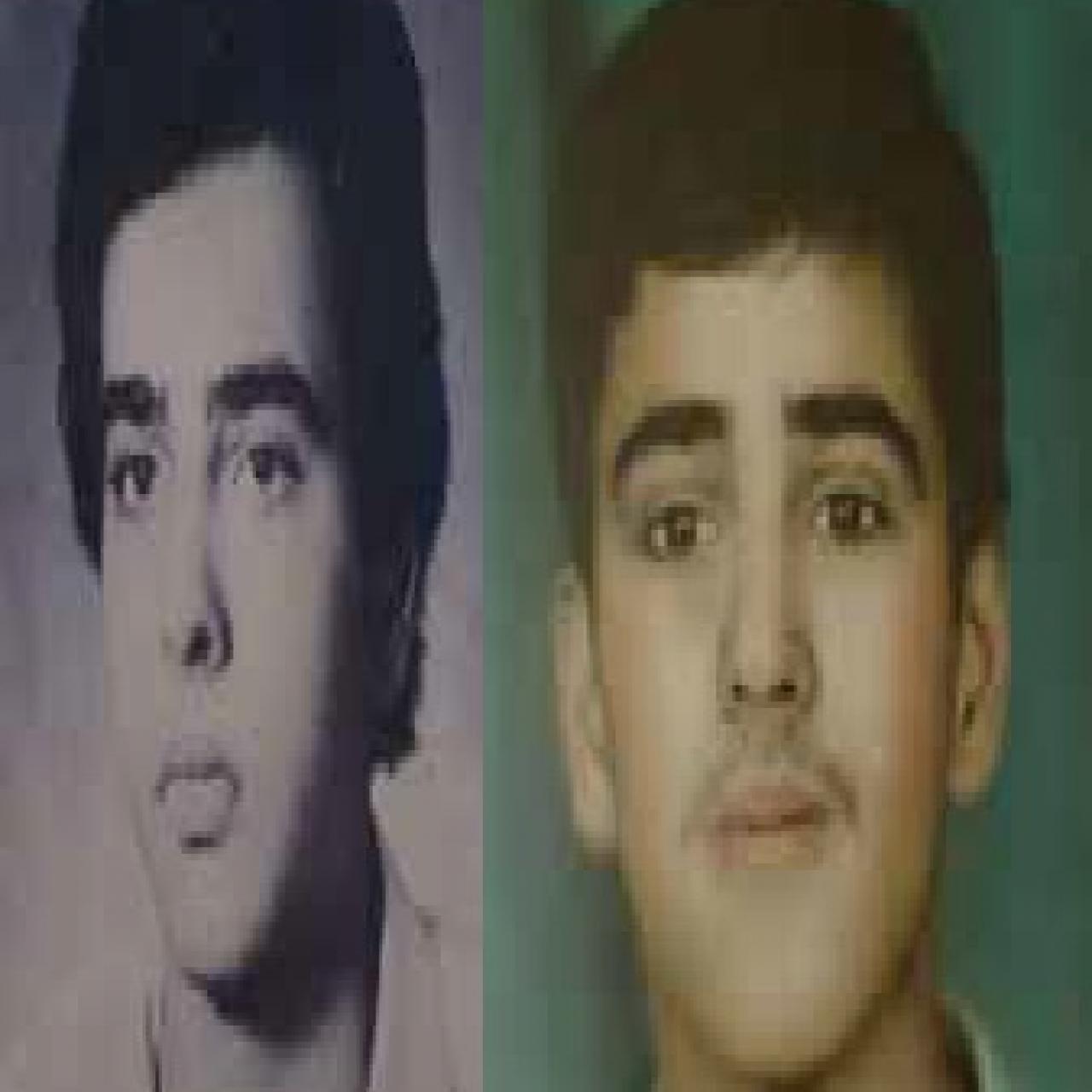
Khaled And Fadi Shhade
My name is Khaled. In 1984, I was 14 years old and was a student at a secondary school in Saida. I was a happy child and used to do pranks on my brother and four sisters. My mother remembers that when my father used to give me money to get a haircut, I would return home at night with my hair untouched and the money spent on ice-cream.
On March 16th 1984, I went out for the day with my brother Fadi. At first, when we did not return, my parents were not concerned immediately. They thought that perhaps, we were having so much fun that we lost track of time. However, after few hours and because of the stories they had heard about people being kidnapped in this wartime, they began to worry.
A few days passed before they asked someone they knew to help them find us. This person asked my father for $12,000 and promised him that in return we would be home before the dark. Full of hope, our father paid the money. Our mother was so happy. She spent all of her day preparing our favorite meals, and invited our family and neighbors to the house so they could all welcome us back. But hours passed and we did not return home. At midnight everyone went back to their houses. Only my parents stayed, heartbroken.
My name is Khaled Shhade. My brother’s name is Fadi. Do not let our story end here.
Jihad Eid
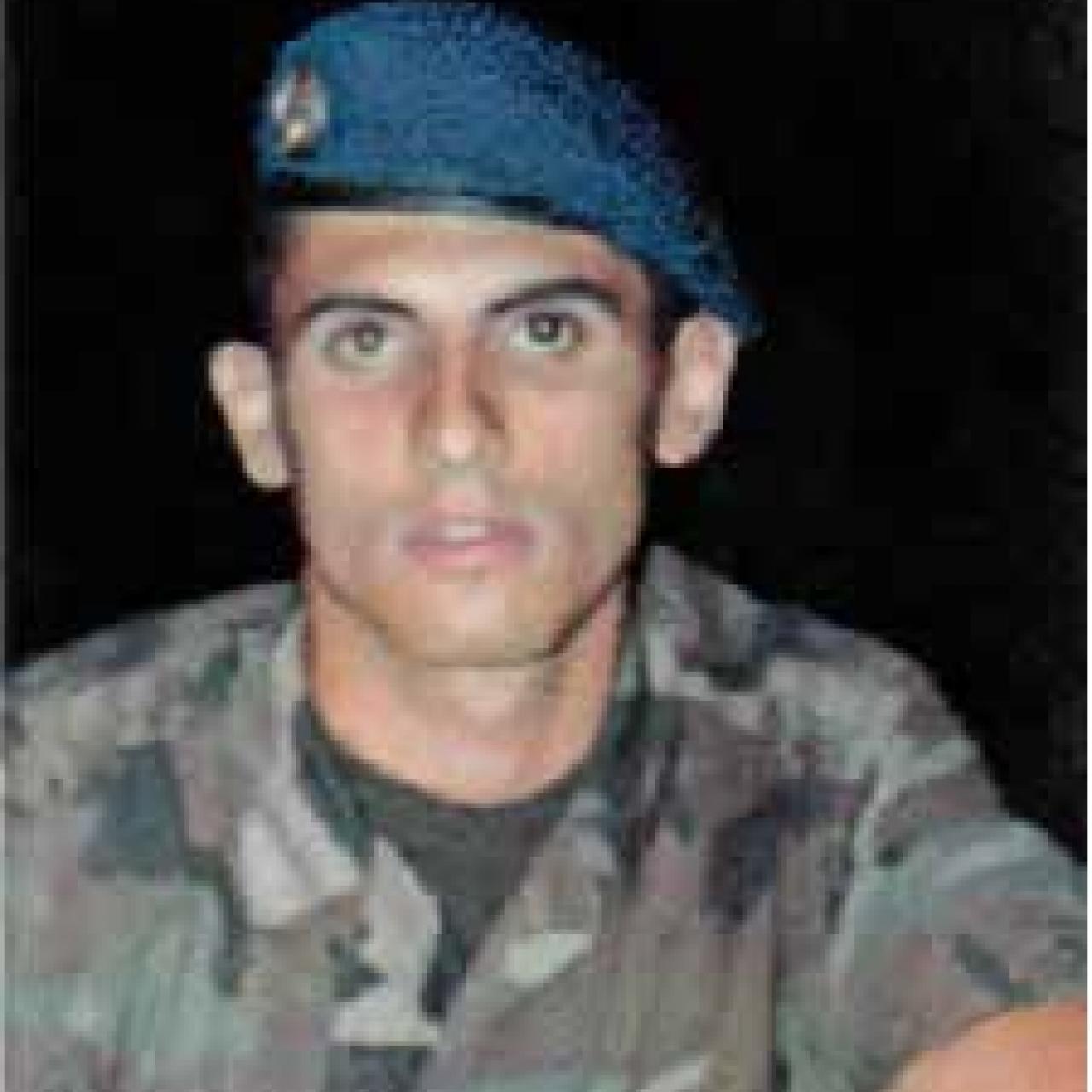
Jihad Eid
My name is Jihad. Ever since I was a little boy, I wanted to follow in the footsteps of my grandfather and join the Lebanese army. I pursued my childhood dream, and at the age of 20, while I was studying for my degree in computer studies at the Lebanese University, I became a soldier. Becoming a soldier was not exactly what I thought it would be. I was not aware of the cost I would have to pay in order to serve my country.
In the year 1990 during the month of October, I was stationed with other soldiers near Saint Therese Hospital in Hadath, only 5 minutes away from my parents’ house. As the Syrian troops managed to enter our neighborhood, they started shooting at us. My foot got wounded, while my friend Claude was fatally injured. The Syrian soldiers then took me to the detention center of Beau Rivage. After being detained there for 18 days, I was sent to Anjar and finally to Syria. My parents found out about my whereabouts through a fellow detainee who had been released.
My mother spent all her savings on travel expenses to Syria. She also had to pay officers to get information about where I was detained. One year after my disappearance, she managed to find me in a Syrian prison. As she reached the prison she saw 7 blindfolded, barefoot and chained together prisoners. The face, ears and necks of these prisoners were bloody... and one of them looked like me. My mother wanted to scream, she wanted to ask which chained soldier was her son, but she was physically and emotionally incapable of saying or doing anything. She fainted. These horrible images still haunt her till this day.
Ever since that day she hasn’t stopped asking for help. She became the leader of the committee of the families of the detainees in Syria and participated in the sit ins in the tent of the families of the missing. My mother was hoping she would influence the public opinion and the authorities through showing how helpless and affected the families were. Today she feels exhausted as a result of the inactions of some and the disappointing promises of others.
My name is Jihad Eid, my mother Sonia still celebrates my birthday every year. Do not let our story end here
Hanna Makhlouf
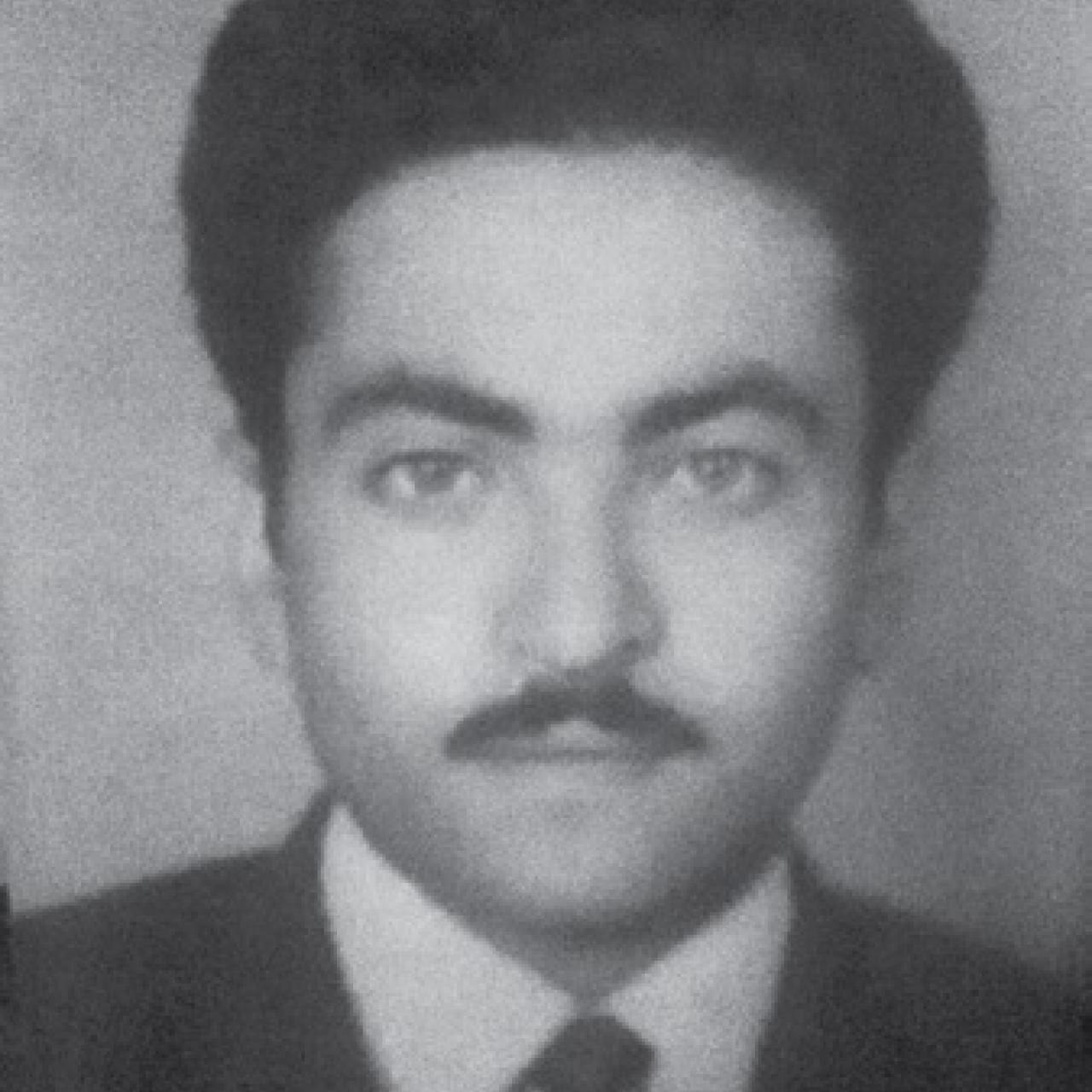
Hanna Makhlouf
My name is Hanna. I went missing 37 years ago. On that day I was going from my area of residence in Dbayeh to my village in Bkaakefra, to join my wife and 6 children who were spending their last days of summer there. While crossing the village of Amioun, I was stopped at a checkpoint by militia men. After being interrogated, they asked me to step out of my car, a “Simca”, that I had just recently bought; and told me to keep walking and not to come back again.
As I reached Bkaakefra, the story of what I had encountered at the checkpoint started spreading around the village. The residents of my village gathered at my father’s house, who was the mayor of the village at the time. After lengthy discussions, we decided to contact some people that my father knew from Amioun and head to the checkpoint with them in an attempt to negotiate my car back. We could have never imagined that this would cause the disappearance of both my father and I.
A while after our disappearance, a man who was detained with me and my father went to visit my family. He explained to my wife that my father was begging the people torturing us not to hit me as I had a family to take care of. He was asking them to torture him instead. According to this man, my father had died shortly after that. My family did not know if I had the same fate or if I was taken to a detention center in Syria.
“Your father disappeared, I don’t know if he’s ever coming back”. How could anyone explain this to small children? My son Georges, who was 7 at the time, remembers that in our village he was named “the son of the disappeared”. He did not quite understand the meaning of the word “disappeared”. But he noticed that this new nickname led the people around him to treat him more gently and attentively. He had concluded that the word “disappeared” was a personality trait that indicates an achievement done by his father and that it was the reason why people were treating him with much respect. The reality will be very painful when he grows up and asks: “Where is my father?”
My name is Hanna Makhlouf, my father’s name is Wadih. Do not let our story end here.
Hadi Karam
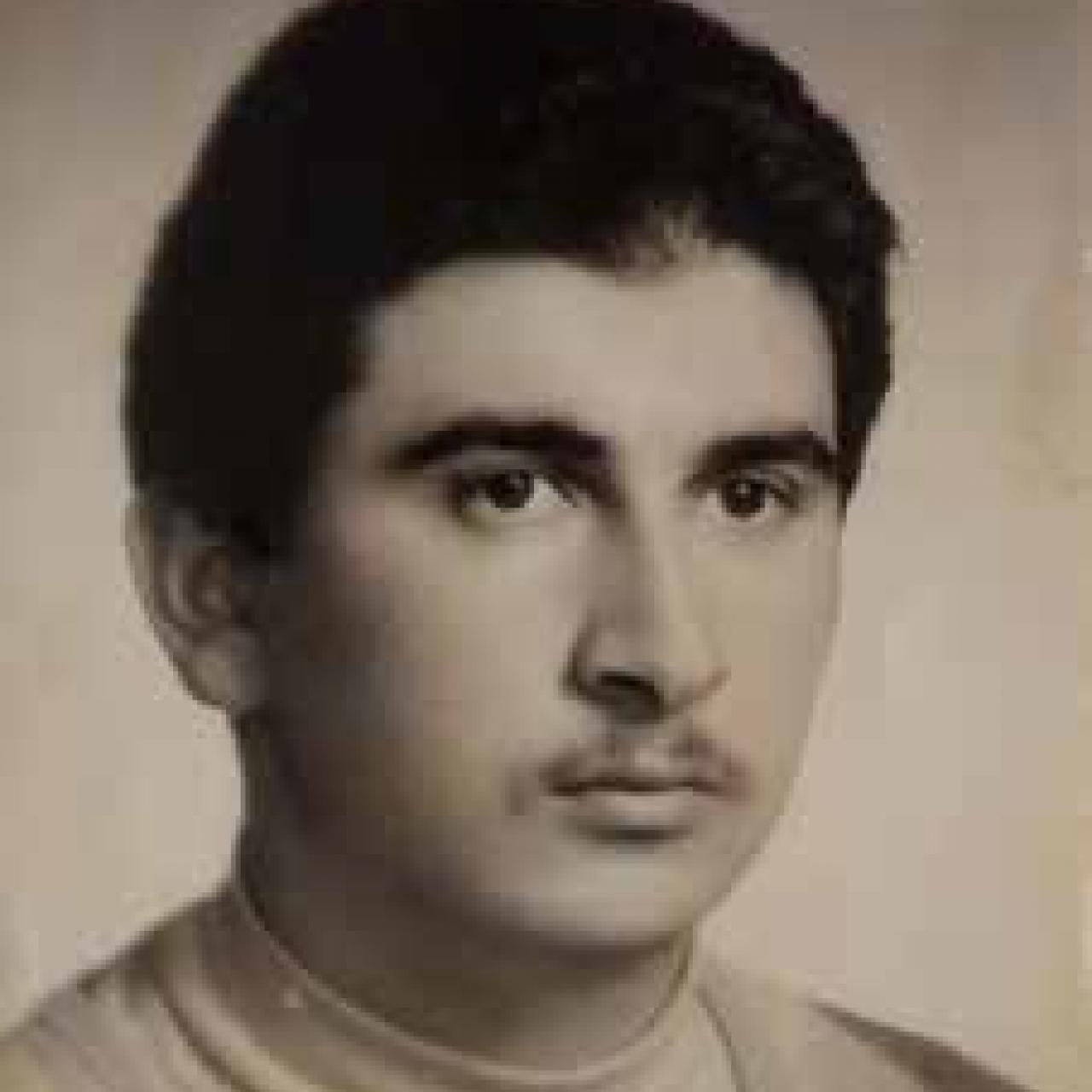
Hadi Karam
My name is Hadi. I was a 28-year-old man, loved and spoiled by my three sisters who focused their attention on their only brother. I worked with my father in our family-owned printing house in Jbeil. In 1989, after 14 years of war, I had had enough. I wanted to leave Lebanon to settle in Toulouse, France. But I had to put that dream on hold, as my father could not imagine letting me go.
On June 14th 1990, a man came to my work place and asked if I intended on selling my car. I found this rather strange as I had noticed that a car had been following me for a few days now. Later on that day, I left work to go to a wedding in Douma.
Before leaving, I called a florist to prepare a bouquet so I could take it with me. But, I never made it there to pick it up. My friends were alarmed when they did not see me at the wedding, but the thought that I had disappeared never crossed their minds.
Like thousands of other families, my parents were deeply affected by my disappearance. My father may have regretted not letting me move to France. He died shortly after I disappeared. My sister Hilda continued to wait for me. Even when she had the opportunity to leave Lebanon to go and work abroad, she decided to stay home in case I returned. Today she remembers fondly the times I would play outside with my nieces and nephews, bringing them back home filthy from head to toe. She wishes her children could remember me... She wishes to know what happened to me so she can explain it to them.
My name is Hadi Karam. Do not let my story end here.
Fatima Al Ali
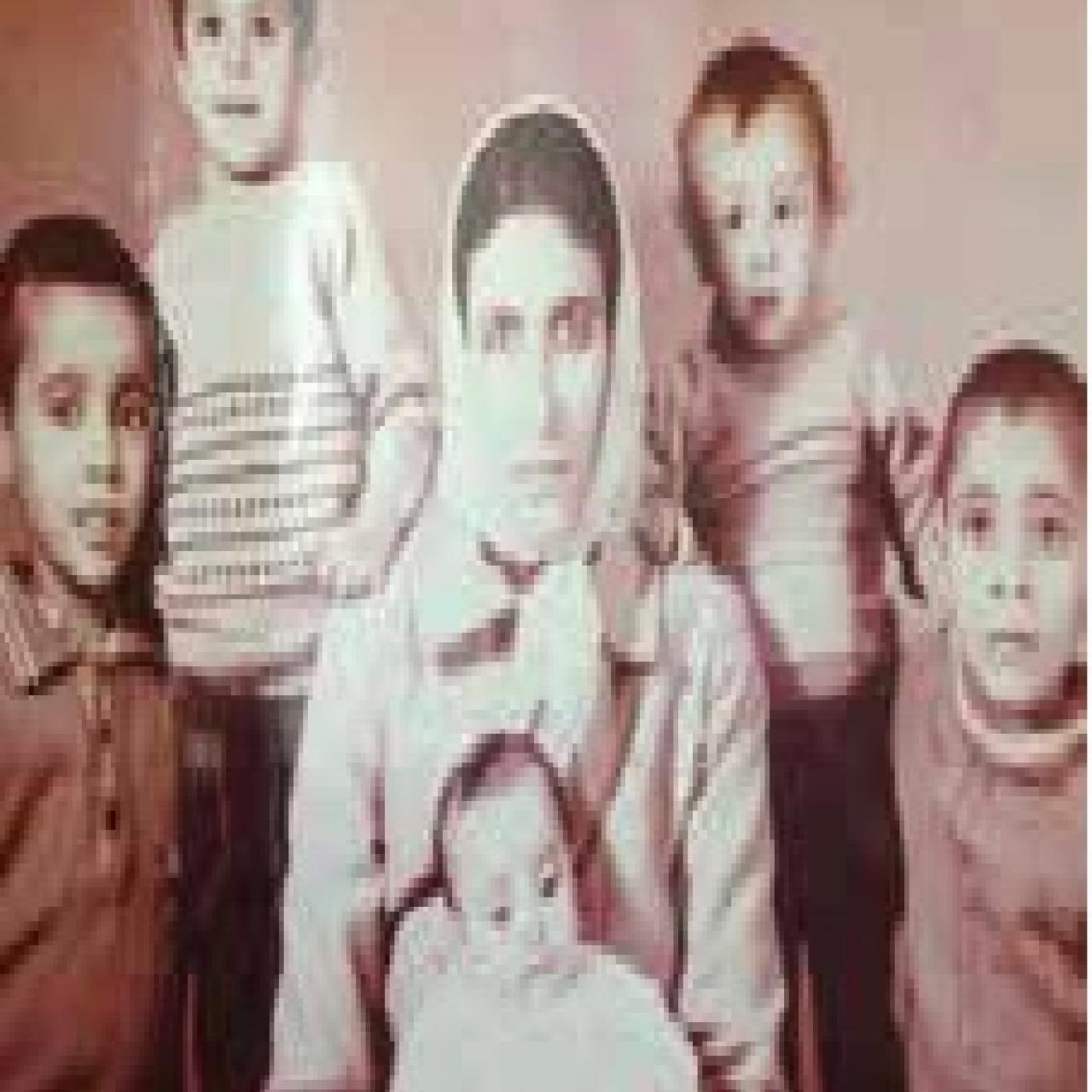
Fatima Al Ali
My name is Fatima and I am the proud mother of four children. Even though the conditions of the war impacted our lives, I worked hard to shoulder the responsibility and burden to give my children a happy childhood and a good education.
Adnan, my 8-year-old son, was the eldest of my children. He did very well in school and loved when people came over to visit; he would always greet them with excitement. My son Ismat was only 6 years old, but he seemed so wise for his age. Fadia was my only daughter, she was 4 years old. Fadia was sweet and loved to play with her toys. My youngest boy Fadi, was only 2 years old. He was a calm boy and was never difficult.
Even though I tried to do my best to protect them, my children were robbed of their childhood and their future. We lived in the Tel Zaatar camp, and in 1976, after days of being under siege, we thought we could escape safely... We were never to be seen again.
My children were so young, and should have had more time.
My husband was in Germany at the time. He lost us all at once. My mother refused to live her life comfortably afterwards; she slept on the floor as she felt so much sorrow and guilt. My sister continued to look for me tirelessly. She often came close to losing hope, but never did and continued to fight for answers about what happened to my children and I.
My name is Fatima Al Ali. My children are Adnan, Ismat, Fadia and Fadi. Do not let our story end here.
Ali Fares
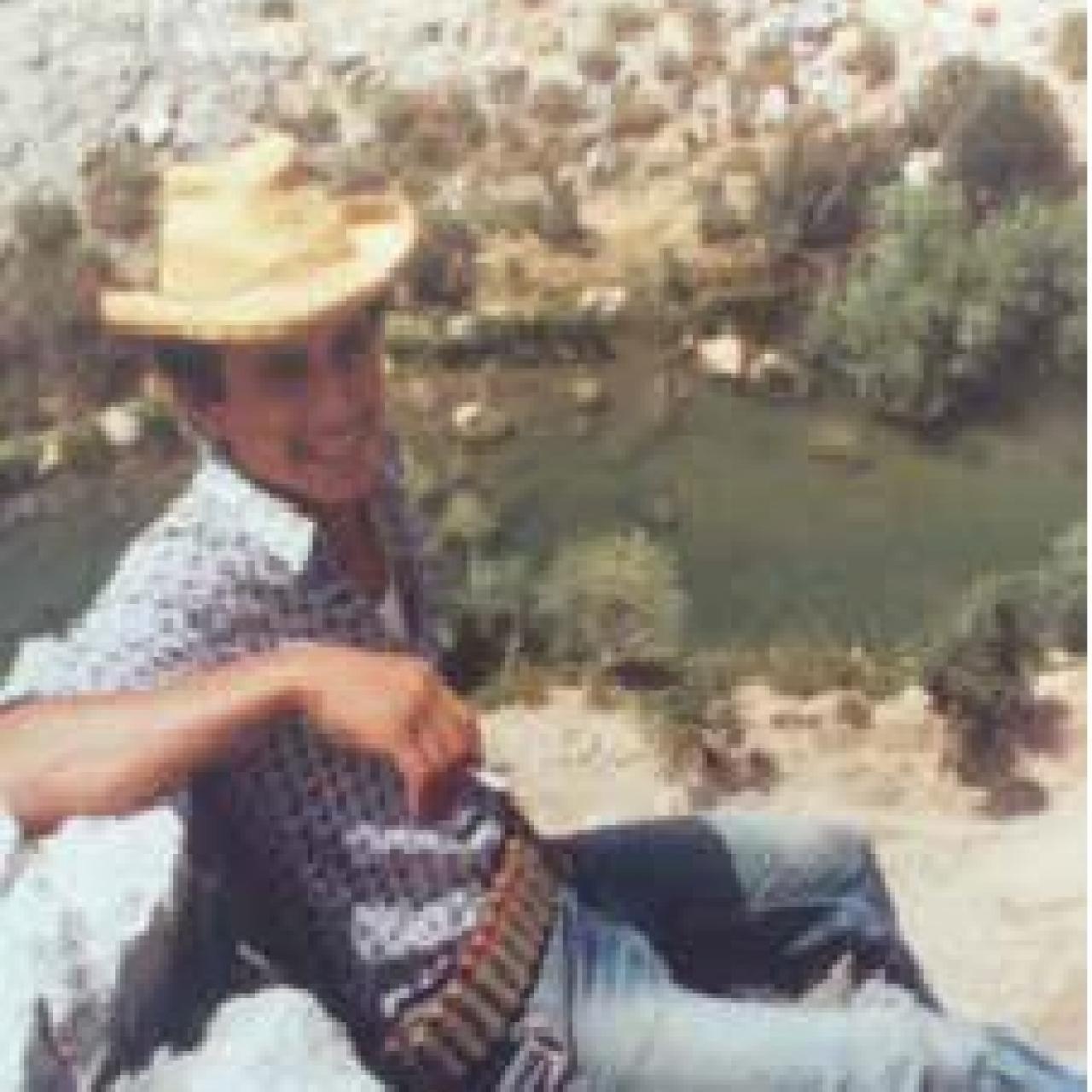
Ali Fares
My name is Ali. I come from the village of Shhour, nearby Tyr. It is a region I am really fond of. The afternoons by the rivers with my family, the fishing trips with my friends... Nothing in this world would have ever made me want to leave this place. But I had fallen in love with a girl that happened to live in Beirut. I had met her once on a weekend, while she was visiting my village to check up on her grandparents. Whenever I had the chance, I would go spend my weekend in Beirut and stay at my friend Hassan’s place so I could see her. Hassan was my childhood friend. He had left both our school and our village to go live and work in Beirut.
On August 22nd 1983, as the two of us were headed to meet the girl I wanted to be my wife, we got kidnapped. My sister Mariam – whom I had promised to join in picking almonds from my father’s tree the next day – never saw me again.
My relatives knocked on every possible door. The only answer they would get was this horrid one: “They count the detainees in prison like they count their sheep and if they ever notice that one of them is missing, they go mad. So perhaps, if you have someone replace him there, you could set him free.” To them we were nothing but numbers, change, chess pawns on their way to a prospective “victory”.
My name is Ali Fares, my friend’s name is Hassan Zein. Do not let our stories end here.
Ahmad Khanji
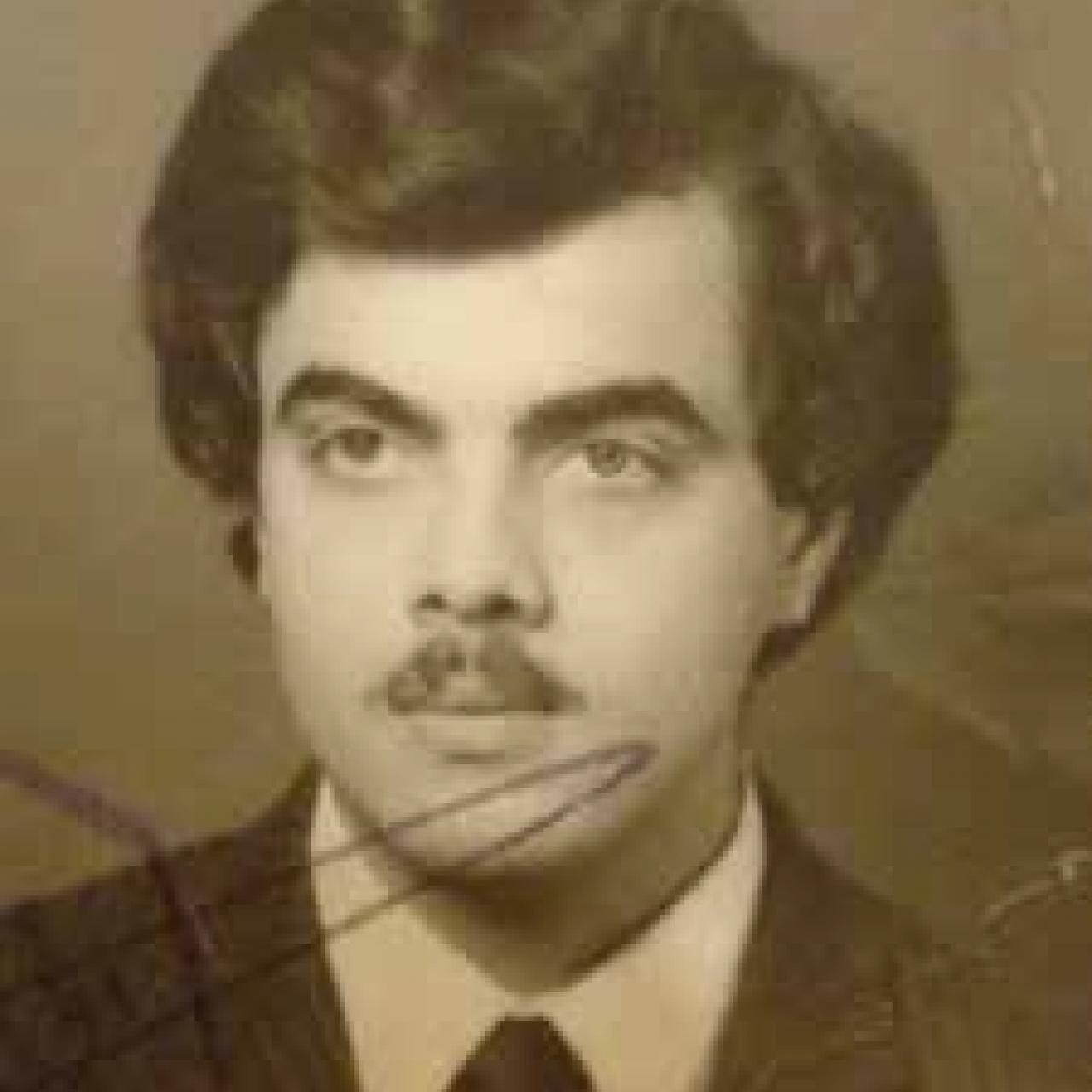
Ahmad Khanji
My name is Ahmad. I was strongly passionate about electronics. I could spend hours playing around with tools and performing experiments all around the house. Once, I even made our house door open at the touch of a button. It seems very ordinary nowadays but back then it was very innovative.
At that time, I was working at Al Amin Roastery to earn my living. This provided me with the means to support my mother and my two brothers and sister; with whom I was living then in Mina, Tripoli. We were all very close to each other; as our bond had tightened after my father passed away.
On September 1985, the security situation in Tripoli deteriorated. I left Tripoli for safety reasons and went to Akkar to stay with one of my sisters. My older siblings were already living in Akkar so I wanted my mother and my younger sister to come along as I knew they would be safer there. Determined to get them to Akkar, I left for the Mina with two of my friends. On our way to Tripoli, we were stopped at the Mallouleh checkpoint.
A few days later, my relatives found our abandoned car by that checkpoint. The soldiers positioned there told them that we had been taken in for questioning and that we would be released soon. I was 24 years old.
Since that day, my sister often dreams of me. In her dreams I come back home in ripped clothes, all filthy and emaciated. I ask her why she had not looked for me and why she had kept me waiting for so long.
My name is Ahmed Khanji, my sister is Jathiba. She has been blaming herself for years for not having found me. Do not let my story end here.
Abed El Raouf Ahmad Khalil
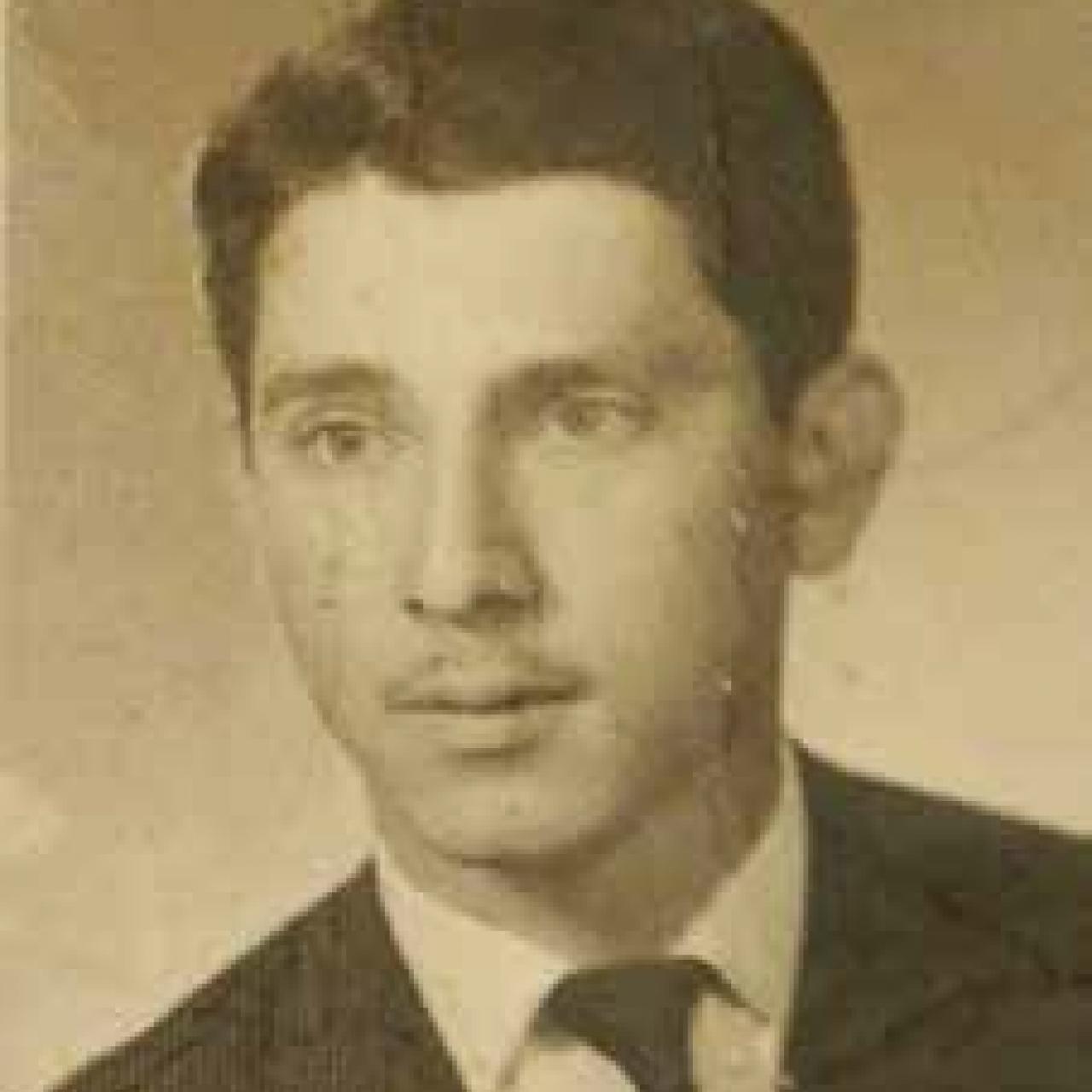
Abed El Raouf Ahmad Khalil
My name is Abed El Raouf. I was a 36-yearold active and ambitious person. After studying medicine at the University of Cairo in Egypt, I came back to Lebanon to work as a lab technician in the region of Barbir. At the end of every day, I would go hang out with some friends at Raouche’s Meriland cafe, which has now been replaced by the Movenpick Hotel. I also used to go very often to Tripoli where I had a car dealership business. After each trip I would always pass by my mother’s house bringing her some of her favorite desserts.
Each and every one of my relatives remembers that I was truly passionate about Lebanon. I had the chance to travel regularly but was always eager to return home. I never missed an opportunity to travel around Lebanon with my brother Talal who used to accompany me in all my adventures. One of them - that was very dear to my heart - was a schooling project to improve youth education in my country. My plan was to create a professional college where the students would be better prepared to start a job. I had a lot of ambition for Lebanon and a lot of energy to invest.
However, it all stopped on that fateful September day in 1982, when I went missing while returning to Tripoli. My parents aged tormented by the uncertainty of my fate. They both died without knowing what happened to me.
My Name is Abed El Raouf Ahmad Khalil, I have always loved my country, but it seemed to have given up on me. Do not let my story end here.
Henriette Haddad
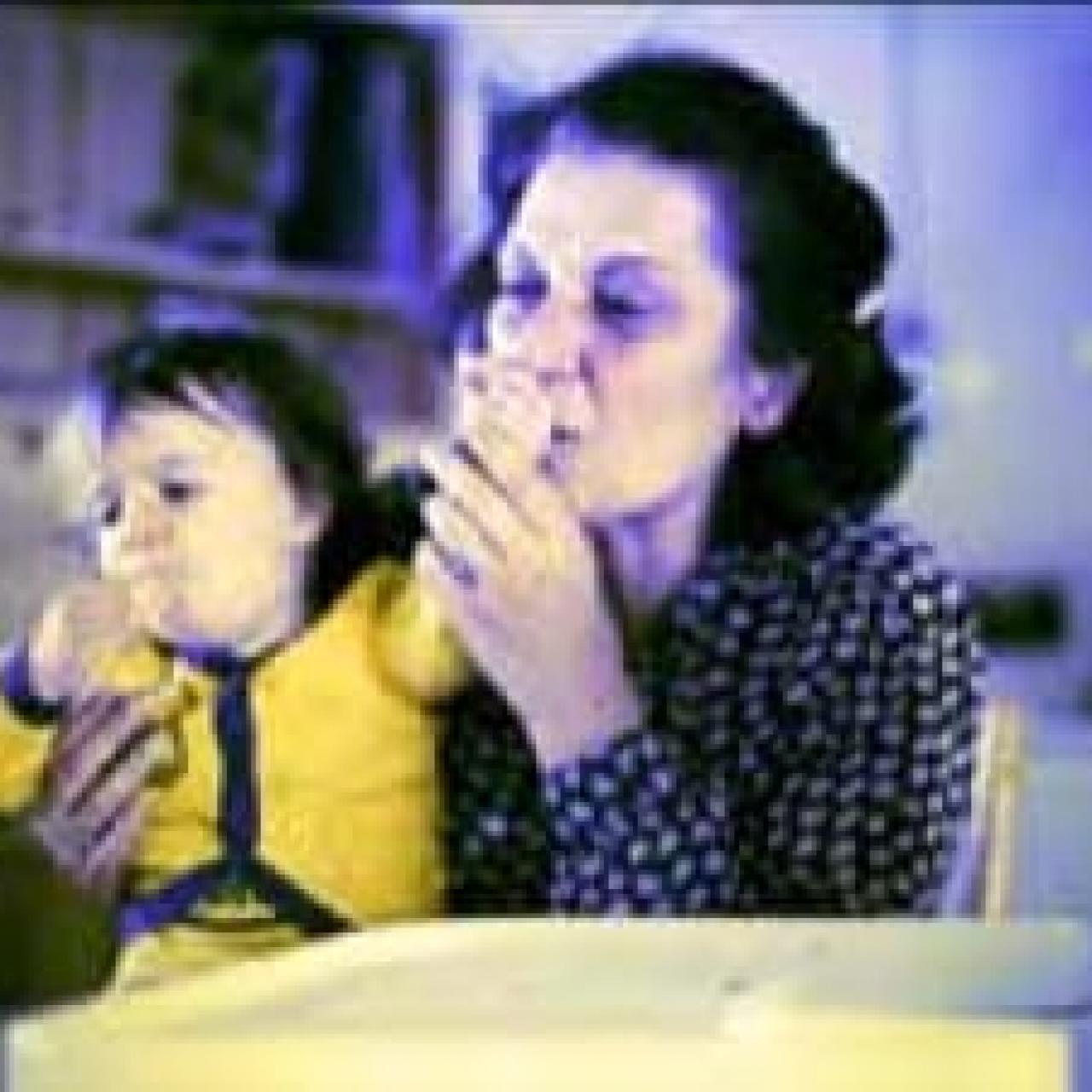
Henriette Haddad
My name is Henriette.
This photo captures one of my last moments of happiness.
As a 58-old old woman, I had ten grandchildren. Looking after them brought me great joy. I loved watching them grow, playing with them and listening to them bursting into laughter. I wouldn’t trade my time with them for the world.
I had also remained a very active and independent woman. I had the habit of waking up early in the morning to have enough time to fulfill all the tasks I had set out for that day.
Before the war, I owned a clothing shop which I loved looking after.
However, like many other Lebanese, the war had driven us to move and leave everything behind. My husband and I ended up moving to North America to join our three children, who were already living there at the time.
However every time the situation allowed, we would travel back to Lebanon for a visit to see our relatives that we had left behind and enjoy the things we had missed while we were away.
I came back to Lebanon in September 1985. It was to be my final visit . I was kidnapped on September 26th, while I was driving through the demarcation line by the National Museum. Although we thought that we had driven our family away from the violence, the war still managed to catch up with us.
Years after my disappearance, a man came forward and told my relatives that he was my inmate in the detention cellar in a center located in the Basta area. He had told them that I would incessantly repeat the name of my four children.
Thirty years later, my family’s wound has not healed and the memory of my disappearance is still very painful.
However the happy memories and photos we shared as a family also remain.
My name is Henriette Haddad. Do not let my story end here.
Nicolas Haidar
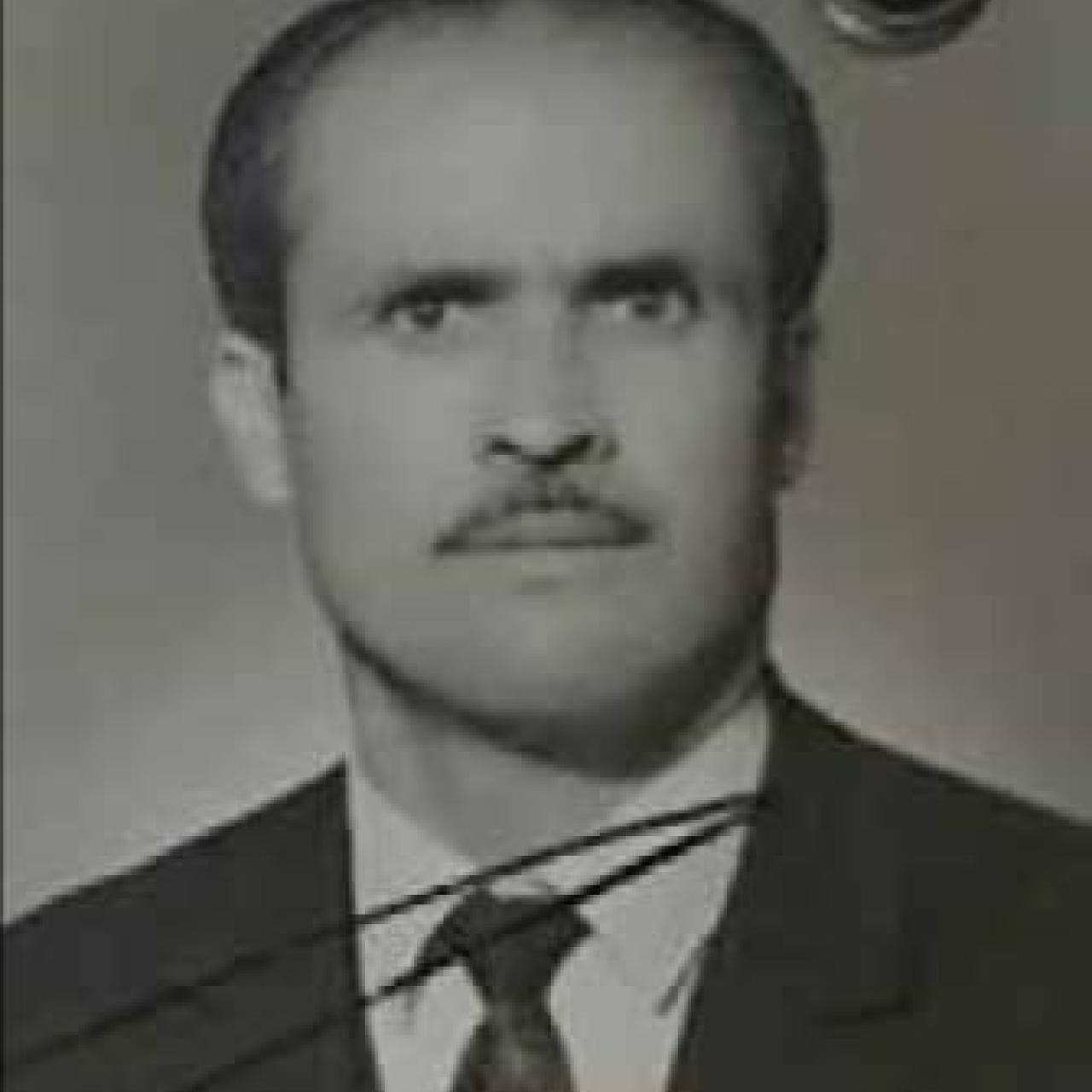
Nicolas Haidar
My name is Nicolas. I was the head of the post office at Fih, in the Koura district.
I complied with my responsibilities very meticulously, carefully maintaining good relations with both my employees and the villagers. My house was always full of visitors who appreciated my generosity and hospitality.
At 57 years old, I had only few years left before retiring. I was already picturing spending my days caring for my olive trees and playing cards with my friends.
But my dreams were suddenly shattered on January 11th 1979.
It was raining heavily on that winter day. A car parked outside my house and two men stepped out of it. They knocked on my door telling me about a mail they would like to send to their relative. My wife Asma invited them in and offered to make them some coffee.
Once seated in our living room, the two men mentioned they had someone waiting for them in the car. So I went outside to invite him in but as soon as I reached the car, the two men forced me inside and drove off.
My name is Nicolas Haidar. Do not let my story end here.
Nazih Agha

Nazih Agha
My name is Nazih, but everyone called me Riad. I was married, and had children aged between 2 and 10 years old.
We were living in Saida where I was working as a fisherman. Every morning, I would get up by dawn and head to the sea. I would then sell the fresh fish I caught to my customers in and around the city.
My eldest son Farouk had the habit of keeping me company. But recently I have been turning down his offers to accompany me, because the security situation was deteriorating. I had recently been stopped by armed men, who had released me shortly after the intervention of one of my customers, a doctor from the region.
After that incident, I had become more unsettled. I could not however reduce my commuting, as selling my fish was my only income. It provided a good living for my family.
But one day, as I was going to Abra, I was stopped at a checkpoint. My customers who knew me well and lived close by, contacted my wife Jamileh to inform her that I was being detained by militia men. However, due to the Israeli curfew at the time, my wife was unable to go to where I was being held.
The next morning, as she reached the checkpoint, she recognized my motorbike.
However, the armed men denied ever seeing me, although they were frying fish which was evidently the ones I had caught. My wife then approached the doctor who had helped my release the previous time I was detained. But this time around, neither him nor anyone else was able to do anything about it.
22 years after my disappearance, unidentified human remains were found in a well near Saida. Eight skulls along with other human parts were uncovered. My wife and children were unable to know whether I was among these victims. The uncertainty of my fate remains till this day. Today I am neither dead nor alive. This ambiguity can be read on our children’s wedding invitations: Farouk, Nisrine, Mohammad, Fadi and Ferdos had wanted to have my name appear next to that of their mother, without the reference of “deceased”.
My name is Nazih Mohammad Agha (Riad). Do not let my story end here.
Nizar Al Kirtawi
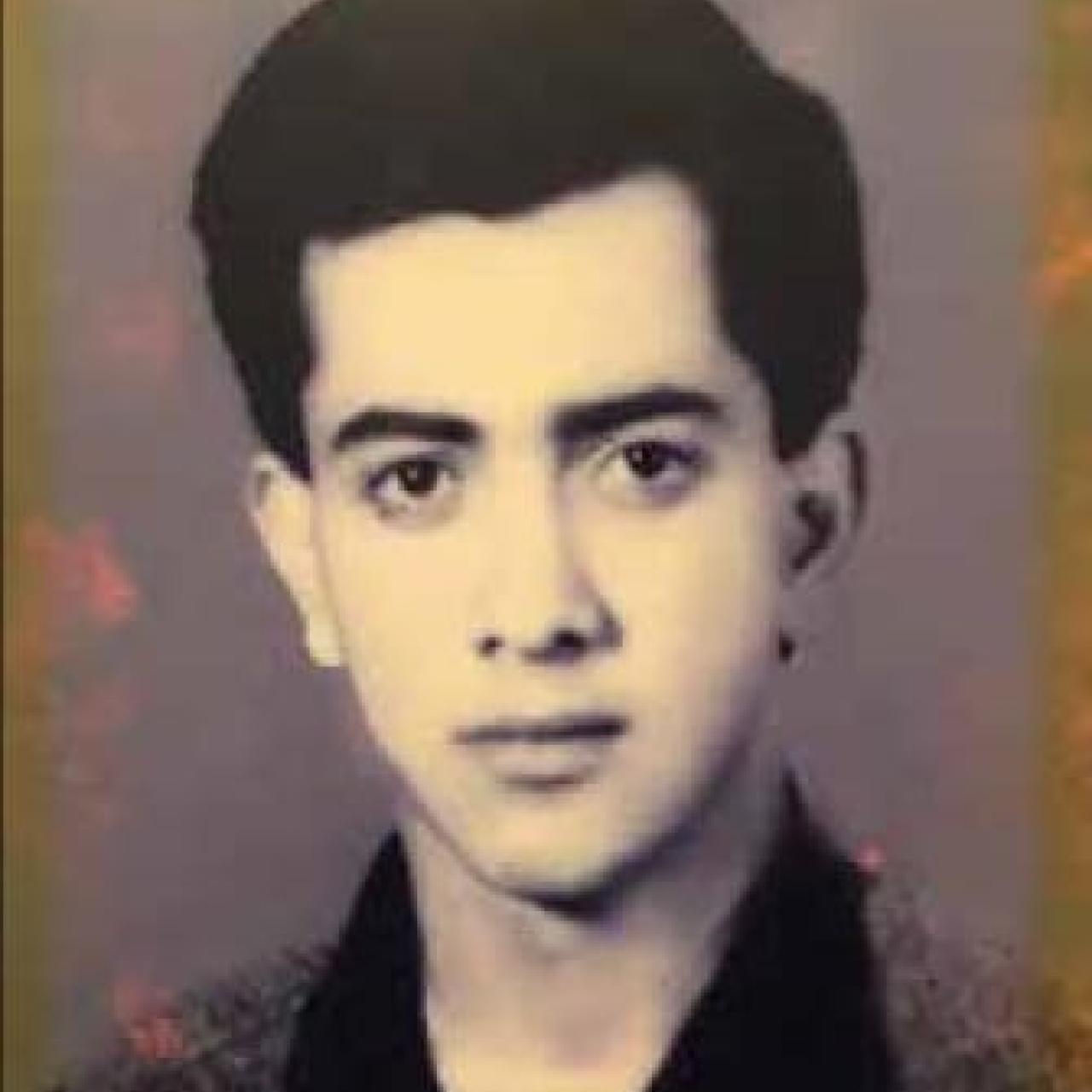
Nizar Al Kirtawi
My name is Nizar. I am from the Zahriyeh, in Tripoli.
I was the eldest in a family of seven children. My father passed away when we were still little. I had to quit school while I was still in 5th grade to work and help my mother sustain our family. My uncle had landed me a job at a friend of his, who used to fix cars. I grasped this opportunity, and shortly after my training was complete I managed to open my own small garage nearby the Ghannouma Al Zahriye school.
I had to work hard but was still able to create a balance between work and friends. My friends and I used to gather at night to listen to music and dance to the beats of our two legendary bands: ABBA and the Bee Gees. Alongside my friends, there was also a girl called Hanadi, with whom I was in love. She was younger than me, and her parents were not very satisfied with our relationship, but I was willing to wait for as long as it takes. I was 19 years old, and I believed I still had a long life ahead of me.
On January 1st 1983, I went with a friend of mine to Koura to get the spare piece that his car needed. On our way there, we clashed with armed men who were positioned at the Bahsas-Koura checkpoint. We did not go much further than this. Many witnesses have said that the two of us were taken and detained in a prison in Amioun. My mother had gone to that prison numerous times but was always banned from entering. Nonetheless, she kept going to that place over and over again, until the day they told her that I was no longer there.
However, 19 months after I got kidnapped, someone who had worked with my sister’s husband, visited her and reignited her hope of seeing me again. He had told her that we were cell mates in the Fih, Koura prison, which was also known as “the cave”. He, on the other hand, had been arrested along with his colleagues from their workplace but was released later on.
Yet when my mother went to that prison to look for me, she found nothing but emptiness.
My name is Nizar Al Kirtawi. My story does not end here.
Mostafa Safa
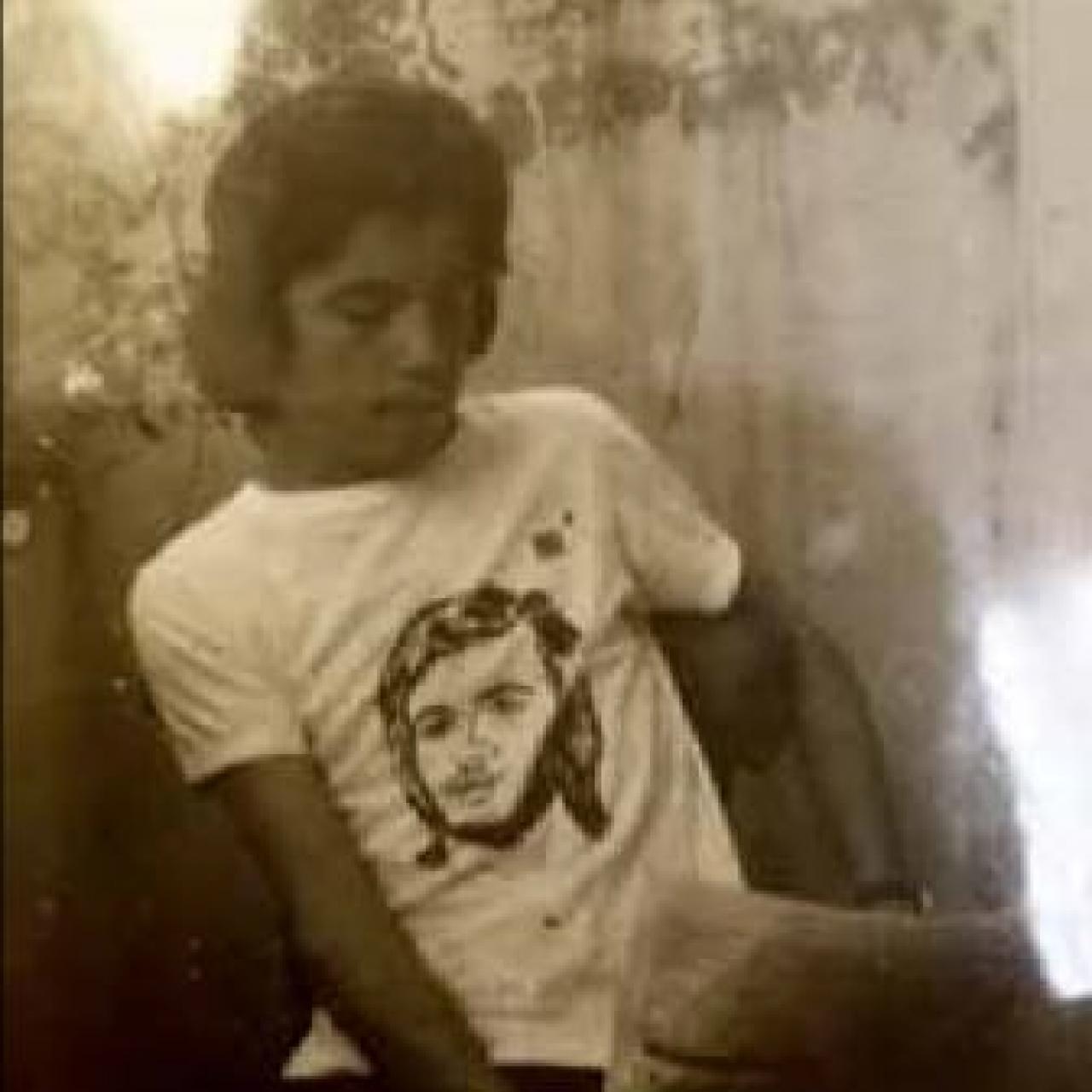
Mostafa Safa
My name is Mostafa.
I was 14 years old and was studying at Ghobeiry school. Speaking of which, I wasn’t a very good student. My family would have liked it if I was as successful in school as I was at making my friends laugh. But I was much more interested in drawing. I had a sketchbook that I used to fill up with caricatures and representations of political figures from that time. From the president, the United Nations Secretary General, to the main leaders at the time. I would crookedly enjoy their inconsistencies and their weaknesses.
I also had a passion for the cinema. Whenever I would have enough savings, I would head straight to the Rivoli - there in Down Town - to watch a movie. I would often go in the company of either my best friend, Hisham or my eldest sister. I recall once watching Hitchcock’s “The Birds” with her.
One evening, in September 1975, as I was heading to my uncle’s place in Ras El Nabeh to sleep over, I ran into my friend Hisham, who suggested we go catch a movie. It did not take much persuasion for me to change my plans.
As we were on the verge of entering the movie theater of the Rivoli, gun shots broke out. The two of us rushed out trying to find shelter. As soon as he had reached safety, Hisham looked back and noticed that I was no longer behind him. He spent the night searching for me, refusing to face the reality and the prospect of having to break the news to my mother. However, early on the next morning, looking all shaken and disoriented, he stepped into my house in Chiah.
My mother and my two sisters were having breakfast in the backyard when the floor crumbled beneath their feet. Yet shortly after this shock, they gathered whatever strength they had left, and started visiting morgues.
But, I was nowhere to be found. There were not even any remains.
My name is Mostafa Safa. My story does not end here.
Mohammad Al Awwayik
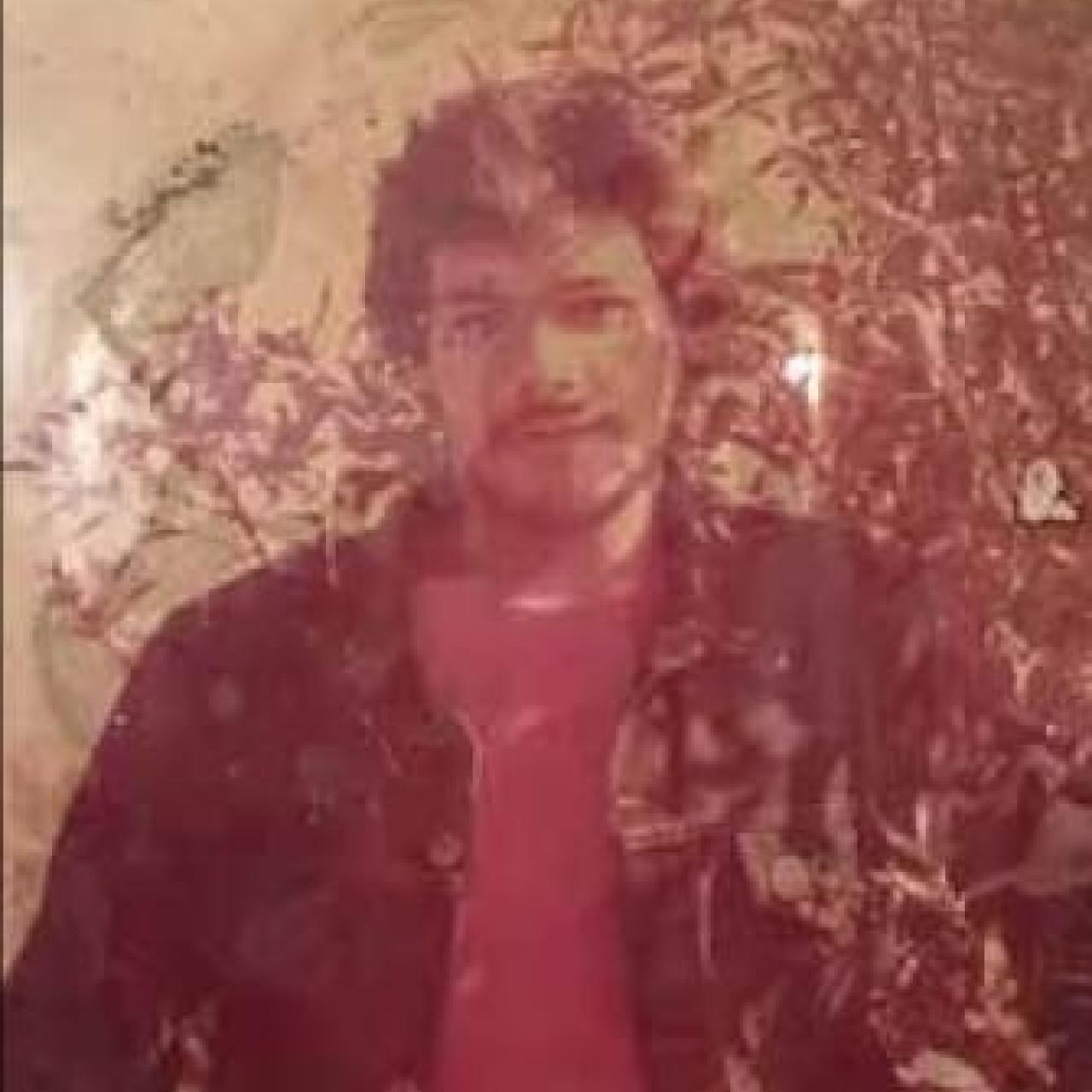
Mohammad Al Awwayik
My name is Mohammad. Working in the land was what I used to love most. As a child, I would suffer in school. I could not stand sitting behind a desk the entire day, as my legs would itch. I had but one desire, which was to join my dad in picking cucumbers. At 12 years old, my father had finally agreed that I can be free from my school desk and work in the field by his side.
A few years later, as I became older, I tried joining the army. But within a year I went back home convinced that I was not meant to carry a weapon. I was however very patriotic but my impulsive character and my love for freedom did not suit the good soldier’s uniform. I preferred playing the role of referee between my brothers and sisters, and helping them if they ever needed my protection.
One day in 1985, my mother collapsed. My cousin Mahmoud was arrested in Tripoli, so I rushed without thinking to go and find him. Mahmoud was only 13 years old. Despite my efforts, there was little I could do for him. Neither him nor I returned home on that day.
My name is Mohammad Al Awwayik, my cousin is Mahmoud Al Awwayik. Do not let our story end here.
Mohieddine Hachicho
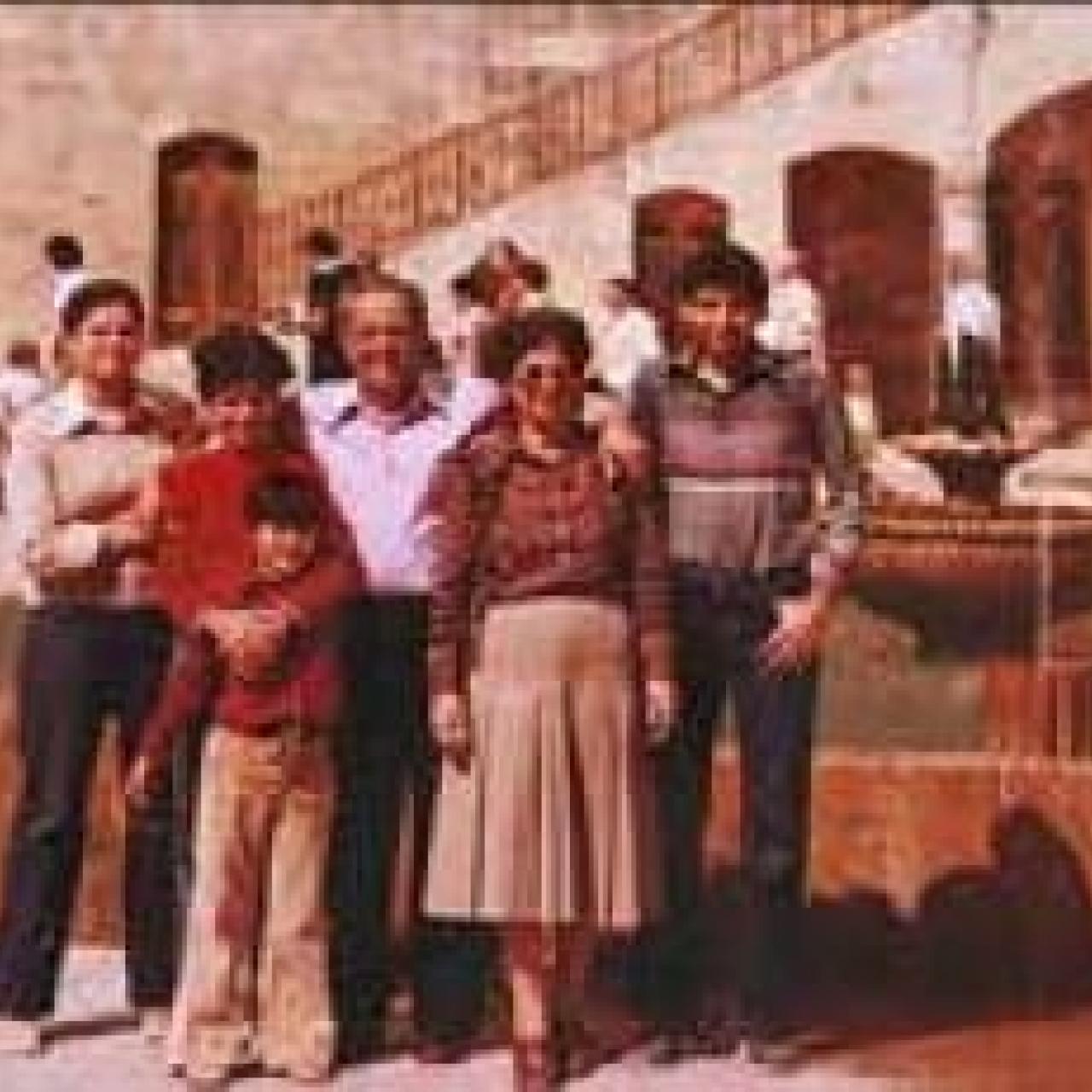
Mohieddine Hachicho
My name is Mohieddine. On September 15th 1982, as I was sitting at home reading a book, armed men stormed into my house and demanded I go with them for investigation.
My wife and children were terrified. Yet, - in fear of worsening the situation – they did not protest. But my fate had already been sealed. I was never to return home again. Oussama (18 years old), Huda (15 years old), Mona (11 years old) and Mazen (9 years old) spent years waiting for me to come back. However, the ongoing disappointment took a toll on them so they moved away from this country. Away from this place that had forced them to live nearby their father’s kidnappers, kidnappers from whom no account was requested.
My wife Najat never stopped fighting. Having recognized the faces of three of my abductors, she filed a complaint. Armed with only her courage and her determination, she confronted them wanting to hear their confessions, and finally discover the truth behind my fate.
But even her right to know was taken away from her. After twenty eight years of trials, adjourned hearings and political pressure, all charges against the three defendants were dropped.
Despite the bitterness of the situation, Najat did not give up, she is still standing on her own two feet, side to side with other families of missing. She also spends a part of her time abroad, beside our children who are now raising families of their own.
On September 15th 2012, thirty years – day by day – after I got kidnapped, my granddaughter Jana saw the light. Her birth was both a great joy and a weird coincidence in our family. It happened as if to reiterate that despite the pressures exercised to conceal the truth, her grandfather will never be forgotten.
My name is Mohieddine Hachicho. Do not let my story end here.
Mubarak Chalouhy
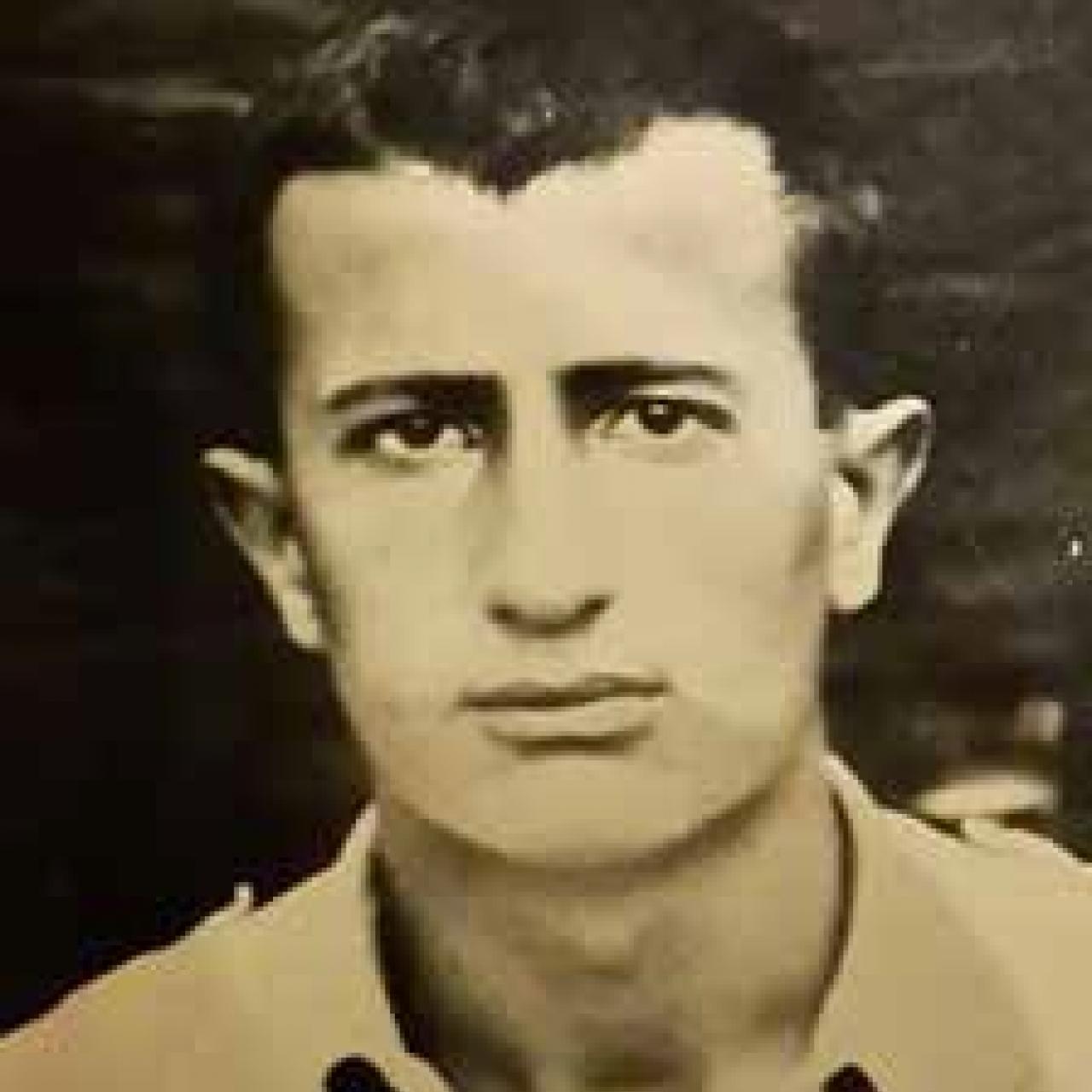
Mubarak Chalouhy
My name is Mubarak.
At 36 years old, I was a 1st lieutenant in the General Security. In the meantime, I had returned to school to study law, hoping that these newly acquired skills would grant me a promotion. I often had to take the road from Mejdel (in Batroun) to the Lebanese University in Jal el Dib, to be able to attend my classes.
One day, as I was getting ready to go back home, my friend Najat asked me to drop off Ibtissam our classmate, who happened to live along the way.
At night, given that we had not returned, both our families went on a search to find us. They found my car, a blue Toyota, abandoned not far from Ras el Nach with no one inside it. We disappeared leaving our families in disbelief, deprived from any information to hold on to.
Furthermore, a couple of days following our disappearance, our common friend Najat was called in for questioning in Kfarhazeen. There, the Syrian soldiers did not question her, but instead investigated whether she had written a text in which she openly mocked the Syrians. She had indeed written a letter to her sister in which she joked about the Syrians of Homs, jokes that were commonly made in the region. And this letter was in Ibtissam’s possession the day we disappeared. Najat had requested she delivers it to her sister as they happened to be from the same village.
The main reason behind the interrogation of Najat was to intimidate her and make her feel guilty for our disappearance. Najat was released a few hours later, but her questions about the fate of her two friends remained unanswered.
My name is Mubarak Chalouhy. I disappeared with Ibtissam. Do not let our story end here.
Kamal Hassoun
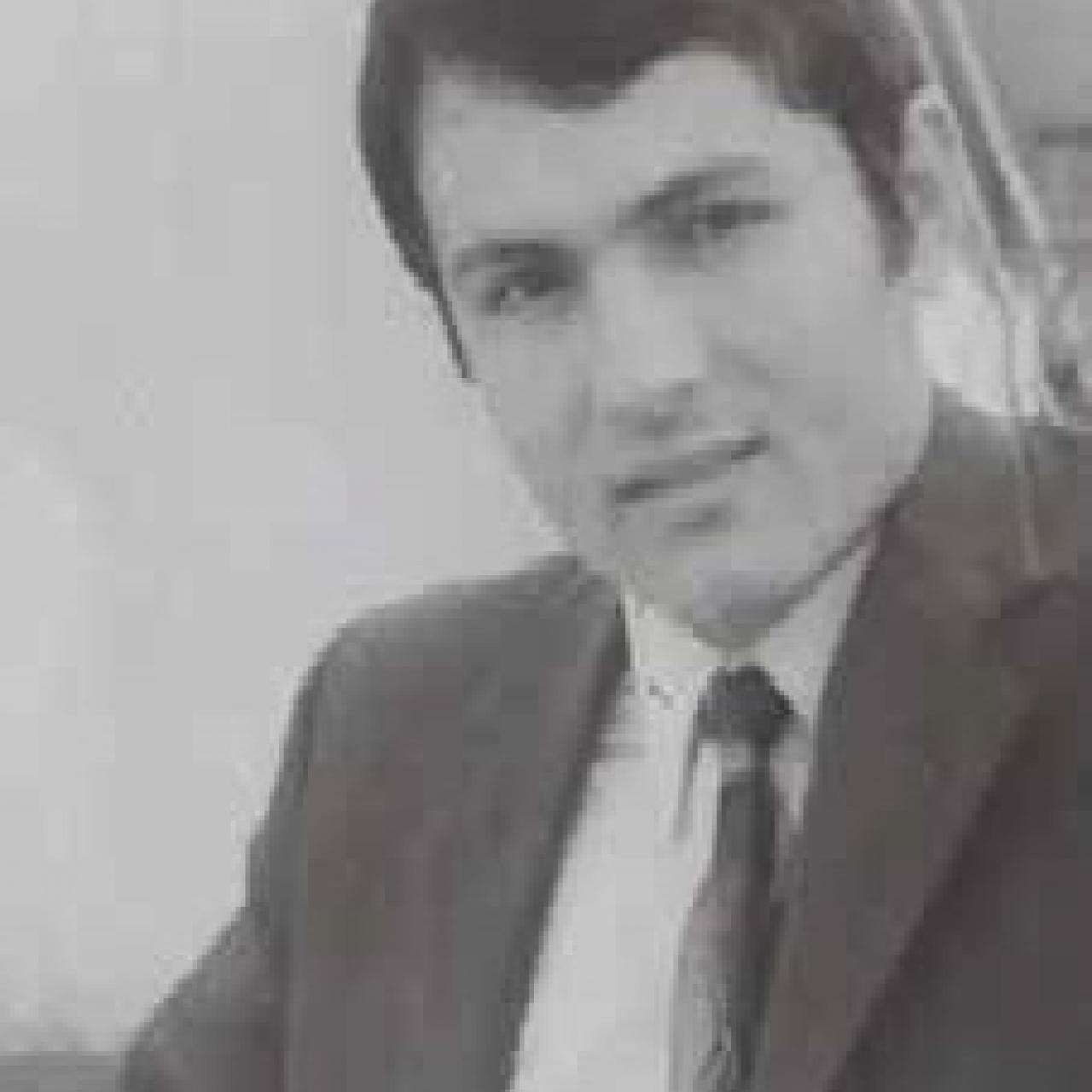
Kamal Hassoun
My name is Kamal. As a 28-year-old man, I was in charge of the maintenance of the machines at the “Singer” company. I was a hard-working man. Providing my four children with a good education and a good living were things I held dear to my heart. Upon every holiday, I used to get them elegant clothes to dress up for the occasion. I adored seeing their smiling faces while receiving these gifts.
But my life and that of my children was about to take a sudden turn in January 1976.
One day, after work, I went with one of my daughters to a supermarket near our house at Sabtieh to do some grocery shopping. Once back home, I noticed that I had forgotten to get the tea. So I returned to the shop, but this time unaccompanied.
This was the last time my children ever saw me, Nada was 5 years, Sonia 4 years, Faten 1 year and Fadi who was only 15 days old at the time.
After my disappearance, my family had to move out of the house we were living in, because – without my income – my wife was unable to pay the rent. My wife was bound to find and work many jobs, in order for her to sustain our family.
When the situation in Lebanon worsened, she decided to immigrate in an effort to keep our children safe. But when she applied for passports, the authorities rejected her application, claiming that for such procedures to happen, the father has to be present. She tried to explain that the father was “missing” and therefore his presence is not possible. But they would not listen. The only solution she was offered, was for her to declare me dead.
In addition to the psychological suffering that is generated by the uncertainty of my fate, were the financial restraints and the rigidity of the administrative and legal systems. It took my wife a great deal of courage to face this situation. All this, while raising four children.
Yet many other wives and mothers have had to face similar difficulties. All fighting for answers about the fate of their husband. They had to provide for their households, and try as much as possible to ensure that their children – despite the situation – live a normal childhood. They are, them also, part of this war’s forgotten victims.
My name is Kamal Hassoun. Do not let my story end here.
Fadeeli & Noori Ibrahim
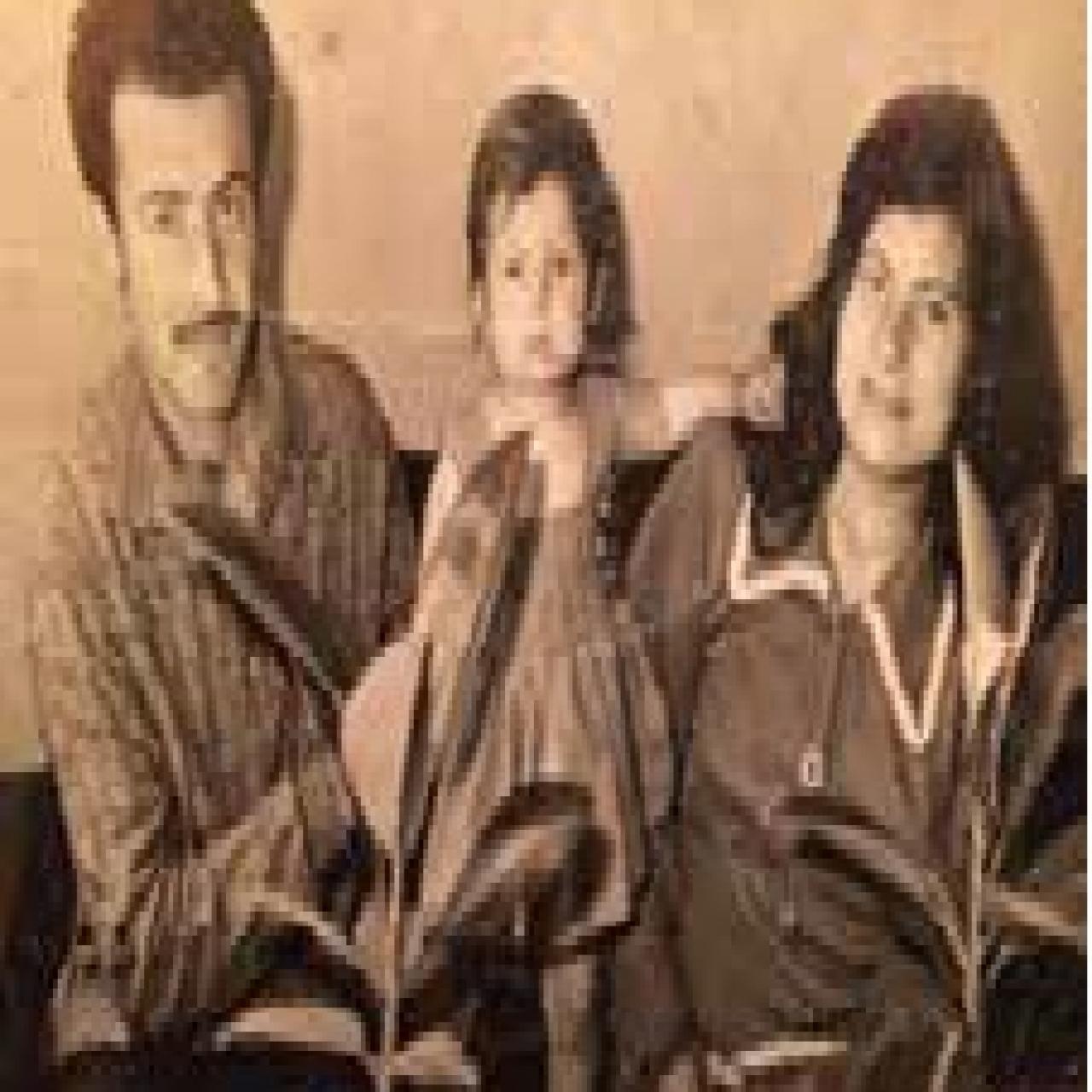
Fadeeli & Noori Ibrahim
This old photo of a little girl surrounded by her parents is much more than a simple picture from the past. It is the only trace left of our history.
In April 1975, the war had just started. We were in our house (in Mansourieh) with our children. Nariman (the little girl in this picture) and Sufian (born one year later). Armed men suddenly stormed in and took me and my husband by force.
Nariman (1-year-old) and Sufian (4 months old baby) were left behind at home with Hanifeh (15 years old) - my husband’s younger sister – who was living with us back then. All three of them had stayed locked inside the house for the next four days, terrified by the thought that these men might return. The neighbors finally realized that a tragedy had taken place and reunited them with their grandparents, who were living in Afrin in Syria.
Forty years later, not a day goes by that my daughter Nariman does not think of us. As she was too young to remember her parents, she delved into all the memories that were brought up by our relatives - who had known us – to write our story and hand it down to her children.
She had told them that their grandmother was a caring mother who was a skilled knitter and crocheter and that their grandfather, on the other hand, was a carpenter, who, despite his serious personality was a very loving father. Although that portrait is incomplete, but it was necessary for Nariman to ensure that the memory of her parents does not vanish and that her children will grow up knowing who their grandparents were .
What is also important for her today, is to find out what happened to her parents after the armed men stepped into their home and took her parents away.
My name is Fadeela Ibrahim and my husband Nouri.
Our story does not end here.
Fadi Habbal
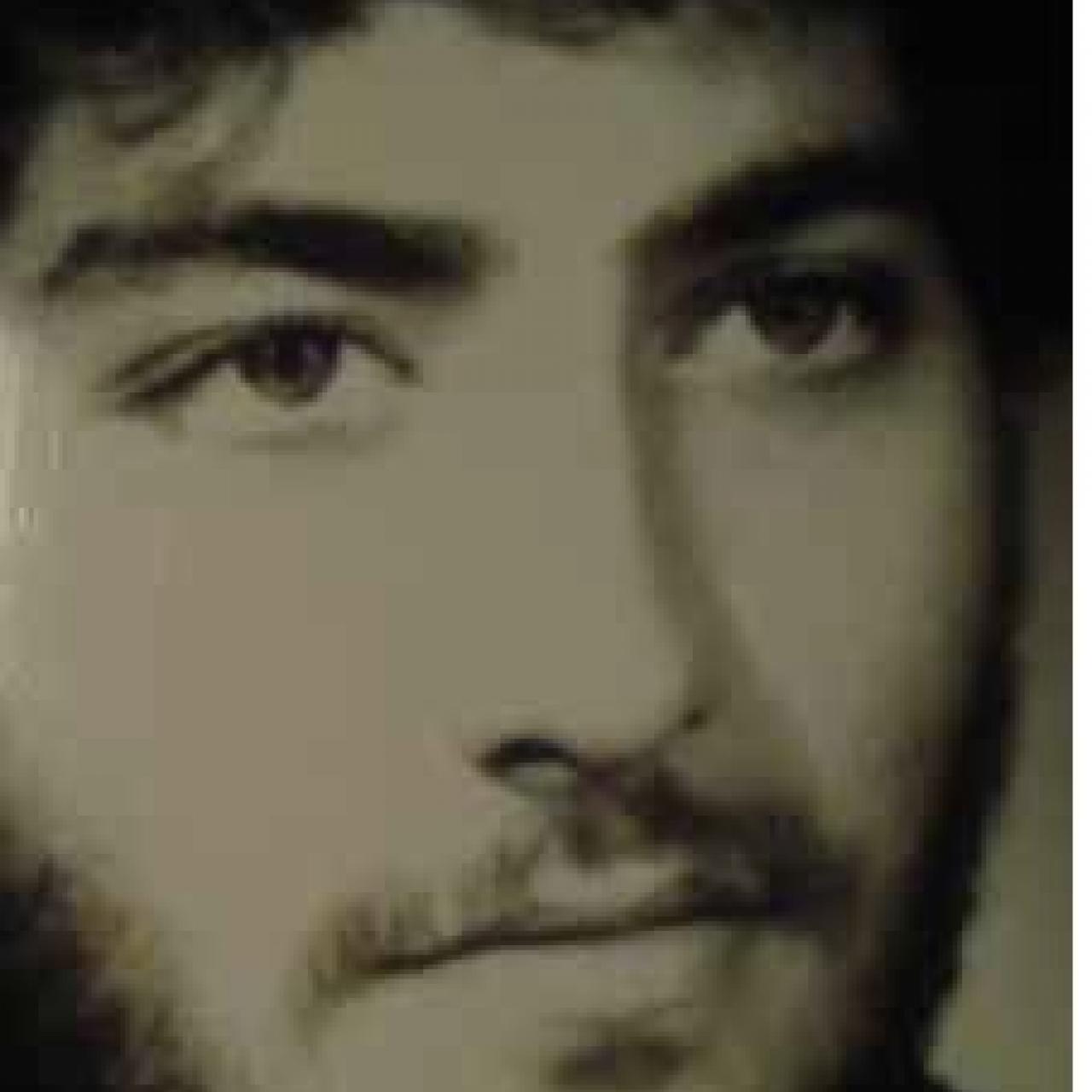
Fadi Habbal
My name is Fadi. In 1983, I was studying at the Aamliyeh Institute in Beirut. I used to go back home to Saida every weekend to check up on my family. Like many of my friends, I was a volunteer in the Red Cross. During this time of war, I was convinced that it was my duty to help others. I believe I inherited this commitment from my mother who was a nurse.
During my last few days at home, I had had a long talk with my sister Zeina. She had asked me about the rescue operations I had participated in recently. I used to bemoan the loss of young people – who were as old as I was – dying because of the war. I could not have imagined that a few days later, I myself would be taken away from my family.
In the following week, my sister and my parents were waiting for me as usual. But I did not come home. Worried, they left Saida and headed to Beirut to ask my friends and classmates if they had any news about me. But they too, had not seen me during the past few days.
During the months following my disappearance, my family desperately searched for news about me, asking the different warring parties at the time. Yet they never got an answer. Until the day when a man showed up at their doorstep to inform them that he had seen me when I was being detained in a prison in Syria.
My family was relieved; I was still alive; they had a glimpse of hope that one day I will be coming back home. However, as time went by, my loved ones’ desperation grew bigger.
In 2005, while visiting the tents set up by the families of the missing in downtown Beirut, people who were released from the Syrian prison recognized my picture.
Once more, my relatives’ hope was reignited. But how can they be sure of what they were told? How can they find answers? How can they go on living with these never ending questions?
My name is Fadi Habbal. Do not let my story end here.
Ali and Abed Hamadi
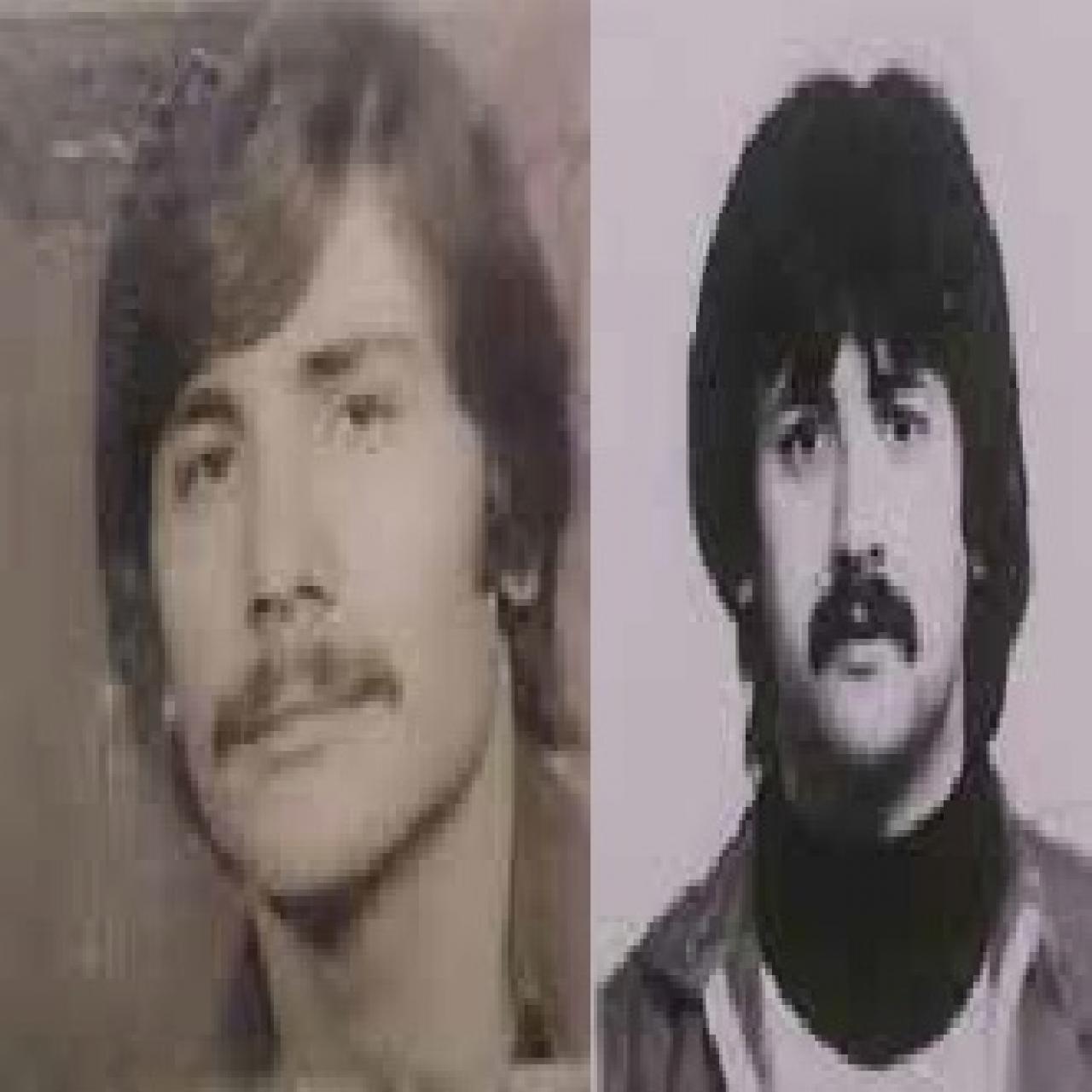
Ali and Abed Hamadi
My name is Abed.
I was 25 years old and had just gotten my degree in Mechanical engineering in the exUSSR where I had studied.
On the day I disappeared, I was sitting in front of the house, drinking my coffee and enjoying the warmth of the autumn sun. Having gotten back to Lebanon just a few days ago, I was questioning my future in Lebanon and the possibility of having to immigrate again for work.
The house was quiet. My family was spending the winter in the Qmatiyeh mountains. Suddenly, armed men erupted in front of my house. They asked me where my brother Ali was. Attempting to win us some time, I asked them about what they needed from him and whom had sent them here. But they felt provoked and decided to take me and my brother.
I noticed there and then, while in shock, that the years of violence and unpunished crimes - from which I was safe being abroad – have made it possible and almost harmless to kidnap people midday without even having the urge to cover their faces. My neighbors would later tell my relatives that before we disappeared, they had seen a car – a red Mazda – wandering around our house.
My family was later told that we were part of the people that got kidnapped and executed to avenge the death of the president that had been recently assassinated.
Today, my family still lives in that house from which we were kidnapped. My mother often stands at the door looking out at the road, wondering had she been present in the house at the time, if she would have been able to stop our kidnapping.
My name is Abed Hamadi, my brother is Ali Hamadi. Do not let our story end here.
Ali Ahmad Mohammad

Ali Ahmad Mohammad
Friday September 12th 1982, was an ordinary day. I was sleeping at home in Bir Hassan, with my wife and children.
Early on that morning, we were awakened by loud noises coming from the street. We heard people screaming into a megaphone, “Give in and you will be safe! We are the Lebanese Army.” We remained at home gathered in silence, until someone knocked heavily on our door. I walked over and opened it. I was met by several armed men – that evidently did not look like Lebanese soldiers – who told us that we had to evacuate our house and go down to the street for them to search it.
Down there, we got separated into 2 groups: the women and children were set on one side, and the men and boys – aged 13 years and above – on the other. We were around 25 men. They instructed us to stand against the wall. I was with three of my sons: Walid (18 years old), Adnan (15 years old) and Mohammad (13 years old) – who were all terrified. As for the women and children, they were moved to the Riyadi stadium. I remember seeing my wife clutching tightly to the hands of my younger children, while looking back at us as she walked away
We were never reunited. That same day, my eldest son Hussein came back home after work to find the house empty. He went out to search for us, yet in his attempt to find us, armed men stepped out of the car and took him.
Were we the victims of an isolated act of revenge or a vast military operation?
I disappeared with my four sons. How many others had the same fate that day?
My name is Ali. My sons are Walid, Adnan, Mohammad and Hussein.
Do not let our story end here.
Issam Faytarouni
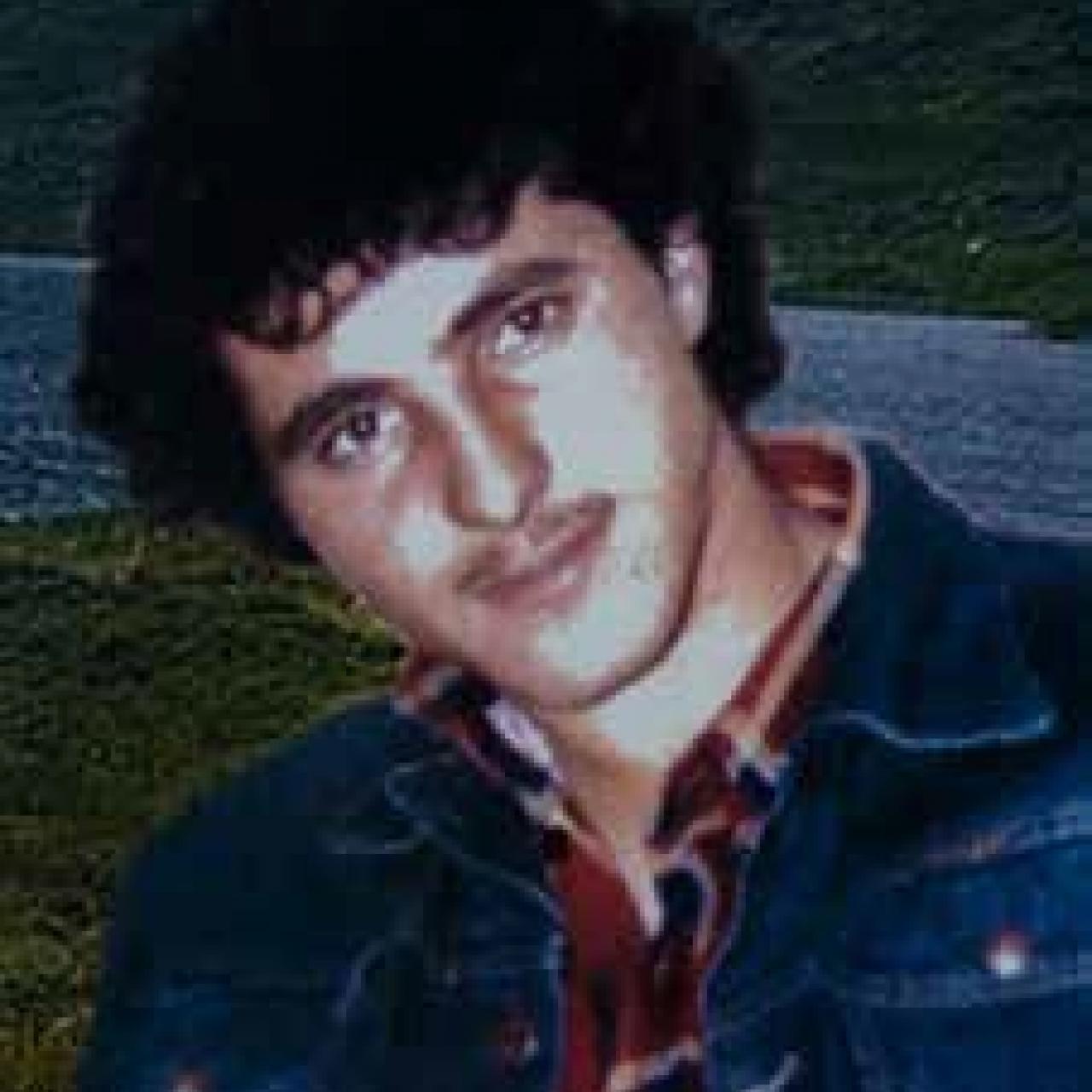
Issam Faytarouni
My name is Issam.
I loved working with my hands, and the highlight of my day would be helping my mother to take care of her garden. I was known as the person who would go out of his way to help others. This trait of mine, was what led to my disappearance.
It was 1982, during the Israeli invasion, my best friend’s son became ill and needed immediate medical care. Despite all the warnings, I still offered to give them a ride to the doctor’s office in Souk El Ghareb. I dropped him off with his wife and son, and was on my way back to Aley. On the way, I was stopped at a random checkpoint. That was the last time that anyone ever heard about me.
What I did know at the time, is that there was a shooting at a birthday party, thirty minutes earlier. This had led to the installment of the random checkpoint. It was mere chance that I would cross it. When I failed to get back home by 6 pm, my family began to worry, and started looking for me. People from our village informed them that they had seen me sitting in the back seat of my own car with four strange men, and one of them was driving my car extremely fast. I was never to be seen again. My mother kept all my clothes the way I had left them in my wardrobe, hoping that one day I will come back home.
My name is Issam Faytarouni. Do not let my story end here.
Sobhi Rmayed
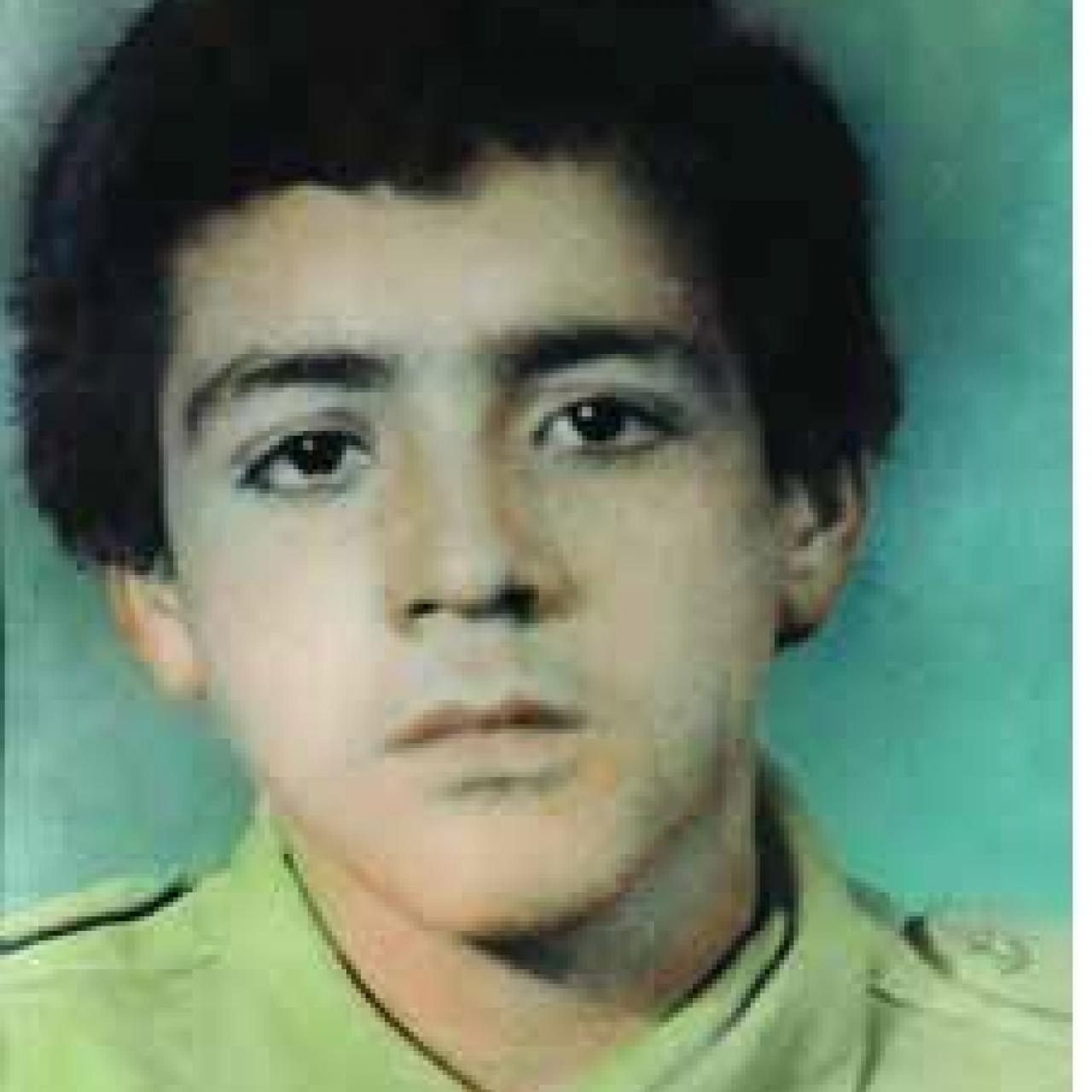
Sobhi Rmayed
My name is Sobhi. I had left Tyr, my birthplace, to go live in Beirut with my young wife Hosnieh. We were thrilled to start a new life together and were happily anticipating the birth of our baby in a few weeks’ time.
On the night of my kidnapping, I was at home with my cousin Merhi. Hosnieh was at her sister’s place in Hamra. Her due date was approaching so having her sister by her side reassured her. Meanwhile, my cousin had left Tyr in the morning and came over to spend the night. He was going to Germany the next day to meet with an ophthalmologist as his retina was damaged due to an incident that caused him to lose his sight.
I was thrilled to see him. We grew up together and despite our different personalities, we were very close to each other. Merhi was a big guy, mostly shy and reserved. I, on the other hand was small and very extroverted. I loved partying, especially in weddings where I used to dance the dabkeh. Instead of separating us, our differences were the source of our compatibility. On that night, as we were sitting on the couch chatting, a group of men suddenly barged in.
The rest of my story remains unknown, along with the details of our kidnapping.
Whereas the story of my daughter Salam, the young girl who was born a couple of days after my disappearance, was written without me.
My name is Sobhi Rmayed, my cousin is Merhi Rmayed. Do not let our story end here.
Chahine Imad
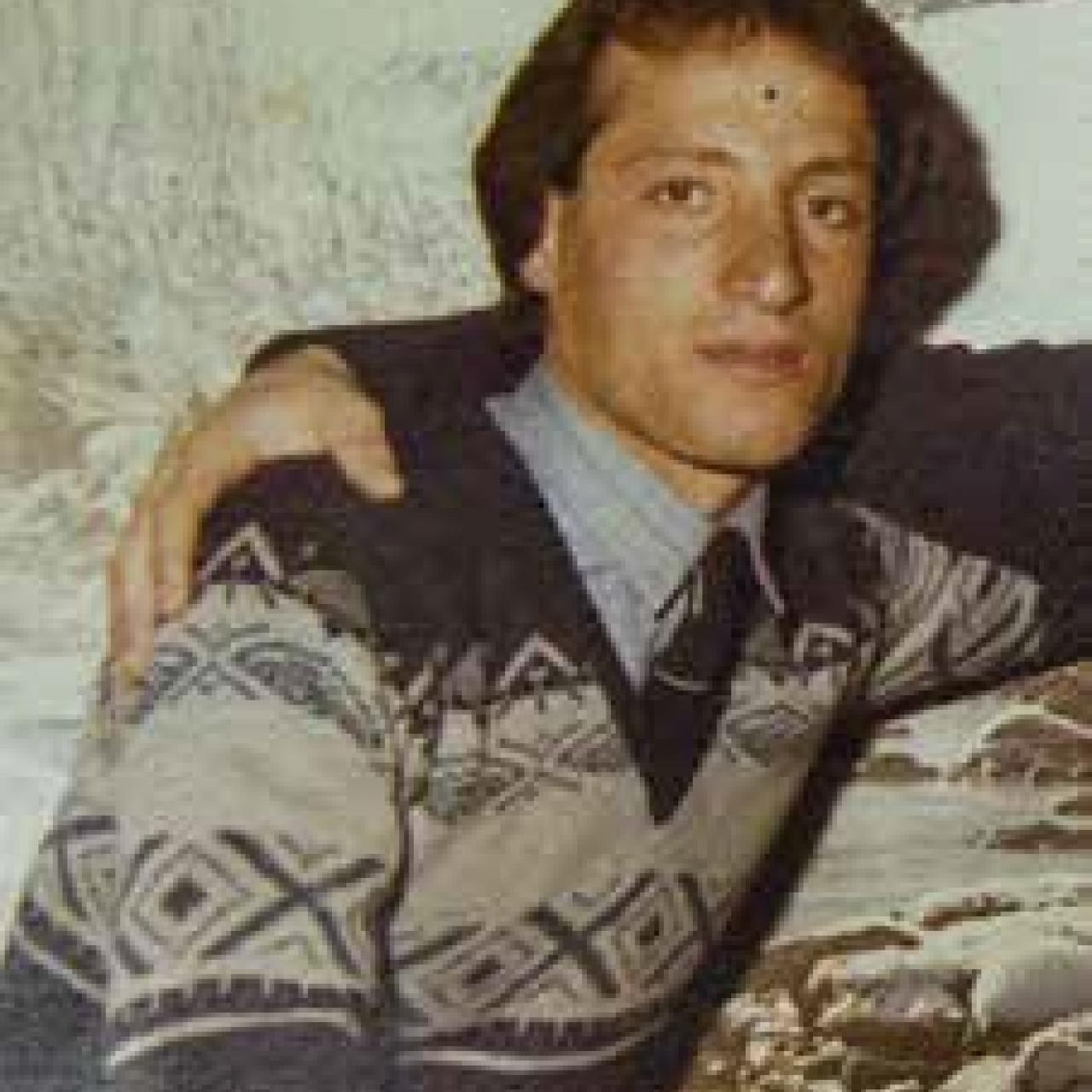
Chahine Imad
On that day, early in the morning, we left the Azounieh – a village in the Aley district – to head to Beirut.
I was accompanied by Farid and Ayman, my two childhood friends with whom I had shared some of the happiest moments of my life. In the car, we were talking about our plans for the future. Humorously picturing how each of us would look twenty years from now. I did not know what my future was meant to be, but I did not give it much care. On that day, only the present mattered. I was going to get married in a few days and it was all I could think of. I was actually on my way to invite my uncle and my cousin to the wedding ceremony.
Farid had taken the car to go pick up his mother and sisters as they wanted to spend the weekend in the village. Ayman on the other hand did not want to miss out on the opportunity of spending time with us, so he decided to keep us company. We could have never anticipated that our joyful getaway could end so tragically, as we did not go beyond the Bhamdoun checkpoint.
Ghaleb – Farid’s brother – who was the chief officer in the Burj Hammoud police station back then, did his best to try to find us. He saw his brother’s car abandoned in Beirut, near a detention center which was used by the militias that were fighting in the war. Despite all his efforts, our families never found out what happened to us.
All three of us disappeared on a morning of June 1982, only a few days before my wedding day.
I am Chahine Imad, my friends are Farid Koukach et Ayman Slim. Do not let our story end here.
Salim Ismail
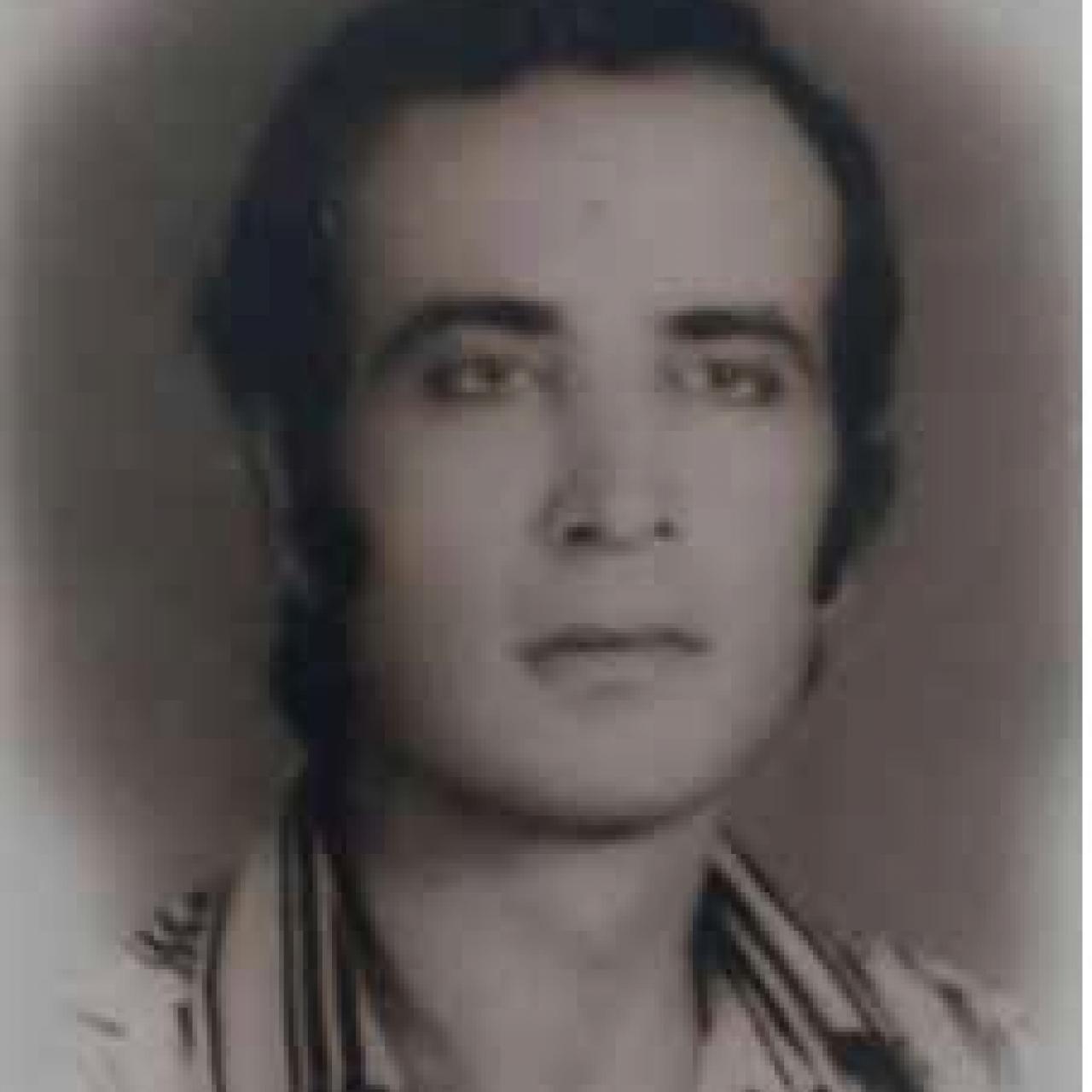
Salim Ismail
My name is Salim.
After spending three years working abroad, I came back to Lebanon to get married and start a family. I married Huda my neighbor, whom I had known since we were kids.
We had a baby girl whom we called Rana. I always prepared her bottle of milk before going to work at the construction site. During the weekends, we used to go on picnics and when we did, I dedicated my time to my hobby which was photography. You can see from the photos that Rana was my favorite model.
In 1982, we welcomed our second child, Mohammad. After his birth, we moved in with my in-laws who helped us to look after our children. Knowing that my family was safe, gave me peace of mind, especially after the assassination of Bashir Gemayel which caused immense tension in Saida.
However, on October 22nd 1983, one month after Mohammad’s birth, armed men came to the construction site where I had worked. They took me and my colleague Ahmad who was also Palestinian. We were transferred to a detention center that was situated in Rmeili, on the outskirts of Saida. There we were interrogated and then transferred to Jiyeh. That was the last information that our families knew about us.
Like many of the wives of the missing, I left Huda all alone to raise our little ones. As she struggled to find me, she was also trying to keep her sadness from them. She had to provide for them while trying to maintain the life they had.
But, at night and as the silence sets in, and our children go to sleep, the uncertainty of my whereabouts tormented her.
My name is Salim Ismail. My friend is Ahmad. Do not let our story end here.
Salwa El Cheikh Mohammad

Salwa El Cheikh Mohammad
My name is Salwa. I was a lively young girl and always willing to help. At the end of a school day, I would head home – I was the eldest of my eight siblings – to complete all my duties as the eldest sister. Afterwards, I would join the Palestinian Red Crescent volunteers to give them a helping hand.
As a 16-year-old, my life and dreams were similar to that of any other young girl at that time.
But in spring of 1976, as we were anticipating the long-awaited vacation season, my neighborhood became a ferocious battlefield.
The siege on Tel el Zaatar had just began, making my family and many other civilians hostages in their own homes. The battle went on for fifty four days, causing hundreds of victims. The ICRC was there attempting to evacuate the wounded.
But on August 12th 1976, on the day of the fall of the camp, thousands of civilians who were left behind were trying to escape. And just like me, many others did not reach their planned destination.
I am one of the many women who have disappeared during the war and whose fate is still unknown.
Zakiye, Samira, Marie-Christine, Kariman, Henriette… disappeared in Tel el Zaatar, Saida, West Beirut, Damour, Aley, Tripoli…
Whatever the reason for our disappearance and whoever committed these acts, do not let our story be forgotten. Do not let our story end here.
Raya Dawari
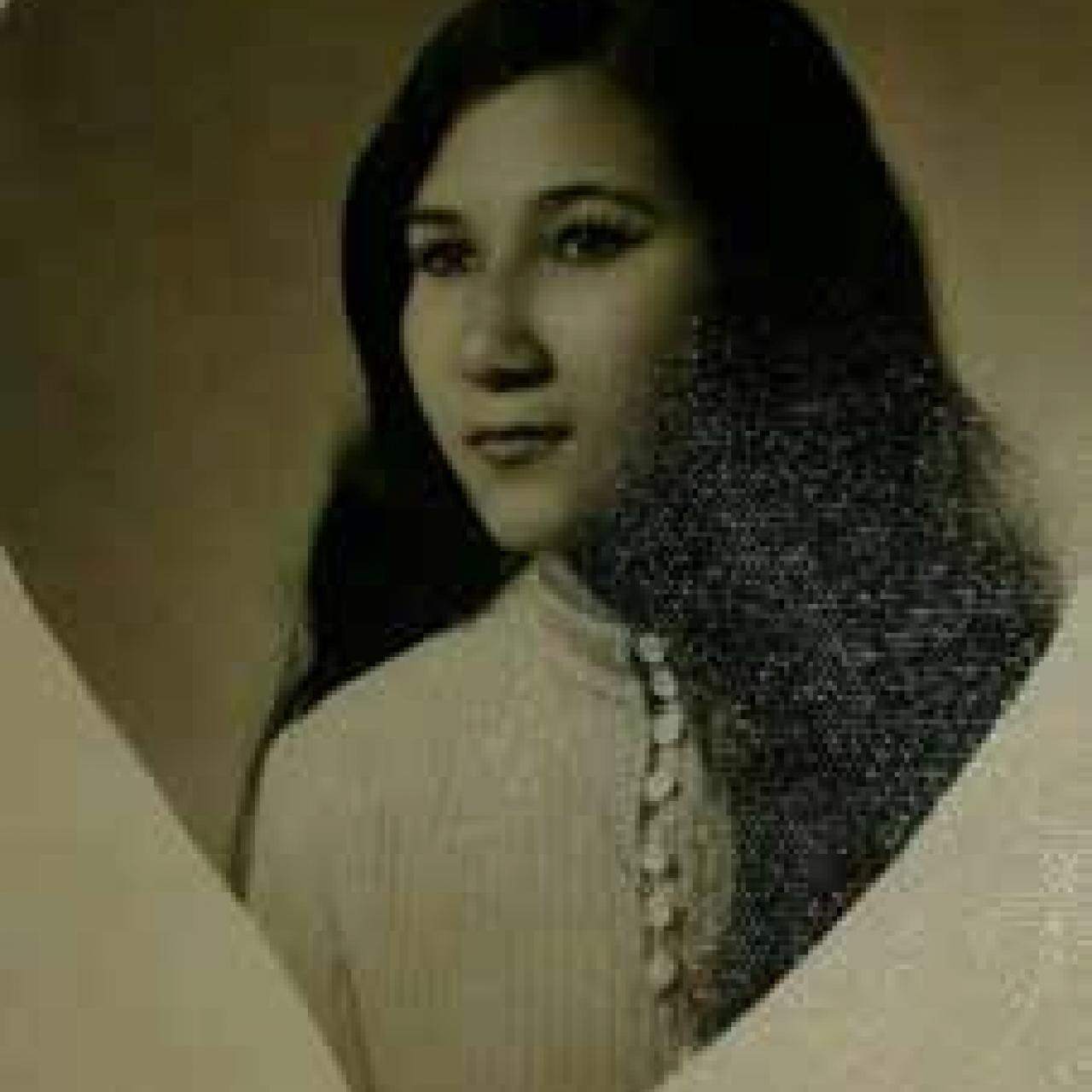
Raya Dawari
My name is Raya. I was a young 30-year-old mother. After the loss of my husband, I had to raise our two daughters Abir and Nisirne on my own. After a period of desperation, I regained my strength and landed a job. I was in charge of arranging the departures and arrivals of young people who were pursuing their education abroad. Being able to contribute to ensuring a better future to these individuals, brought me great pleasure. Between my work and my children, I rarely had time for myself. So, I was eagerly waiting for my daughters to start school, for me to regain my breath.
I was on the way to Souk el Ghareb to register Abir and Nisrine in school, when I got kidnapped. I was with four other passengers when we got stopped at a checkpoint near the Museum area in Beirut. Samia, Mona, Hanane and Younes were young students heading to Syria. They were supposed to board a plane to Moscow, where they were completing their studies. But instead, we all disappeared. Only the driver was released. In fact, he was the one to break the terrible news to our families.
At that time, Abir and Nisrine were aged 6 and 5 years old respectively. They were to go back to school without their mother. At first, their pain was unbearable, but as time went by, it eased. However, Mothers’ Day remains a particularly painful day for them both.
My name is Raya Dawari. Do not let my story end here.
Deeb Matar
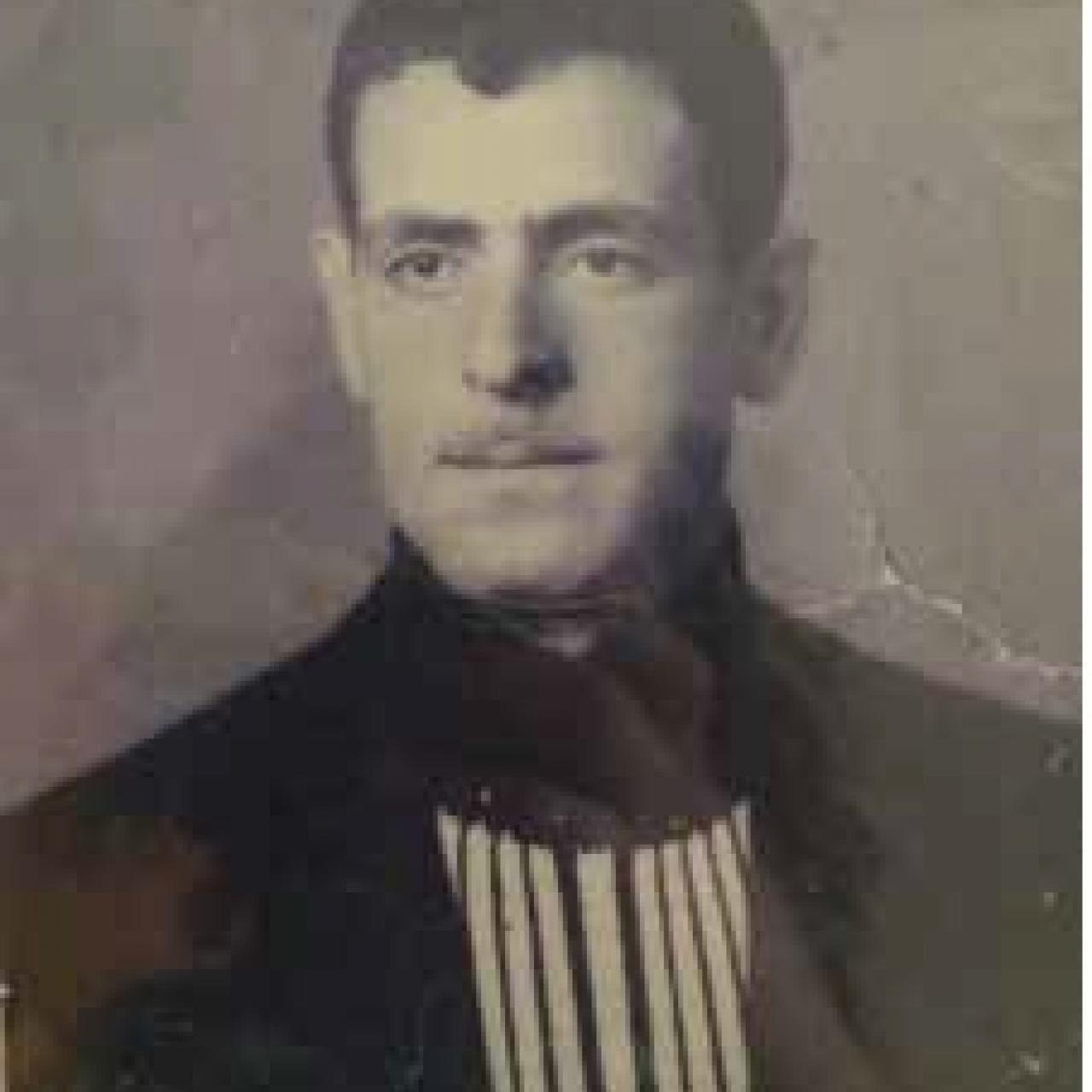
Deeb Matar
My name is Deeb.
I was living with my wife and children in the Ouzai neighborhood. I was a 41 years old man that had never participated in the war. I was doing my best to keep my two sons away from the militias.
I would long for those times back in the day, when we could go anywhere freely; back when our religious background had no influence whatsoever on our friendships. I used to wish that these battles would come to an end.
Unfortunately, I did not have the chance to see the end of the war.
On November 7th 1985, as I was leaving my workplace, one of my colleagues saw me in the passenger seat in the company of Syrian soldiers. I looked terrified. As he called on me to check that everything is fine, I explained to him that I had to drop these men up in Hermel and that I will go back home right after that. These were the last words anyone has ever heard me say.
My wife Fatima swore she would find me.
In Lebanon, in Syria, she knocked on every other door. “Come back tomorrow!” this brief answer, was all she was given. Yet that was enough to raise her hopes up for a few hours, hopes that someone might actually help her. But she would return the following day to discover that these people were simply trying to get rid of her and avoid answering her overwhelming questions.
But she wouldn’t give in, she would keep fighting against the world, screaming that her husband could not have simply vanished, screaming for help.
The only comfort she found was in the company of wives and mothers of the others that disappeared. These people, who were separated from their loved ones by the war, people from various communities and regions, have now come together to share their sorrow and demand the release of their loved ones.
The war has ended, but their battle goes on.
My name is Deeb Matar. My wife Fatima and thousands of other women in Lebanon are still waiting. Do not let our story end here.
Dani Mansourati
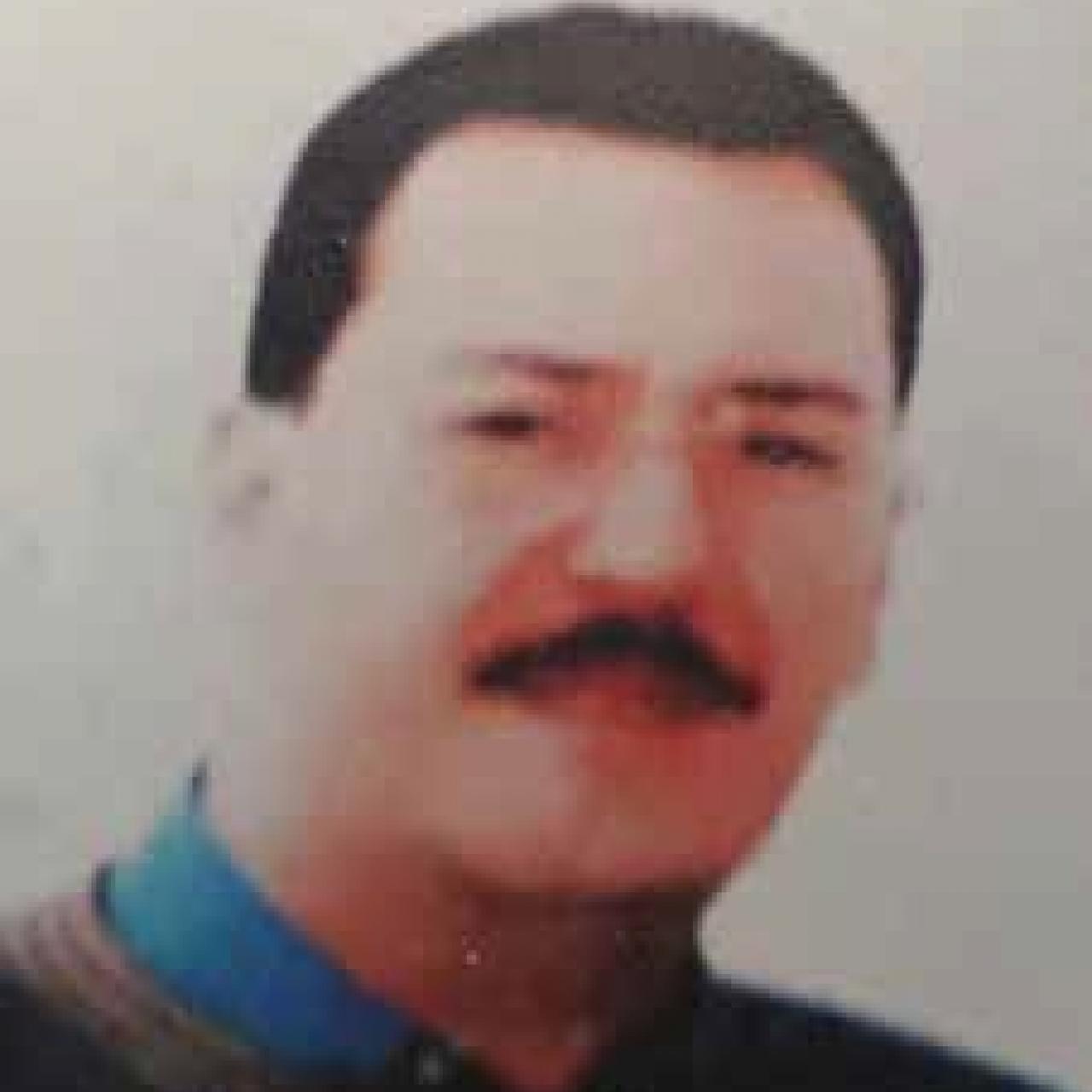
Dani Mansourati
Year 1990, is a date that represents the end of the Lebanese civil war. The end of the bombings and the return of harmony. After 15 long years of conflict, the warlords and the foreign authorities decided to put an end to this war, to “turn the page” and overlook the atrocities committed.
1993, is the start of the process of “rebuilding”, life seemed to be regaining its balance. Yet, despite the efforts put forth to silence the victims’ sufferings, the desperate cries of the families of the disappeared still resonate.
During that same year, I was in Damascus, with my brother Pierre, on the way to visit some family relatives. All of a sudden, we got stopped by members of the regime who forced my brother out of the car and boarded my vehicle. Within seconds, I was kidnapped in the heart of Damascus, in broad daylight. I was then taken 30km north of the city to the Sednaya prison, which was sadly reputed for its maltreatment. I never got out.
On April 11th 2005, the families of the missing started a sit in, to draw attention to the tragedy of the detainees in Syria. In the context of that era, it was a courageous act that symbolized a flicker of hope. My mother joined the dozens of women who had gathered to demand their loved ones’ freedom. But contrary to what they had expected, the withdrawal of the Syrian army did not terminate their agony. The tent, which was erected as a call for help, has unfortunately become part of down town’s landscape and now fails to attract any attention.
2017, the tent is still there, but it is without the ones who had given it life. These women who had held sit ins for the last twelve years, have now grown old and are deprived from the ones who had offered them constant support. They have lost the strength to go on.
Abandoned to face their fate, they still hold on to their hope of being heard.
My mother spends most of her time at home. She looks after my room and makes sure it stays as I left it. She doesn’t stop telling herself that the worst pain one can inflict on a mother, is the knowledge that her son is suffering and she is unable to help.
My name is Dani Mansourati. Do not let my story end here.
Khalil Menshawi

Khalil Menshawi
My name is Khalil. Before the beginning of the war, I was living in Dekweneh with my wife and our five children. I was working at a gas station near our home. I worked as an accountant and administrator. I loved my job.
Unfortunately, tension in the region kept growing. I knew that we could not stay in this country for any longer, so I was preparing myself to move to Germany with my family.
Yet the situation swiftly deteriorated. On August 12th 1976, fighters took refuge in the mountains while civilians were evacuated towards West Beirut. Everything was in disarray. We were with thousands of people attempting to get on the buses, to get away from the danger. Unfortunately, there were not enough vehicles to move everyone so we had to squeeze in tightly inside. My wife Tamam was carrying our 6 months old Silvana in her arms. Our other four children, aged between 3 and 7 were hanging onto me, trying to stay still in the middle of this bustle. But people kept climbing onto the bus. We were barely able to breath. On that day, many children died due to suffocation. Among them were my son Wissam, aged 3 years old, and my daughter Sawsan, who was 5 at the time.
Our nightmare was supposed to come to an end at the museum area. There was one last checkpoint before arriving to West Beirut. Once there, armed men ordered us to step out of the truck, putting men on one side and women and children on the other.
My name is Khalil Menshawi. Do not let my story end here.
Khalil Abou Zeki
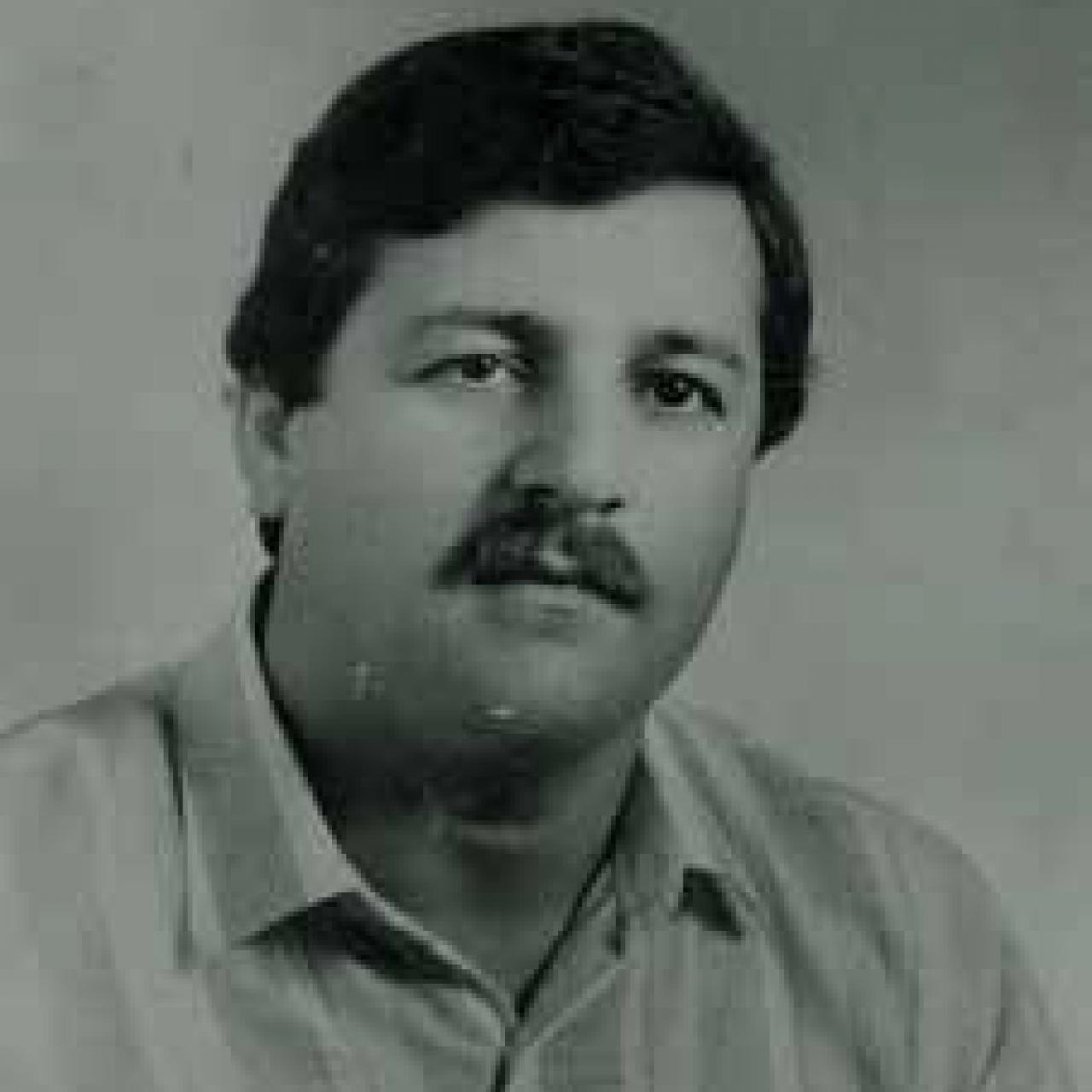
Khalil Abou Zeki
Everything was set. Our passports alongside our plane tickets were carefully arranged. In two days, the five of us will be in Germany, on the verge of starting a new chapter in our lives. The children were overly excited...
Before leaving, I had to go on a round trip to Syria to collect some spare parts for trucks which the company I worked for had requested. I had planned to visit the Latakia port on Saturday and to be back home by Sunday.
Yet Monday morning, when it was time for us to head to the airport, I still had not come back. My relatives soon became worried. It was evident that the only reason I would miss my flight to Germany is if something wrong had happened to me. The passport control records at the border had shown that I had evidently entered the Syrian territory. This was the only trace that was left of me.
As a result of my disappearance, our life fell apart on June 13th 1987.
After I disappeared, my wife Dalal could not endure the situation. Overwhelmed with sorrow, she lost the strength to go on and felt unable to raise our three children alone. Seven months after that tragic day, she left, leaving Abir who was 9 years old, Manal who was 8 years old and Bahaa who was 5 years old to the care of their grandparents.
With time, my children became accustomed to living in my absence, and went on to build their own lives. But up until this day, my eldest daughter Abir lives with a great sense of guilt. She condemns herself for her comfortable lifestyle, for laughing and even for living, while her father can still be alive and held behind bars. With eyes full of tears, she pictures herself finding me and telling me: “I am sorry I let you down”.
My name is Khalil Abou Zeki. Do not let my story end here.
Hussein Fneish
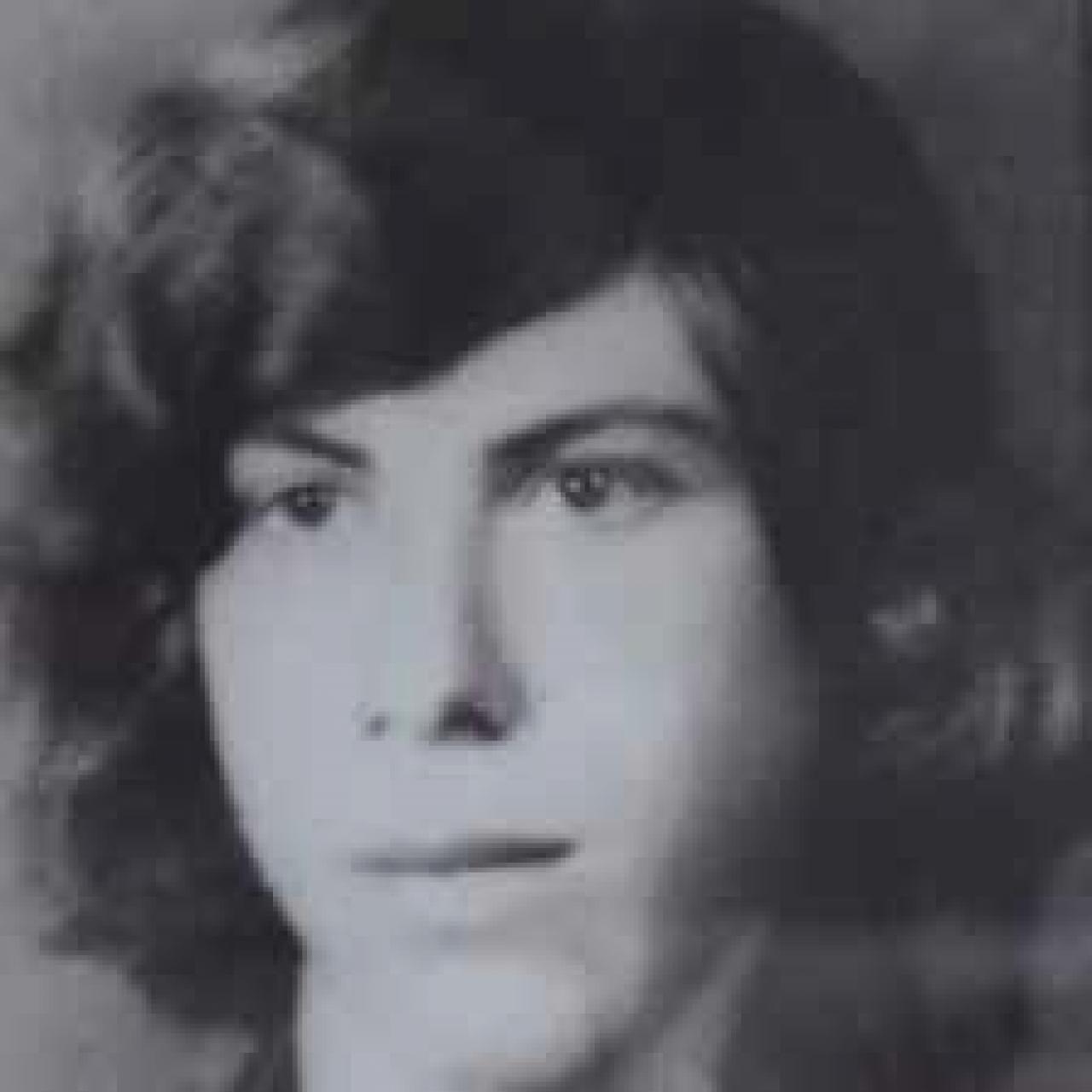
Hussein Fneish
My name is Hussein. I was seventeen years old and was studying at the Khodr Secondary School (in Beirut). I was an ambitious and studious boy with the dream of one day becoming a dentist. I used to promise my sister Fatima that she will be my first patient.
But the war put an end to all my dreams.
One day in 1976, a fire broke out in our neighborhood. We had to evacuate our house leaving behind everything we had owned. I got in the car with my mother Zahieh and headed towards Achrafieh. Only minutes after our departure, we were stopped at a checkpoint. Armed men forced us to step out of the car and separated us. Fortunately, my mother was released, but I was not as lucky.
It has been 40 years since my family have last heard of me.
About ten years ago, my sister Fatima was in a taxi when she thought she spotted me walking down the street. Her heart raced with excitement, and with the hope that she might see me again, she instructed the driver to go back before she loses sight of me. But sadly, it was a man who looked like me and had the same hair color and style as I did.
After so many years, my sister believes that I am most probably dead. But the lack of information regarding my fate keeps them with uncertainty. This uncertainty makes it difficult for their wounds to heal. Whatever the truth is, she is ready to accept it as she needs to know.
My name is Hussein... My story does not end here.
Hassan Ghandour
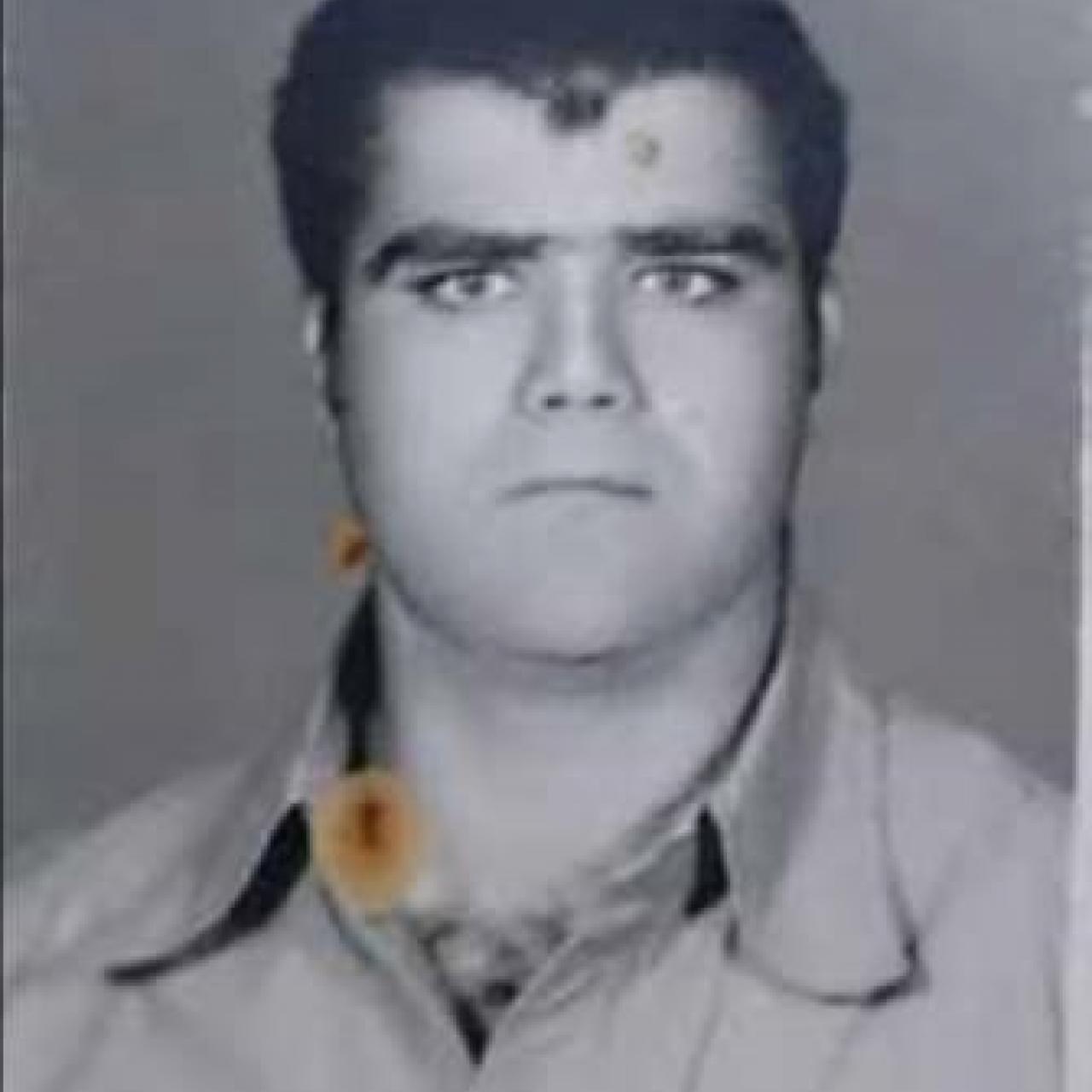
Hassan Ghandour
Beirut, Saturday December 6th 1975.
Within the span of two hours of that dreadful day, hundreds of people were arrested, savagely murdered or even kidnapped.
My name is Hassan Ghandour, and I am one of the victims of the Black Saturday.
On that day, I was staying at a hotel in downtown Beirut, nearby the Debbas square. My work as an editor for the Safir newspaper, would sometimes have me stay there. When work required me to be in Beirut, I would rent out a hotel room for one or two nights, since my house was in Jwaya in the South.
On that day, I heard gun shots. It did not sound like an exchange of fire, it rather seemed to be coming from one direction. The noise of the shootings got louder and louder. A state of panic suddenly hit everyone around me. People started running, terror was engraved on every face.
Within seconds, news of the massacre started spreading. I headed back to my hotel. As I was going up the stairs to get to my room, I heard armed men ask the receptionists for the list of guests. When they read out my name, my heart stopped. It was only seconds before I found myself blindfolded, sitting in a car, heading towards the unknown. An unknown that I could only but dread.
What happened next? No one knows. Was I killed and buried within a few hundred meters? Or was I taken in for questioning and transferred to a detention center, somewhere far away from where I was kidnapped?
Forty years later, my family is still waiting for an answer.
My name is Hassan Ghandour. My story does not end here.
Joseph Keyrouz
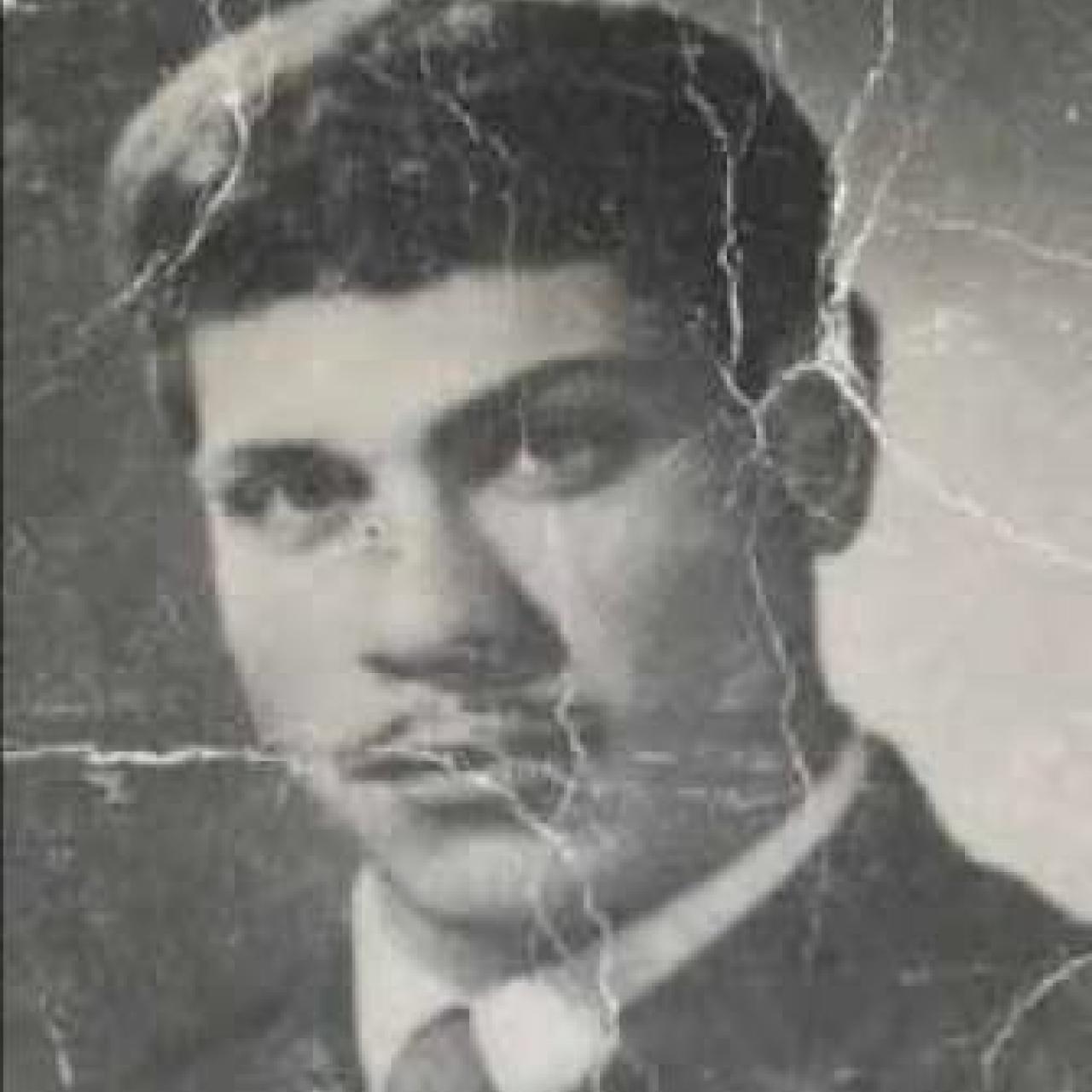
Joseph Keyrouz
My name is Joseph.
For fifteen years, I was a Sergeant major in the Lebanese Army and was proudly serving my country at the Military School in Fayadieh. Unfortunately, after the division of the army on January 21st 1976, I decided that for ethical and security reasons I should leave the army. I decided to stay at home for the sake of my family and my only son Elie, whom after fourteen years of struggle, we finally welcomed him to our world. He was everything to me. Sadly, only 1 year after his birth, we got separated.
On April 1976, and due to a shortage of fuel in my area of residence, Sin El Fil, I left the house looking for fuel. I reached Khodor gas station in Barbir. I filled up my car and went back home. Unfortunately, a few days later, on April 25th I was not as lucky as I was the previous time. I was kidnapped in this area, which later became known as the demarcation line between East and West Beirut.
Today this line is no more than a big intersection, always busy, where the public drive through without acknowledging the significance of its past.
My name is Joseph Keyrouz. Do not let my story end here.
George Chamoun
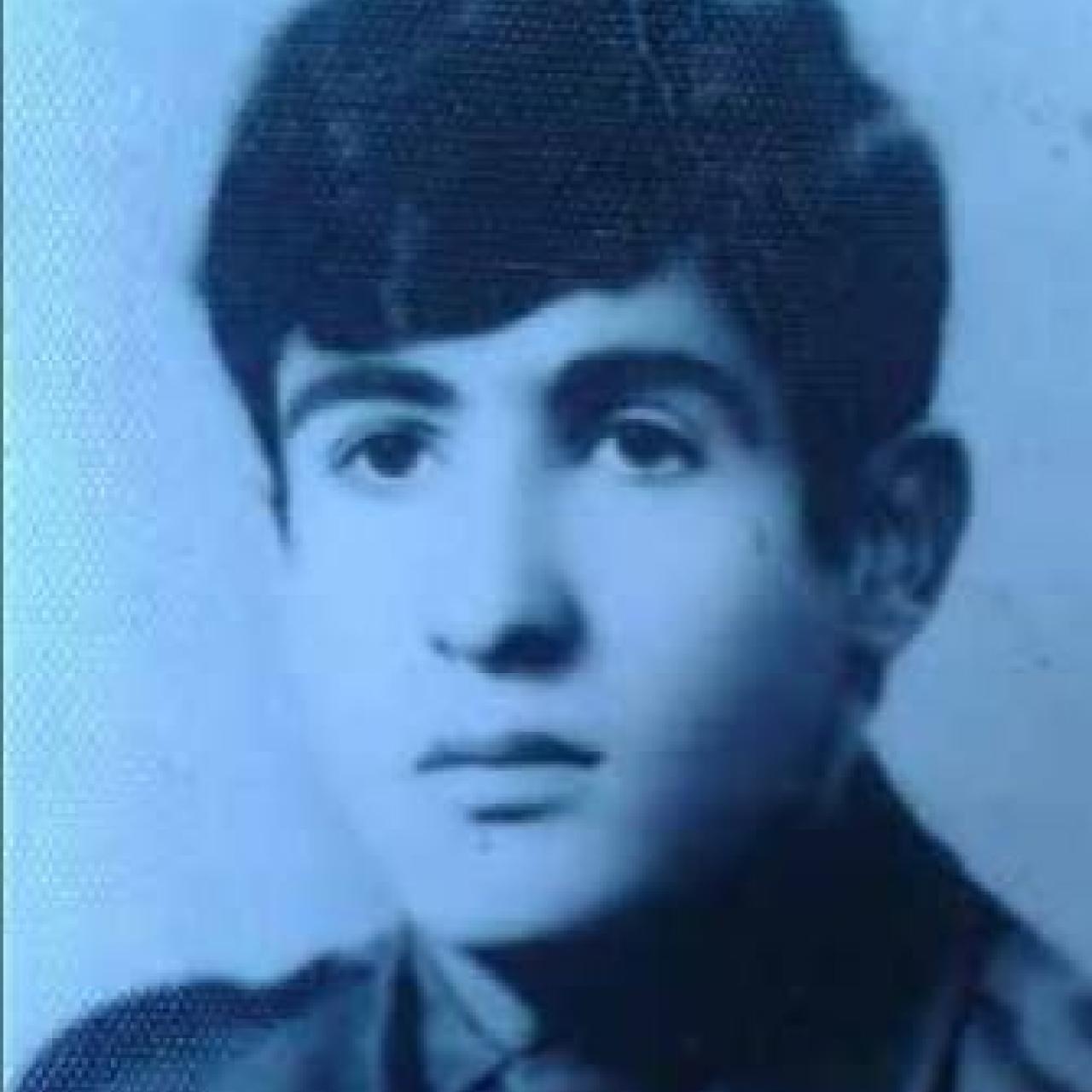
George Chamoun
My name is George. I was a young soldier in the army from the Sareen village, in Bekaa. I used to look forward to my leave days, those days when I would go back home and spend time with my brother and hunting partner Joseph. It was on one of those leave days, during the month of October 1975, when I got kidnapped. I was on my way back to my village, with two of my colleagues from the army, when we were stopped at a checkpoint in Chtoura.
My family knew nothing about my fate for years to come. But in 1979, three Lebanese men who had just been released, informed my family that we had been detained together in the Mazze prison in Syria. After a little while, another person came and confirmed my confinement in this prison. This person presented them with a detailed description of me that my family could not but believe him. After that، my mother rushed to that prison only to find out that I had been transferred to the hospital. At the hospital, the nurses recognized me from a photo my mother had shown them. They confirmed that I was taken to that hospital but also explained that I was no longer there.
This is the story that my mother would repeat dozens of times, always with the same intensity of emotions. She had hoped that these few journalists and NGOs who had shown genuine interest in my story، would somehow manage to make my story heard. She had also hoped that I would not remain one of the 600 cases that disappeared in Syria.
Today, she is no longer with us. it is my brother Joseph who continues to spread my story, to hold onto my memory and to keep the hope that one day my fate will be unveiled.
My name is George Chamoun. My story does not end here.
Gergi Hanna
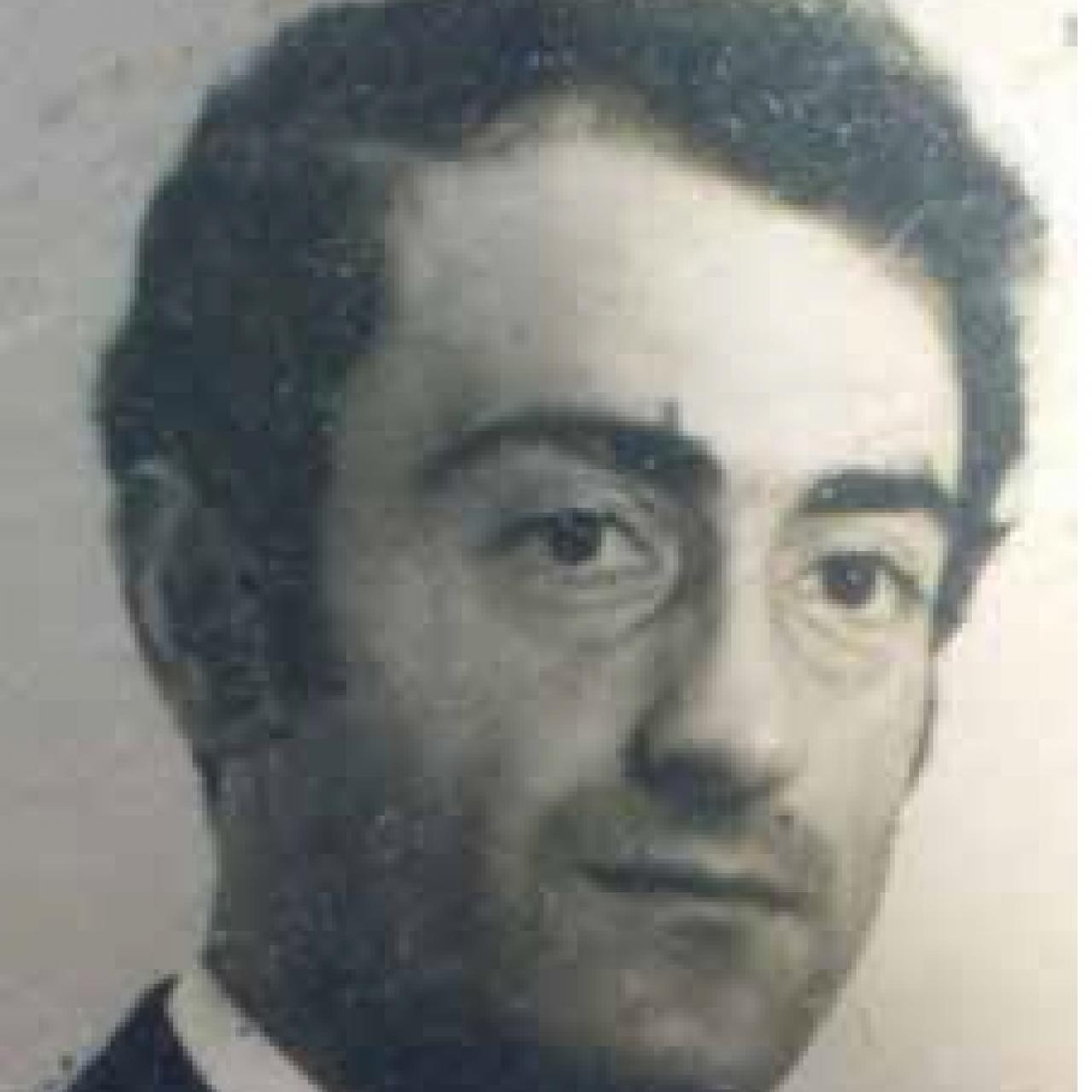
Gergi Hanna
In September 1985, following the request of the research committee founded in the Lebanese University, all classes were suspended for an hour in many of the university’s campuses. This symbolic action, in addition to the gatherings that took place on that same day, were all organized to demand the release of the professors who had been kidnapped: Maha Hourani, Raji Khoury and Gergi Hanna.
My name is Gergi. I was one of them. I was an electrical engineering professor.
Thanks to a scholarship I was awarded, I was able to go study in Germany, where I got my doctorate degree and met my wife Barbara. After spending twelve years there, we decided that it was time for us to return to Lebanon with our daughter Doris.
We were living in Jdayel, nearby Byblos, and we would drive into Beirut every day to go to work. Barbara would give classes at the Amlieh institute and I at the Faculty of Science in Hadath. But when commuting became an even greater danger hazard, we rented a house in Sakiyet El Janzeer. During the siege on Beirut by the Israelis however, my wife and two daughters went to find shelter in our house near Byblos, while waiting on the situation in Beirut to cool down, before moving to Germany for my daughters to return to school.
On September 10th 1985, two days before their return to Lebanon, I got kidnapped as I was going back home from the Faculty of Science’s campus, that had been relocated temporarily neighboring the Unesco. My car got stopped at Tallet El Khayat by armed men, positioned at a checkpoint facing the Tele Liban.
My relatives had no information about my fate until ten years later, when a prisoner who had been released from a Syrian prison reached out for them to inform them that we had been imprisoned together. He told them that I had been detained in Lebanon for two years before being transferred to Syria’s Mazze prison.
After hearing this terrible news, my relatives rushed to that prison. They managed to see my name on the registration sheets but were not allowed to see me. The only explanation they got for my arrest was that I was accused of being a spy and for that, I was convicted to life in prison.
Despite my family, my friends, my colleagues and my students’ mobilization, I was never freed.
My name is Gergi Hanna. Do not let my story end here.
Estephan Iskandar
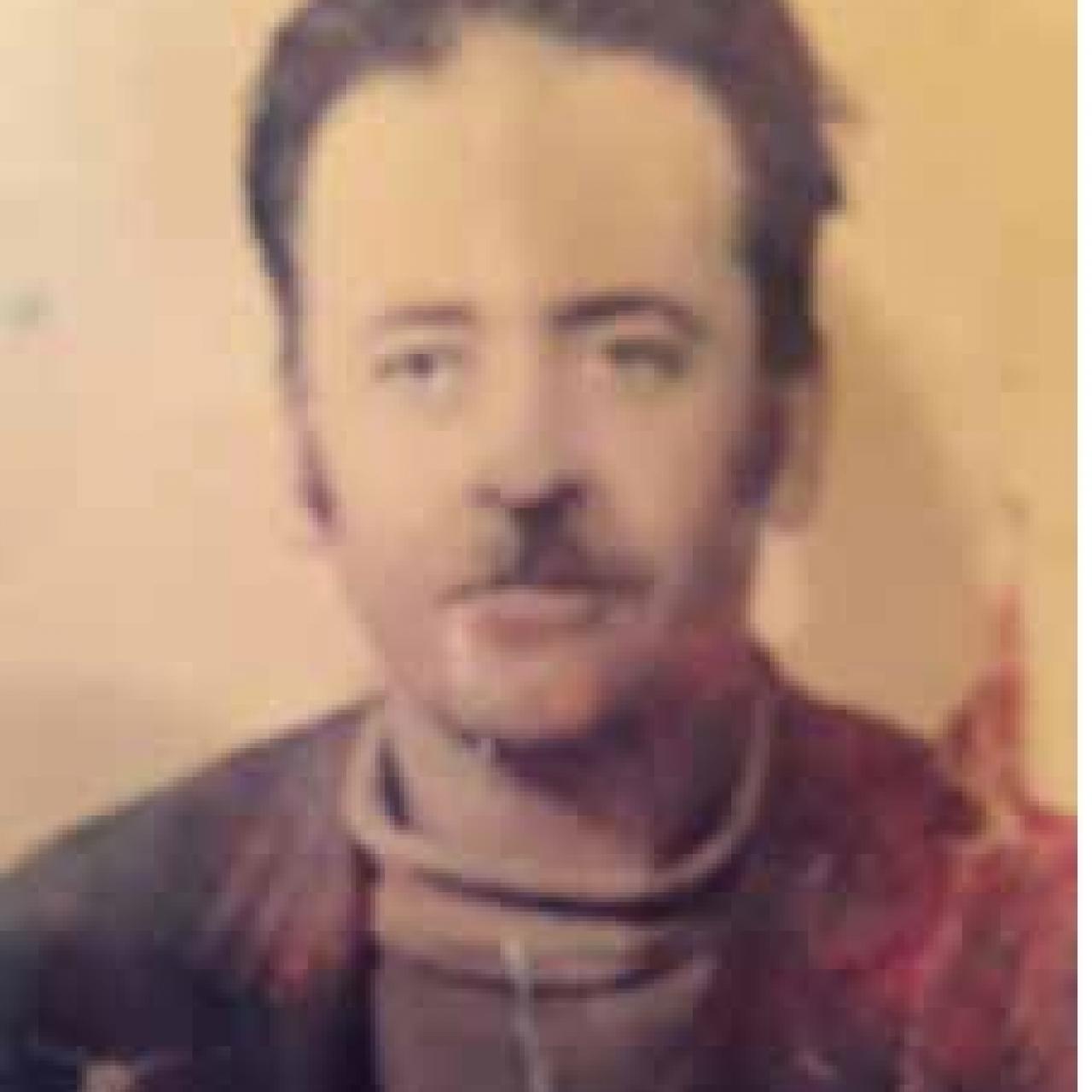
Estephan Iskandar
My name is Estephan. Before the start of the war, I used to work at a tiling company in the Batroun region. I was the father of 11 children, seven boys and four girls, aged between a year and a half to 21 years old. I was very proud of my boys, but everyone knew that I mostly pampered my girls. They were my princesses. They could ask of me whatever they want and I was always ready to give them joy.
We were living in Bjdarfel, somewhere near Batroun. It was a peaceful and pleasant place. But early on in 1975, armed men ventured into our village and set up a camp there. Following these men’s arrival, many of the villagers, especially the youth, decided to move. To keep my children away from harms’ way, I asked my wife Bahia to give our kids shelter in Jbeil. I, however stayed in the village because of work. After a while, and once the situation in the region steadied, they all came back home.
But in August 1975, only three months after the beginning of the war, those armed men who had remained present in our village, knocked on my door. They forced me out of the house, under the watchful eyes of my children.
I never laid foot inside that house ever since. My wife and family had to face the war and fifteen years of hardship all alone”. I was not there to provide them with a decent life, neither was I there to reassure my children when they were scared of the sounds of the bombings, or there to give strength to my wife in the moments of uncertainty.
Bahia will never know my fate. She passed away a couple of years ago. My children are still hoping that one day, they will know what had happened on that ominous day of August 1975.
My name is Estephan Iskandar. Do not let my story end here.
Itidal Nemer Awad & her husband & son
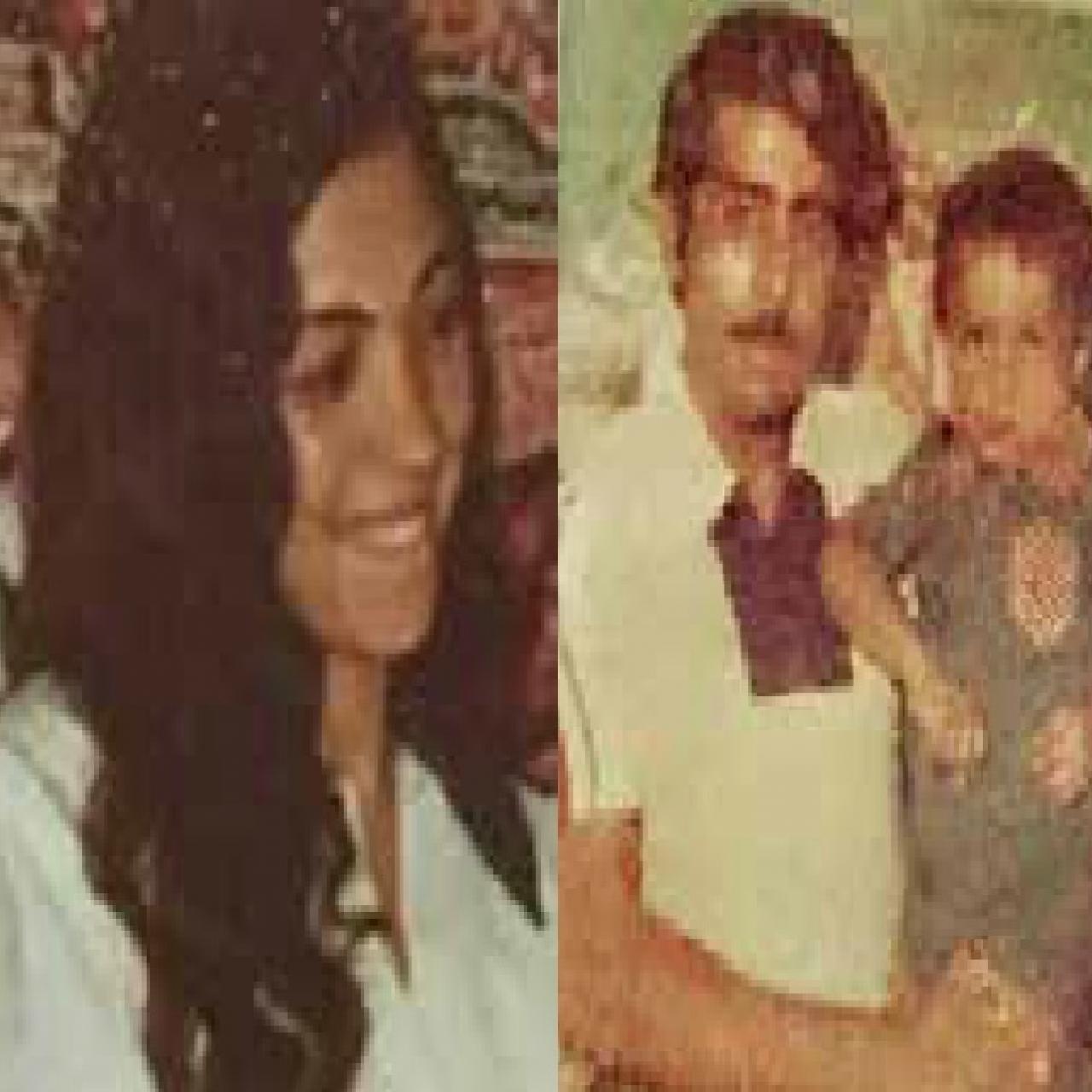
Itidal Nemer Awad & her husband & son
My name is I'tidal. I am the mother of 2 girls and 4 boys. Raising 6 children in a country at war was not an easy task but I was a very determined person. My husband and I were doing our best to provide a good life and offer our children a happy childhood. My Husband Walid owned a furniture shop. As for myself, I was taking care of our children and whenever I had spare time I loved to embroider. I used to donate the earnings of my work to the Ina'ash Welfare Center to help those in need.
In 1982, in an instant, our family was torn apart. On their way from Wadi al Zayni to Saida, to visit my mother in law, my husband Walid, and my youngest son Mahmoud, were kidnapped. Mahmoud was only 9. He was a little boy who loved to play football.
They never came back home on that dreadful day.
I have spent every single day searching for them ever since. I could not sleep. I would be imagining all possible scenarios; I could even hear Mahmoud calling for me to help him. One month after their disappearance, while I was desperately trying to reach various militia groups to get answers. I was also kidnapped.
Nobody ever knew what happened to the three of us. My five children, Dalal, Fatima, Khaled, Maher and Wissam were left alone. They had to grow up without a mother or a father. I wish I could have protected them from the war and avoided all this suffering.
My name is I'itidal Awad, my husband Walid, my son Mahmoud. Do not let our stories end here.
Iskandar Zakhria
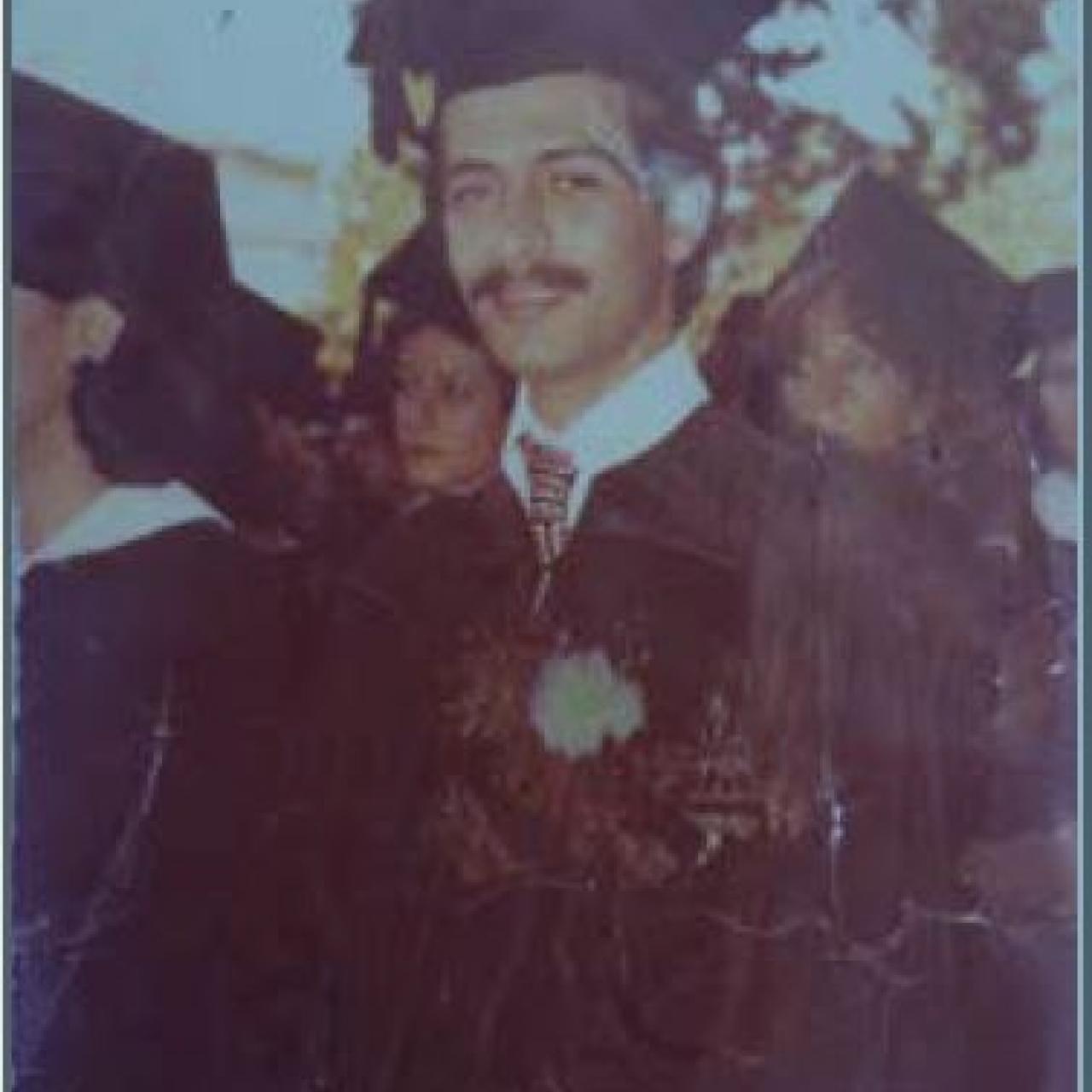
Iskandar Zakhria
My name is Iskandar. My family used to call me "Alico". I was 28 years old when I went missing on May 5th 1985. I was an ambitious student pursuing my master's degree in marketing in AUB while working at HSBC Bank. My lifelong dream was to have my own business. In fact, prior to my disappearance. I had just bought a place where i could start one but never had the opportunity to do so.
I was very busy between school, work and my responsibilities at home. Ever since my dad died about 10 years ago I have been the breadwinner of my family. On the weekends. I liked to go out dancing with friends. My little sister Lina would constantly beg to go with me. Occasionally, I would bring her with us, if only to make her smile.
I used to live in Msaytbeh, in an area where a lot of militiamen were positioned. One day, when I was at home with my mother and sister, two armed men came and asked to speak with me. They told me that they would take my whole family if I did not cooperate and go with them. Fearing for the lives of my mom and sister, I went with the men. I have not been seen or heard from ever since.
I asked myself, why me? I was not involved in politics and I was not part of any militia. Perhaps it was because of my job at the bank? In her desperate search to find me, my mother would discover that several other people working in the Banking sector had also been kidnapped.
My name is Iskandar Zakhria. Do not let my story end here.
Edward Sfeir
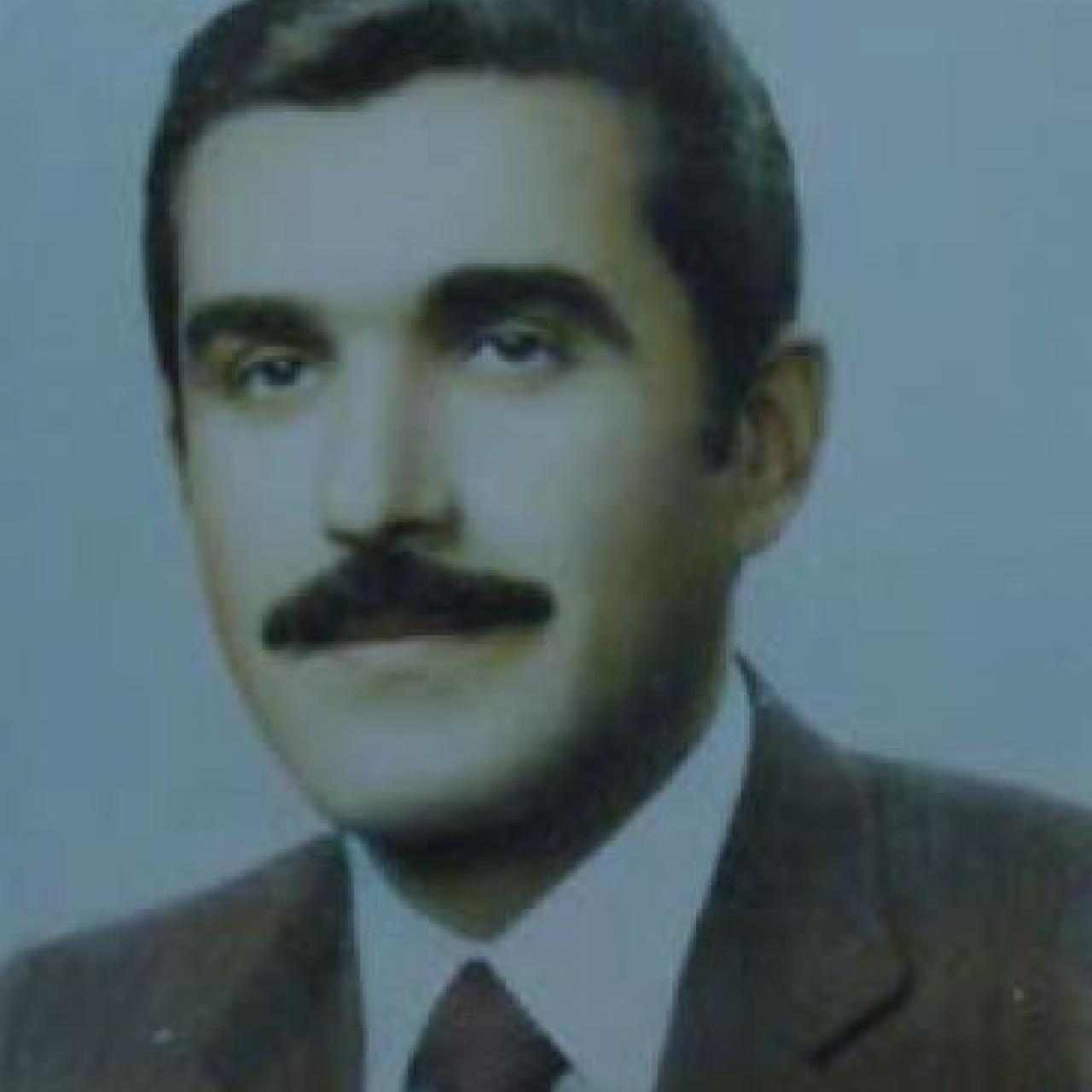
Edward Sfeir
My name is Edward. I was a working man, living in my hometown with my brother Mansour and his family. Despite it being a time of war, life was still relatively simple. I always considered my life and luck to be a blessing from God, to whom I was grateful.
I was the head of the Mar Roukos church in Rayfoun. Aside from my charity interests, I was very dedicated to my job, wanting to invest more in land and expand my real estate business. I was also a fan of hunting. I used to long for those hunting trips on the weekends.
However, in 1985, the security situation in Rayfoun worsened. Moving around the region became very difficult, so my friends and I decided to change our hunting destination from the neighboring mountains and valleys to Syria. The first couple of times we went hunting near Syria’s Aleppo were very enjoyable. Our third trip there was not the same as before, I was kidnapped along with my two friends. Two of the hunters that were accompanying us had to break the news of my disappearance to my family. We were never to return home again. The only news our families had ever received was that the three of us had been taken from Aleppo to al Rekka.
In the blink of an eye my brother’s life fell apart. Immediately after receiving the tragic news, he began searching for me and dedicated most of his time to doing so. He even went as far as moving to Damascus in Syria for 9 months, leaving his work, his employees and his family behind. But his efforts were fruitless. He was banned from ever returning to Syria which forced him to abandon his search.
My name is Edward Sfeir. My two friends who were kidnapped with me are Fouad Haddad and George Kazzi. Do not let our story end here.
Ibrahim El Kabesh
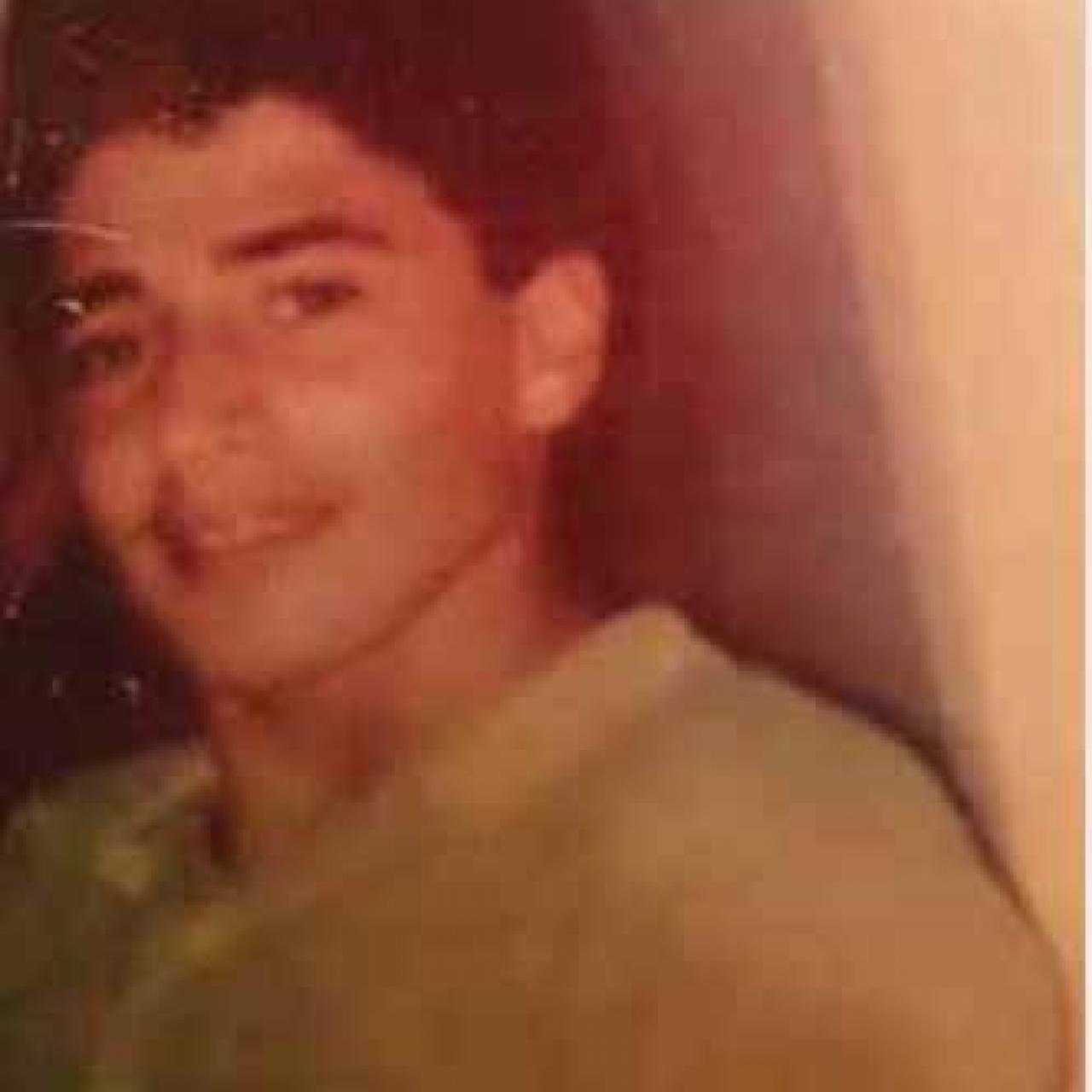
Ibrahim El Kabesh
My name is Ibrahim El Kabesh. This name appears in the registry of all police stations in Saida.
“Ibrahim El Kabesh, disappeared on 4th October 1984”.
After having made all attempts to find me, my father thought that by requesting from all the police stations to investigate my fate, this would increase the chances of finding me.
Only sixteen years after registering my birth, he came to the authorities again to register my disappearance, this time with an aching heart. He told them all he knew about me: that I used to help him with his work as a chef in the cafeteria at Hammoud Hospital in Saida, and that I wanted to study hotel management because of the influence he had had on me.
On the day of my disappearance, I came to the hospital to drop off my motorcycle that I had recently bought. I then went to join my friends at the Cornish and since then, there has been no news about me.
My father had told this story many times to the police officers who, knowing in advance that they will not be able to help, did not pay him much attention.
Days and months have passed and the only information my family received, was that an explosion occurred on the same day of my disappearance. This information, without any other detail, was supposed to be an explanation for my disappearance.
In everyone’s eyes, my family was no longer supposed to ask any further questions. To them I was probably dead and my family was supposed to mourn me. Yet after thirty two years, the uncertainty of my fate still causes immense pain for my family.
My name is Ibrahim El Kabesh. My story does not end here.
Why are we still looking for the disappeared?
Iteractive digital space designed to bring to the public some of the individual stories of the thousands of persons who went missing in Lebanon over the past four decades, and whose families continue to struggle to learn their fate.
